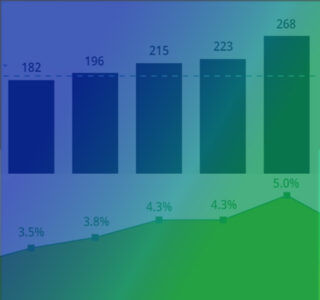105+ Hospitality Research Topics [Updated 2024]

- Post author By admin
- May 8, 2024
- No Comments on 105+ Hospitality Research Topics [Updated 2024]
In a bustling world where travel and leisure are increasingly essential aspects of our lives, the hospitality industry plays a pivotal role. From cozy bed-and-breakfasts to luxurious resorts, from trendy urban eateries to quaint countryside cafes, hospitality businesses cater to our need for comfort, relaxation, and enjoyment. But have you ever wondered what goes on behind the scenes? What makes some hospitality ventures thrive while others struggle? Join us on a journey through the fascinating world of hospitality research topics, where we unravel the mysteries and unveil the secrets of this vibrant industry.
Table of Contents

What Do You Mean By Hospitality?
Hospitality means being friendly and kind to guests or people you don’t know. It’s about making them feel welcome and comfortable, so they enjoy their time with you. Examples of hospitality include:
- Hotel Accommodation: Providing comfortable rooms, amenities, and personalized services to guests staying at a hotel.
- Restaurant Service: Welcoming diners, providing attentive service, and ensuring a pleasant dining experience, including food quality and ambiance.
- Tourist Attractions: Offering informative guided tours, assistance, and facilities to visitors exploring tourist destinations.
- Event Hosting: Organizing and hosting events such as weddings, conferences, or parties, ensuring guests’ needs are met and they feel welcome.
- Homestays: Welcoming guests into one’s home and providing accommodation, meals, and hospitality similar to that of a hotel.
- Travel Services: Assisting travelers with transportation, accommodations, and activities, ensuring a smooth and enjoyable journey.
105+ Hospitality Research Topics: Category Wise
Consumer behavior in hospitality.
- The impact of online reviews on hotel bookings.
- Trends in consumer preferences for dining experiences.
- The influence of social media on travel decision-making.
- Understanding the motivations of eco-conscious travelers.
- Consumer perceptions of luxury vs. budget accommodations.
- The role of loyalty programs in shaping guest behavior.
- The influence of online food delivery platforms on restaurant choices.
- Preferences for experiential accommodations (e.g., treehouses, glamping).
- Understanding cultural differences in dining behavior among international tourists.
- The impact of COVID-19 on travel decision-making and consumer behavior.
- Accessibility considerations in hospitality for guests with disabilities.
- Emerging trends in solo travel and their implications for hospitality businesses.
Sustainable Practices in Hospitality
- Implementing green initiatives in hotel operations.
- Assessing the effectiveness of waste reduction programs in restaurants.
- Renewable energy adoption in the hospitality industry.
- Sustainable sourcing practices in food and beverage operations.
- Eco-friendly design trends in hotel construction.
- The economic benefits of sustainability initiatives for hospitality businesses.
- Reducing single-use plastics in hotel amenities and packaging.
- Carbon footprint reduction strategies for hospitality transportation services.
- Water conservation initiatives in hotel operations and landscaping.
- Assessing the social impact of sustainable tourism projects on local communities.
- Green certification programs and their influence on consumer choices.
- Innovative approaches to upcycling and repurposing waste in hospitality operations.
Technology and Innovation in Hospitality
- The impact of AI on guest service and personalization.
- Integrating IoT devices for improved hotel management.
- Blockchain applications in hotel booking and payment systems.
- Virtual reality experiences in destination marketing.
- Mobile app trends in hospitality and their impact on guest satisfaction.
- Data analytics for enhancing hotel revenue management.
- Augmented reality applications for enhancing guest experiences in museums and attractions.
- Robotics and automation in restaurant kitchens and food delivery services.
- Voice recognition technology for personalized guest interactions in hotels.
- Smart building technologies for energy efficiency and guest comfort.
- Cybersecurity challenges and solutions for hospitality businesses.
- The role of big data analytics in predicting travel trends and demand forecasting.
Marketing and Branding in Hospitality
- Brand positioning strategies for boutique hotels.
- Influencer marketing in the hospitality industry.
- Social media trends for restaurant promotion.
- Content marketing strategies for destination marketing organizations.
- Cross-cultural branding challenges in international hospitality.
- The role of storytelling in hotel branding and guest engagement.
- Crisis communication strategies for managing reputation in the face of negative events.
- Personal branding for hospitality professionals (e.g., chefs, hoteliers).
- Community-based tourism marketing strategies for rural destinations.
- Experiential marketing campaigns in the luxury hospitality sector.
- User-generated content and its impact on destination branding.
- Co-branding partnerships between hotels and lifestyle brands.
Human Resource Management in Hospitality
- Recruitment strategies for attracting top talent in the hospitality industry.
- Training programs for enhancing hotel staff guest service skills.
- Employee engagement initiatives in restaurant workplaces.
- Diversity and inclusion practices in hotel workforce management.
- Addressing burnout and turnover in the hospitality sector.
- The impact of COVID-19 on hospitality workforce dynamics.
- Employee wellness programs and their impact on productivity and retention.
- Talent management strategies for addressing skills shortages in the hospitality industry.
- Flexible staffing models for seasonal fluctuations in tourism demand.
- The gig economy and its implications for hospitality employment.
- Conflict resolution techniques for handling guest complaints and disputes.
- Employee empowerment and its role in improving guest satisfaction scores.
Tourism and Destination Management
- Destination competitiveness analysis in the global tourism market.
- Sustainable tourism development strategies for emerging destinations.
- The role of cultural heritage preservation in destination management.
- Destination marketing for niche tourism segments (e.g., adventure travel, culinary tourism ).
- Tourism carrying capacity assessment in popular destinations.
- Crisis management strategies for destinations affected by natural disasters or political unrest.
- Dark tourism and its ethical considerations in destination marketing.
- Sustainable transportation options for reducing carbon emissions in tourism destinations.
- The impact of overtourism on local infrastructure and resident quality of life.
- Health and wellness tourism trends and destination development opportunities.
- The role of festivals and events in destination branding and economic development.
- Rural tourism development strategies for revitalizing declining communities.
Hospitality Operations and Management
- Lean management principles in hotel operations.
- Food safety protocols in restaurant kitchens.
- The impact of automation on hospitality service delivery.
- Customer relationship management strategies for enhancing guest loyalty.
- Outsourcing trends in hotel operations (e.g., housekeeping, F&B).
- Implementing flexible work schedules for hospitality employees.
- Supply chain management best practices for reducing food waste in hospitality.
- The use of biometrics for enhancing security and streamlining guest check-in processes.
- Space optimization strategies for maximizing revenue in hotel meeting and event spaces.
- Implementing contactless payment systems and digital wallets in hospitality.
- Sustainable menu design and sourcing practices in restaurants.
- Employee cross-training programs are used to enhance operational flexibility and efficiency.
Cultural and Ethical Issues in Hospitality
- Cross-cultural communication challenges in hotel guest interactions.
- Ethical considerations in hotel revenue management practices.
- Sustainable tourism and indigenous community engagement.
- Addressing cultural appropriation in restaurant menus and branding.
- LGBTQ+ inclusivity in hospitality marketing and service delivery.
- Human rights issues in the hospitality supply chain.
- Ethical considerations in wildlife tourism and animal interactions.
- Indigenous foodways preservation and promotion in hospitality establishments.
- Gender equality and diversity initiatives in hospitality leadership positions.
- Fair trade and ethical sourcing practices in hotel and restaurant procurement.
- Cultural heritage preservation through culinary tourism experiences.
- Ethical dilemmas in hotel revenue management and pricing strategies.
Future Directions in Hospitality Research
- Predicting the impact of emerging technologies on the future of hospitality.
- Sustainable tourism trends for the post-pandemic era.
- The rise of experiential travel and its implications for hospitality businesses.
- Addressing overtourism through innovative destination management strategies.
- The role of regenerative tourism in combating climate change.
- Exploring alternative accommodation models (e.g., homestays, co-living spaces) in hospitality.
- The role of space tourism in the future of hospitality and destination management.
- Exploring the potential of vertical farming for sustainable food production in urban hotels.
- The impact of artificial intelligence on job displacement and workforce reskilling in hospitality.
- Predicting the evolution of hospitality design trends in response to changing consumer preferences.
- Assessing the feasibility of underwater hotels and other innovative accommodation concepts.
- The rise of immersive travel experiences and virtual reality tourism.
Why Is Hospitality Research Important?
Hospitality research is crucial for several reasons:
- Understanding Consumer Needs: Research helps businesses understand the evolving preferences, behaviors, and expectations of consumers in the hospitality industry. This understanding allows businesses to tailor their offerings and services to better meet the needs of their target audience.
- Improving Service Quality: By analyzing guest feedback, studying industry trends, and identifying areas for improvement, hospitality research enables businesses to enhance the quality of their services. This, in turn, leads to higher levels of customer satisfaction and loyalty.
- Driving Innovation: Research drives innovation in the hospitality sector by uncovering new technologies, trends, and best practices. Businesses that stay abreast of the latest research findings can innovate their offerings, improve operational efficiency, and gain a competitive edge in the market.
- Sustainability Initiatives: With growing concerns about environmental and social sustainability, hospitality research plays a crucial role in identifying sustainable practices and initiatives. Research helps businesses reduce their environmental footprint, promote social responsibility, and contribute to the long-term viability of the industry.
- Informing Decision-Making: Hospitality research provides valuable insights that inform strategic decision-making at all levels of the organization. From marketing and branding to operations and management, research findings guide businesses in making informed choices that drive growth and success.
- Addressing Challenges: The hospitality industry faces numerous challenges, ranging from changing consumer preferences to regulatory compliance issues. Research helps businesses identify and address these challenges proactively, mitigating risks and optimizing performance.
- Contributing to Economic Development: The hospitality sector plays a significant role in global economies, contributing to employment, GDP, and tourism revenues. By generating knowledge and driving innovation, hospitality research contributes to the continued growth and development of the industry, creating opportunities for economic prosperity.
In conclusion, hospitality research is like a treasure chest full of exciting things to learn about. It gives us lots of chances to explore and find out new stuff. Whether you’re interested in understanding consumer behavior, exploring sustainability practices, or analyzing the latest technological trends, there’s something for everyone in this dynamic industry.
So, next time you check into a hotel or dine out at a restaurant, take a moment to appreciate the research and innovation that make your experience possible. With hospitality research topics, you could uncover exciting new opportunities you never knew existed.
Leave a Reply Cancel reply
You must be logged in to post a comment.
- australia (2)
- duolingo (13)
- Education (283)
- General (78)
- How To (16)
- IELTS (127)
- Latest Updates (162)
- Malta Visa (6)
- Permanent residency (1)
- Programming (31)
- Scholarship (1)
- Sponsored (4)
- Study Abroad (187)
- Technology (12)
- work permit (8)
Recent Posts

- Write my thesis
- Thesis writers
- Buy thesis papers
- Bachelor thesis
- Master's thesis
- Thesis editing services
- Thesis proofreading services
- Buy a thesis online
- Write my dissertation
- Dissertation proposal help
- Pay for dissertation
- Custom dissertation
- Dissertation help online
- Buy dissertation online
- Cheap dissertation
- Dissertation editing services
- Write my research paper
- Buy research paper online
- Pay for research paper
- Research paper help
- Order research paper
- Custom research paper
- Cheap research paper
- Research papers for sale
- Thesis subjects
- How It Works
130+ Hospitality Research Topics: Great Ideas

A research paper is mandatory for all students to graduate from a course, including hospitality courses. Research in the hospitality industry can be easy if you have the right topic. So, one of the first things you should prioritize before starting your hospitality research is finding an excellent topic.
Great Hospitality Industry Research Topics
Argumentative essay topics for research in hospitality industry, creative hospitality management research topics, social media research topic about hospitality industry, excellent research title about hospitality management, tourism and hospitality research topics for stem, sustainability research topics for tourism and hospitality, amazing research title about hospitality industry, top hotel and restaurant management thesis topics in the philippines, research topics in hospitality management for social students, research topic for hospitality management for economy students, outstanding research title for hospitality management students, leading thesis title for hospitality management.
A good topic for research in hospitality will serve as the foundation for your paper. It will also attract readers and trigger interest in your paper. Are you looking for a research title in the hospitality industry that guarantees a top grade? Check out the following examples in this article:
Research topics on the hospitality industry should focus on the key and hot topics faced in the sector. Here is a list of research titles for hotel and restaurant management:
- The origin and meaning of the word hospitality
- How different cultures view hospitality
- An in-depth look into the impacts of the COVID pandemic on the hospitality sector
- Hospitality and tourism: what is the link?
- Hospitality and hotel management: a comprehensive analysis
- The role of hospitality in the tourism sector
- Essential elements of the hospitality sector
- A strategic analysis of the hospitality sector in your country
- Etiquette in the hospitality sector
- Hospitality industry wages: what is fair?
An argumentative essay topic should state your opinion on a subject so you can argue it in the essay. Some argumentative essay topics on the hospitality industry are:
- Travel bans triggered by the COVID pandemic negatively impacted the hospitality sector
- The impacts of global trends on the hospitality sector
- Hospitality ethics: an in-depth analysis
- The relationship between a host and guest about hospitality
- The contributions of the hospitality sector to global economic growth
- Sustainability as a global trend in the hospitality sector
- The development of sustainability in the hospitality sector
- Challenges encountered by the hospitality sector in the 21 st century
- Technology as a tool for change in the hospitality sector
- Hospitality in Christian and Islam culture
Creativity is a vital element when choosing a research topic. It will make your essay stand out and attract readers. Here are some great examples of research topics about hospitality management and their reasons:
- Qualities of an effective hotel manager
- How customer service can influence the quality of hotel management
- Full-service vs. limited-service hotels: the difference in their hotel management
- How large hotels conduct revenue management
- Hotel management in European nations
- How can hotel management impact an establishment’s success?
- Financial accounting is a critical part of hotel management
- Hotel management: a comprehensive overview
- The impact of the internet on hotel management
- The role of hotel management on guest satisfaction rates
You should always find social media research topics for your hospitality research paper. Check out the following hospitality research topics:
- The impact of social media on the hospitality sector
- How companies in the hospitality sector take advantage of the power of the internet
- The social media influencer trend and its impact on the hospitality sector
- How hospitality practitioners use the internet to enhance their services
- Hospitality training and the internet
- Technology as a tool for hospitality training
- The role of the internet in hospitality diversification
- Social media and its impact on hospitality diversification
- Strategic ways for hospitality companies to take advantage of technology and the internet
- Social media and hospitality: the correlation
An excellent research title can play a vital role in earning good grades. Find a sample of a thesis statement about social media and more titles about hospitality management below:
- What is the role of a hotel manager
- Types of hotel managers in large establishments
- Core issues in the hospitality management sector
- Salary expectations for hotel managers
- The core roles of facility managers in the hospitality sector
- Hospitality as a virtue independent of the hospitality sector
- Factors that prevent hospitality managers from providing effective services
- Hotel marketing management: a comprehensive assessment
- Hotel revenue management: a comprehensive assessment
- Hotel management in your country
Tourism and hospitality often go hand in hand. So, you can cover the two elements in your research paper if you have an ideal topic that brings these concepts together. Check out the following research topics for STEM students :
- The tourism and hospitality sector after the coronavirus pandemic
- The long-term effects of travel bans on the tourism and hospitality sector
- What is the way forward for the tourism and hospitality sector after the pandemic?
- Online tourism: an in-depth analysis
- Advances in the tourism and hospitality sector
- Social advancing and tourism management: a comprehensive overview
- Medical tourism: an analysis
- Impacts of social media on the tourism and hospitality sector
- Impacts of government regulations on the tourism and hospitality sector
- The impacts of natural hazards on the tourism and hospitality sector
Sustainability research topics are critical for all tourism and hospitality students. Find research topics and ideas for tourism students related to sustainability below:
- Sustainability in the tourism sector
- Tourism sustainability: perspectives of guests and practitioners
- Sustainable tourism as a tool for heritage and culture preservation
- A study of sustainable tourism in mountainous destinations
- The practice of sustainable tourism in island destinations
- Challenges encountered in sustainable tourism
- The impacts of sustainable tourism on the digital world
- Sustainable tourism efforts for disaster prevention
- The impacts of the pandemic on sustainable tourism
- How is sustainable tourism measured?
A creative research title will show your reader what to expect from the rest of your paper. It creates a good first impression. Find a good thesis title or professional thesis writer about the hospitality industry below:
- Tourism marketing and sustainable tourism: an in-depth study
- Hospitality and tourism in emerging economies
- The correlation between ecotourism and sustainable tourism
- The impacts of politics in the hospitality sector
- An evaluation of local tourism and hospitality sectors
- The profitability of the hospitality sector
- How governments can improve their hospitality sectors
- The effect of local communities on the hospitality and tourism sector
- Sustainability is a critical trend in the hospitality sector
- A comparative analysis of the hospitality sector in the US and Europe
Hotel and restaurant management are significant topics in the Philippines. So, writing a good essay on these topics can come in handy for your academic performance. Find a good research title about hotel and restaurant management below:
- Hotel and restaurant management ethics in the Philippines
- Hotel and restaurant management laws in the Philippines
- Why should hotels invest in restaurants?
- The concept of perverse hospitality in the Philippines
- Hotel and restaurant management salaries in the Philippines
- The role of the Philippino government in hotel and restaurant management policies
- Strict hotel and restaurant management policies in the Philippines
- Smoking bans in hotels in the Philippines
- Fair wages in the hotel and restaurant management sector in the Philippines
- The concept of hospitality in Philippino hotel and restaurant management
Students studying social sciences can write research papers on hospitality management because these subjects are related. Find a research topic about hospitality management that covers social issues below. All social issues research topics are actionable.
- Hospitality training for hotel workers
- Flight attendants and hospitality: an overview
- How to conduct hospitality training for flight attendants
- How hotel managers can maximize profits in the hospitality sectors
- Challenges experienced in hospitality management
- Barriers to success in hospitality management
- The value of the hospitality sector for the global economy
- Hospitality management and augmented reality: an in-depth overview
- Safety precautions in hospitality management since the CORONA pandemic
- How local governments depend on the hospitality sector
The hospitality management sector and the economy industry often influence each other. So, you can write a paper that explains their link. Here are some economic research paper topics in hospitality management:
- How hospitality economics impact overall country economics
- How the hospitality sector can improve their profits
- Challenges hindering the hospitality sector from growth
- Hospitality laws and profitability: the correlation
- The best ways the hospitality market can improve their finance management
- Finance management in hospitality: an overview
- Personalization as a tool for promoting growth in the hospitality sector
- Countries that benefit the most from the hospitality sector
- Inbound tourism: its impact on the global economy
- Tourism and hospitality as tools for economic growth
Hospitality management is a popular course; all students must complete a research paper to graduate. So, you ought to be creative with your paper, especially the title, so it does not look like anyone else’s. Let us look at some excellent hospitality management thesis topics:
- The best tourist attractions
- Tourism management perceptions according to various cultures
- Diverse views of hospitality management
- Can hospitality management be taught?
- An in-depth look at ways hospitality management can be trained
- Hospitality management training for restaurant workers
- Key elements in hotel management
- How hotel management can influence its customer satisfaction rates
- How many managers should a hotel have
- Management and hospitality: a comprehensive guide
The hospitality management sector is prone to many changes. So you can easily find a current topic for your research paper. As you check out the hospitality thesis topics highlighted below, take some time to read about anatomy research paper topics .
- How competitive is the hospitality management sector?
- Causes of the high turnover in the hospitality sector
- Strategies that guide management organizations in the hospitality
- Hospitality management in Australia
- How the hospitality sector does employee management
- Basic training elements for hospitality management
- What type of training do hospitality management practitioners go through?
- The value of hospitality management
- Changes in hospitality management brought about by the internet
- How online reviews influence the hospitality management sector
Choosing the right topic is the first step to writing a good research or thesis paper in hospitality management. However, many students struggle to prepare quality research papers. If you are one of such students, worry not because we have got you covered.
You can trust us with your research paper writing needs. Our writers will help you create a paper that matches your quality topic to earn you excellent grades. Contact our writers today and get your quality research paper in no time. Feel free to read more on biochemistry topics .
Leave a Reply Cancel reply
Top 200 Hospitality Research Topics and Ideas
Table of Contents
If you are pursuing a degree in hospitality courses, then to obtain graduation, definitely during your final semester, you will have to submit a thesis on any hospitality research topic. Since hospitality is a vast field of study, it might be challenging to identify a good research topic on it. So, for your convenience, in this blog post, we have presented a list of 200 outstanding hospitality research paper topics on different themes related to the subject. Continue reading to gain a wide range of hospitality research ideas. Also, from here, get to know about the preparation of hospitality research papers.
What is Hospitality?
Hospitality means offering a warm or friendly welcome to visitors and guests. On this planet, hospitality is one of the dynamic industries where innovation and technology are used to improve the experience of the guests. The hospitality and tourism industry majorly encloses all the activities that are associated with travel and tourism. Primarily, the hospitality sector includes
- Hotels & Resorts
- Night Clubs & Bars
- Restaurants & Catering
- Travel & Transportation
- Cruise Liners and bus tours
- Events (Private, Business, Cultural & Sports)
- Spas & Wellness
Hospitality management or hotel management is a vast field that deals with managerial activities in the hospitality industry. The ultimate aim of the hospitality industry is to satisfy customers by offering the best services. Hence, to improve customer satisfaction, the industry requires a lot of skills, creativity, and the help of technology. Also, to build unique strategies for attracting customers, various research and analysis activities are conducted in the hospitality industry.

Hospitality Research Paper Writing
A hospitality research paper is an academic paper that focuses on any topics that are related to hospitality. For writing a research paper, first, you should identify a good topic. During topic selection, make sure to pick a topic that matches your interest. The research topic should not be too broad or too narrow.
If the topic is too broad, narrow it down and focus only on a particular theme. You can select either a topic or a subtopic for discussion, but it should have a strong thesis statement. Remember, all the main points related to the research statement should be explained with supporting facts.
Like other academic papers, the hospitality research paper you prepare should also be well-structured and informative. When writing a hospitality research paper, include the following elements.
Introduction: It is the opening paragraph of the paper. In the introductory paragraph, you should mention brief background information on the topic and thesis statement .
Literature review: In this section, you should discuss the theoretical framework and the sources you have used to research and write the paper.
Research Methodology: Here, you should list and explain all of the methods you have used to collect and analyze the data.
Data Analysis: In this section, you should analyze all the research data you have gathered.
Results: Here, you should focus on the meaning and implications of the data you have collected.
Conclusion: In this section, you should summarize all the major points. Also, you should specify how your analysis has provided the answers to your research question.
References Page: Here, you should list all the sources you have used as a reference in your research paper.
List of Hospitality Research Topics and Ideas
Hospitality is a broad field with endless research topics to consider. When it comes to writing a hospitality research paper, you can prefer any hospitality topics based on history, culture, management, and recent industry trends.
Are you asked to prepare a hospitality research paper on the best topics? Cool! Here, we have shared the top hospitality research topics and ideas for you to consider.
Refer to the list mentioned below and identify a topic of your choice.
Simple Hospitality Research Topics
- Talk about the origin of the word Hospitality.
- Hospitality in the Islam culture.
- Hospitality in Ancient Greece.
- Best ways to greet a tourist in Rome.
- Hospitality in the Christian culture.
- The effect of global trends on the hospitality industry.
- Explain the relationship between the host and the guest.
- An in-depth look at hospitality ethics.
- Best ways to greet a guest in Prague.
- Analyze the negative effects of travel bans
- Contribution of tourism to global economic growth
- Development of sustainable tourism
- Contribution of tourism to development and poverty reduction
- Discuss the tourism destinations across Europe
- Impact of the COVID-19 pandemic on global tourism
Hospitality Research Topics on Tourism
- Contribution of Tourism to the Worldwide Trade
- Improvement of Competitiveness of Tourism
- The advancement of Tourism contribution to the development
- Best ways to greet tourists in Rome
- Comparison between the hospitality laws in Middle-East countries and European countries
- Existing hospitality laws in Japan and China
- Employee performance in the establishment of Hotel: Case Study of Munyonyo Commonwealth Resort
- Best practices of hotel management
- Talk about etiquette in the hospitality industry.
- The effects of smoking bans on casinos.
- Analyze the impact of the COVID-19 pandemic-led social distancing on the global tourism management
- How the removal of travel restrictions in the post-COVID year is going to benefit the tourism industry of the United Kingdom?
- Assess how government policies, rules, and regulations impact the development of a country’s tourism business
- Analyze the impact of natural disasters and hazards on the tourism industry of the UK
- Discuss the impact of travel bloggers and vloggers on the global tourism business
Interesting Hospitality Research Paper Topics
- Explain the concept of favored guests in Christianity.
- The right to free transit.
- Analyze the concept of perverse hospitality.
- An in-depth look at fair wages in the hospitality industry.
- Case Study: The Izmailovo Hotel.
- Case Study: The Abraj Al-Bait.
- Make a strategic analysis of the Circus Circus Las Vegas.
- Make a strategic analysis of the Hilton Hawaiian Village.
- Discuss the tagline “Atithi Devo Bhava”
- Hospitality training of flight attendants
- Intercultural challenges in the hospitality industry and the role played by hospitality management: a descriptive review
- Hospitality management and Access-based sharing options: factors driving consumers to make such decisions
- Analyze the concept of experience sampling technique in the hospitality management domain
- Comparative analysis of the working hours in the hospitality sector of the UK and the US
- Discuss the potential challenges and interventions involved in international hospitality management
Unique Hospitality Research Ideas
- Importance of the hospitality industry on France’s economy
- Smart and innovative tourism development
- Promoting employment through fostering knowledge, education, and capacity-building
- Examining perception and attitude of customers towards online travel agents.
- How can small catering firms utilize integrated marketing communication to create brand recognition and sales?
- Discuss the financial management and accounting of a hotel.
- Revenue management of a large hotel.
- A study on French hotel management.
Research Topics on Hotel Management
- Traits of a good hotel manager.
- Case Study: The Ambassador City Jomtien
- Case Study: The Wynn Las Vegas
- Managing a hotel in Pakistan.
- Case Study: Hotel & Plaza
- Explain the customer service at a 5-star hotel.
- Analyze the difference between a full-service hotel and a limited-service hotel
- Space, Society, and Hospitality
- Use of technologies in hotel management practices
- The current trend in hotel management
Hospitality Law Research Topics
- Problems confronting the development of the hospitality industry (a case study of Models Hotel Enugu)
- A closer look at the Laws of Innkeepers.
- Discuss insurance waivers.
- Explain bailments in the hospitality industry.
- Research the risk of theft in hotels in the UK.
- Hospitality law in South Africa.
- Hospitality law in India.
- Research hospitality law in Russia.
- Hospitality law in South Korea.
- Hospitality law in North Korea.
- Talk about the liability of hotel owners in the US.
- Importance of hospitality law in driving tourism growth
- Critical analysis of the hospitality laws in the United States
- Loss of guest property in the European Union
- Talk about hospitality as a virtue.
Hospitality Management Research Topics
- Importance of hotel management
- Discuss the salary expectations of hotel managers.
- Major issues in the hospitality industry.
- The role of the General Manager of a hotel.
- The different types of hospitality accommodations.
- Evaluating the need for effective policies as a panacea for the sustainable hospitality and tourism industry
- Role of interior design in the hospitality industry cutting wrought iron as a case study
- The course of food poisoning in catering establishments (a case study of a selected restaurant in Aba)
Additional Research Topics on Hospitality Management
- Working conditions in a large hotel.
- The various types of hospitality accommodations.
- Talk about the salary expectations of hotel managers.
- Offering food, shelter, and safety in Nepal.
- Discuss hotel management during the COVID pandemic.
- An in-depth look at hotel marketing management.
- Prepare a strategic analysis of a hotel of your choice.
- The role of a Director of Groups and Events.
- Food and beverage in the hospitality industry.
- Offering shelter in Judaism.
- The role of facility managers.
- Research the effects of the 2020 coronavirus pandemic on the hospitality industry.
- Discuss hospitality training of restaurant workers.
Advanced Research Topics on Hospitality Management
- The importance of the hospitality industry for the US economy.
- Discuss hospitality training of flight attendants.
- Make a strategic analysis of Caesars Palace Hotel.
- Research what off-season means for holiday resorts.
- Discuss how hospitality companies diversify.
- Case Study: The MGM Grand Las Vegas and The Signature
- Make a strategic analysis of the Excalibur Hotel and Casino.
- Case Study: The Londoner Macao
- Case Study: The Venetian Resort Las Vegas
- Talk about personalization in hospitality.
Research Paper Topics on Hospitality and Tourism
- Analyze the 7 components of tourism.
- Talk about the 3 main concepts in tourism.
- Best tourist attractions in the US.
- Going contactless in the hospitality industry.
- Domestic tourism in the United States.
- Best tourist attractions in the UK.
- Research outbound tourism trends in 2022.
- How did the COVID-19 pandemic affect tourism?
- What does inbound tourism mean?
- Use of Sig Sigma and TQM (Total Quality Management) in the hospitality and tourism business
Best Hospitality Research Topics
- Discuss destination promotion.
- Make a strategic analysis of the Shinagawa Prince Hotel.
- The way tech has affected the hospitality industry.
- Talk about seamless technology in hospitality.
- Make a strategic analysis of the Resorts World Las Vegas.
- Discuss the best ways to cater to millennials.
- Augmented reality in the hospitality industry.
- Sustainability in the hospitality industry.
- The most important service in the hospitality industry.
- Discuss the growing emphasis on well-being.
- Using tech to meet the needs of hotel guests.
- Make a strategic analysis of the Atlantis Paradise Island hotel.
- Crushing the competition in the hospitality business.
- The most important part of hospitality in a luxury hotel.
- Research the importance of a good tour guide.
Great Hospitality Dissertation Topics
- Why do customers prefer leisure hotels when they plan overseas holidays?
- The positive impacts of Royal Weddings on the hospitality industry.
- Factors affecting restaurant selections on a Friday night out.
- How to motivate employees in pubs and restaurants?
- With more people traveling solo, what has the hospitality industry done to accommodate and attract more visitors?
- How do buying decisions affect leisure tourism regarding British customers?
- Does brand extension in hotel chains affect the buying decisions of customers?
- Perception and attitude of British customers towards Thai food.
Excellent Hospitality Research Ideas
- Analyze the operations of a pub of your choice.
- Discuss the tips system.
- Changing laws in the hospitality sector.
- The importance of proper etiquette.
- Research the wages of hotel staff in your area.
- The influence of hospitality on the direct and indirect economy.
- Hospitality going green in the upcoming years.
- Compare 3 major hotel chains in the UK.
- Hospitality laws and regulations in the Maldives.
- Hospitality during the Olympic Games.
- The best ways to attract guests to your hotel.
- Hospitality in Ancient Egypt.
- Discuss the bread and salt tradition in Eastern Europe.
- Discuss hospitality in your local hospital.
- A closer look at sports tourism.
Trending Hospitality Research Topics
- Explain the role of culture in hospitality.
- Describe the role of food critics in the hospitality industry.
- Examine the impact of tourism on infrastructure and the environment.
- Analyze the importance of customer service in the hospitality industry.
- What is the difference between managing a hotel and running one?
- Discuss the challenges and opportunities that come with managing a hotel.
- Investigate the impact of social media on the hotel industry.
- Explain the role of a hotel or resort manager.
- How important is it to have an online presence for hotels and resorts in today’s world?
- What is the importance of event planning in the hospitality industry?
Popular Hospitality Research Topics
- Latest trends in the hospitality industry.
- What is a hotel crisis management team?
- What are leisure travelers?
- How important are workspaces in hotels?
- What is essentialism in the hospitality business?
- Can you talk about the peculiarities of solo travel guests?
- What is holistic hospitality?
- Discuss the skills of an experienced restaurant manager.
- Research a new sector of hospitality.
- How important is a review for companies in the hospitality industry?
- How hospitality services are provided across different geographical regions varies.
- The role of the hospitality management staff.
- How hotels are remaining alive in the competition of providing hospitality services.
- Types of hospitality services that are in demand.
- Innovative techniques to satisfy the needs of guests in hotels.
Captivating Hospitality Research Paper Topics
- Middle Eastern and European countries’ hospitality laws are contrasted.
- encouraging knowledge, education, and capacity-building to promote employment
- Analyze the Hilton Hawaiian Village from a strategic perspective.
- An in-depth examination of equitable pay in the hospitality sector
- Munyonyo Commonwealth Resort is a case study on employee performance in the hotel setting.
- Do some research on how the hotel sector will be affected by the coronavirus pandemic in 2020.
- TQM (Total Quality Management) and Sig Sigma are used in the hospitality and tourism industries.
- Remote communication’s importance in the hospitality and tourism industries
- An in-depth examination of increasing earnings in the hospitality sector
- Do a strategic study of the hotel Caesars Palace.
By using any topic from the list of hospitality research topics suggested above, you can write an excellent research paper. In case, you still find it difficult to select a good research topic for your assignment, quickly call us .We have numerous subject matter experts to help you with topic selection and writing a plagiarism-free hospitality research paper according to your requirements. Moreover, by utilizing our reliable hospitality research paper writing service, you can finish your academic work ahead of the due date and secure good grades.
Related Post

170 Amazing Child Development Research Topics

200 Best International Relations Essay Topics

150 Impactful Climate Change Research Topics and Ideas
About author.
Jacob Smith
Jacob Smith guides students with writing research paper topics and theses at greatassignmenthelp.com. Read about the author from this page
https://www.greatassignmenthelp.com/
Comments are closed.
- Featured Posts
Top 100 Java Project Ideas for Beginners and Experts
200 impressive business essay topics, 175 unique bioethics topics to consider for academic paper, apa vs. mla: know the major differences between the citation styles, 15 most famous codes, keys, and ciphers, mla vs. apa: know the major differences, learn and understand about peel paragraph writing, 170 best business law paper topics to examine, 80 unique case study topics and ideas to explore, struggling with assignments.
Expert Help for Your Academic Success
- How it works

Useful Links
How much will your dissertation cost?
Have an expert academic write your dissertation paper!
Dissertation Services

Get unlimited topic ideas and a dissertation plan for just £45.00
Order topics and plan

Get 1 free topic in your area of study with aim and justification
Yes I want the free topic

Tourism and Hospitality Dissertation Topics
Published by Grace Graffin at January 10th, 2023 , Revised On May 17, 2024
Introduction
As a tourism student, you will be required to study the basics of tourism, hospitality, and event management. Some important issues surrounding tourism include but are not limited to medicine, finance, culture, geography, and more.
We understand that choosing the right dissertation topic can be a bit overwhelming for you. Therefore, our writers have provided a comprehensive list of topics for the tourism dissertation. These topics are recent, relevant, and exploratory enough for you to conduct a comprehensive research study.
We can even customise topics according to your needs. So, go through our list of dissertation topics, choose the one that interests you, and let us know if you would like any help from our writers.
Check our dissertation example to get an idea of how to structure your dissertation .
You can review step by step guide on how to write your dissertation here.
Latest Tourism Research Topics
Investigating how the tourism industry has taken green and sustainable measures- a case study of uk.
Research Aim: This study will investigate the various aspects of the UK tourism industry geared towards making green and sustainable measures for environmental benefits. It will also look into the consumer’s perspective towards green tourism and its positive and negative impacts on the tourism industry and the tourists. It also helps you better understand the concept of a green environment and its influence on the tourism industry.
Environmental Management Systems and their Implementation in the UK- A Systematic Review.
Research Aim: This study will explore the quality of environmental management systems, environmental performance, improvements, and implementation in the UK. We will focus on different companies with high environmental impacts and how they have improved the environment and the use of environmental management systems (EMS). This study will also look into how it has changed or influenced the hospitality industry.
Investigating the impact of Social Media Recommendations on Hotel Booking in the UK.
Research Aim: Social media is a part of every aspect of our daily life. This research will investigate the influence of social media on tourism and specifically on choosing a hotel; it will also help you evaluate if consumers perceive social media-based recommendations differently than more traditional sources of internet-based marketing. Qualitative research will be used in this, followed by thematic analysis to find the role of social media in recommendations and influencing consumers’ searches. This will help us better understand how VR makes decisions and hotel bookings.
Assessing the Impact of Virtual Reality on Tourism.
Research Aim: Virtual reality (VR) is an emerging technology in tourism. This study will find the impact of virtual reality on the tourism industry. It will also investigate consumer behaviour towards it. We will better understand how VR has affected the tourism industry and significantly influenced the results. TAM research model will be developed to describe the nature of the 3D virtual world. It will also cover some psychological aspects to understand the consumer perspective.
Role of Social Media Marketing in deciding a Travel Destination- A Systematic Review.
Research Aim: This study investigates the role of social media marketing in deciding a travel destination. This study aims to find and understand how social media can achieve marketing objectives. Taking a quantitative approach, we will find the role of social media marketing and its effect on making travel choices through interviews and surveys. It will further explore the tourist’s perception, expectations, and experiences.
Investigating the Negative Impact of Travel Bans
Research Aim: This study explores the negative effects of travel bans on social, economic, cultural, and public health aspects. The study aims to analyse the repercussions of travel restrictions to inform policymaking. It will further investigate ways to avoid adverse consequences while promoting global mobility and cooperation.
An Exploration of the Hospitality Industry Wages
Research Aim: To investigate the wage structures in the hospitality industry. This study explores factors influencing disparities and evaluates their implications. Insights will be provided on wage fairness, workplace satisfaction, gender discrimination, and industry competitiveness. It will also cover policies and practices to improve employee well-being and organisational performance.
Effects of Covid-19 on Tourism and Hospitality Dissertation Topics
Topic 1: tourism after coronavirus pandemic - way forward for tourism and hospitality industry in the uk or any other country of your choice.
Research Aim: Tourism is a reason for most of the human mobility in the modern world. According to the World Tourism Organisation (2020), international tourism has indicated continuous growth for the tenth consecutive year, reporting 1.5 billion international tourist arrivals in 2019 and an estimated 1.8 billion international tourist arrivals by 2030 )people are forecasted to be. This particular research will focus on the effects of the Covid-19 outbreak on the tourism and hospitality industry in the United Kingdom or any other country of your choice.
Topic 2: Investigating the Long Term Effects of Prolonged and New Travel Restrictions on the UK Tourism Industry
Research Aim: Britain will require anyone entering the country to self-quarantine for two weeks, and other European countries are pondering similar measures, but the prospects of prolonged and even new travel restrictions are destroying what hopes the continent’s airlines and tourist industry have been harbouring of at least a partial coronavirus rebound. Can the tourism sector of the UK overcome these challenges?
Topic 3: Coronavirus: Dubai Tourism Insists Emirate's Hotel Sector is Healthy, Rejects Bloomberg Report but Is It Really the Case?
Research Aim: Dubai’s Department of Tourism and Commerce Marketing (Dubai Tourism) has denied a Bloomberg report about the emirate’s hospitality businesses adversely affected by the coronavirus pandemic. This research will employ primary research methodology to gather data from the key stakeholders of the Emirates hotel industry to assess whether or not the ongoing COVID-19 crisis is causing panic and financial damage to the hotel industry.
Topic 4: Will Easing the Travel Restrictions Benefit the UK Tourism Sector in the Short Term?
Research Aim: Many European countries, including the UK, are easing lockdown measures, including tourist destinations preparing for the summer. Cafes and restaurants in London and other cities hardest hit by the virus in the UK have opened two weeks behind the rest of the country. However, with most travellers preferring to stay home in the wake of the Covid-19 pandemic, how effective are these measures going to be?
Topic 5: Coronavirus outbreak: Caribbean Tourism Struggles as Visitors Stay Home
Research Aim: In the Caribbean, the government plans to require all visitors to undergo rapid Covid-19 testing upon entry. They hope provisions such as virus tests for all industry workers and socially distanced resort dining will make people feel comfortable travelling. This research study will explore whether the measures taken by the Caribbean government will actually encourage the visitors to leave the comfort of their home and travel in the midst of the Covid-19 Crisis.
Ecotourism and Community Participation Dissertation Topics
Topic 1: online tourism agents and websites.
Research Aim: This research aims to study online tourism websites and travelling agents
Topic 2: Advances in Tourism and Hospitality Post-pandemic
Research Aim: This research aims to assess the advances in Tourism and Hospitality post-pandemic
Topic 3: Impacts of Social Distancing on Tourism Managements
Research Aim: This research aims to study the impacts of social distancing on tourism managements
Topic 4: Advances in Hotel Management Post-pandemic
Research Aim: This research aims to assess advances in Hotel management post-pandemic
Topic 5: The Linguistic Roots of the Word “Hospitality” across Different Languages
Research Aim: This research investigates the linguistic roots of the word hospitality across different languages and the semantic shifts over time.
Topic 6: The Relationship Between the Host and the Guest
Research Aim: This research explores the relationship between the host and the guest and how both need to act under laws and regulations.
Economic Conditions and Local Tourism Dissertation Topics
Topic 1: factors impacting destination selection for medical tourism.
Research Aim: Medical tourism is a growing trend. An increasing number of people travel to another country, seeking medical treatment which is expensive or unavailable on their own. Various factors impact the destination selection process for medical treatment purposes. The destination can be local or international. With limited evidence on the factors that impact destination selection for medical tourism, there is a need for a comprehensive study exploring these factors in detail.
Topic 2: Impact of Low budget Airline Services on Boosting International Tourism in Europe: A Case Study of Ryanair.
Research Aim: With increasing costs of air travelling, the demand for low-budget airline services is on the rise. Ryanair is one of the leading low-budget airline services based in the UK. Its cheap air tickets attract many regular travellers. Given this, the main aim of this research will be to explore whether or not low-budget airlines are actually helping to increase international tourism in Europe or not. This research will be conducted based on quantitative data which will be collected from a sample of Ryanair international tourism travellers.
Topic 3: Eco-friendly Practices and Their Effect on Hotel Selection Decision: A Case Study of UK Hospitality Industry.
Research Aim: Various technologies can be implemented to achieve eco-friendliness, such as; internet of things, automation technology, bamboo industrialisation, and sustainable building construction. On the other hand, eco-friendly practices include; water and energy conservation, renewable energy use, waste recycling and management, alternative plastic products, and more. Many hotels in the UK install solar panels and automated systems, which generate renewable energy and ensure complete automation for lights and water. It is worth evaluating how eco-friendly technologies and practices affect the hotel selection decision of guests in the UK hospitality industry.
Topic 4: How Economic Conditions of a Country Impact its Local Tourism: Identifying the Economic Factors Influencing the Tourism Sector.
Research Aim: Economic factors have a great impact on tourism. When a country is economically strong, it spends a great deal on tourism development. On the other hand, tourism could be adversely affected if a country is struggling with its finances. This research aims to investigate and critically analyse the economic factors which tend to affect the tourism sector of a country. The study will also weigh the economic upsides and downsides of these factors concerning local tourism.
Topic 5: Assessing the Impact of Social Media Platforms on Tourism Destination Selection.
Research Aim: These days, social media websites play a tremendous role for tourists in destination selection. The experiences and reviews that people share on online social platforms have a huge impact on making or breaking the future of any tourist destination. This research will analyze the role of different social media platforms in choosing tourism destinations among tourists. This research will also shed light on the rationale and factors people rely on social media to select their tourism destination.
Topic 6: Assessing the Impact of Government Rules, Regulations, and Policies on Tourism Development: A Case Study of Developing Countries.
Research Aim: The tourism sector of any country is greatly looked after by governmental and regulatory bodies. This research will analyze the role played by such bodies from the perspective of policymaking and regulation implementation. The study will also explore how the impact of policymaking and government regulations in developed countries might be different from that of developing countries.
Topic 7: Analysing the Impact of Natural Hazaresearch will measure the customer satisfaction of British lesbians after they have undergone gender reassignment at the Yanhee International Hospital in Bangkok.
Research Aim: Natural hazards can have a disastrous effect on the tourism industry of any country. The UK is one of the countries where the tourism industry has experienced huge success. Thus, this research will be carried out to analyze the impact of such hazards on the UK’s tourism sector.
Topic 8: Assessing the Factors and Preferences Impacting Tourist's Decisions to Travel to a Dark Tourism Site.
Research Aim: As a result of a shift in preferences of tourists and an urge to explore and learn, dark tourism has gained immense popularity and success in recent times. This research will explore the factors and reasons why tourists choose dark places as their tourism destination.
Topic 9: The Impact of Travel Bloggers and vloggers on the Tourism Industry.
Research Aim: Travel bloggers and vloggers are an important part of the tourism industry now. These people travel the world, document their experiences through their writing or videos, and influence people. Tourists throughout the world now depend on their reviews and choose their travel destinations accordingly. This research will aim to explore how these influencers have completely changed the tourism industry.
Educational Tourism Dissertation Topics
Tourism has gained tremendous popularity among academicians and researchers in recent times. Educational tourism primarily takes into consideration technical competencies and new knowledge gained outside the classroom environment.
Educational tourism brings to light the idea of travelling to learn about the cultures of other nations. Exchange student programmes are perhaps the most commonly employed educational tourism strategy, allowing students to learn about the culture of the host nation through research work and travel. Possible areas of research in this field of tourism for your dissertation are provided below;
Topic 1: Educational Tourism Programmes and the Popularity of Host Nations
Research Aim: This research will discuss the educational exchange programmes in detail and will also assess how educational tourism can add to the appeal of the host nations for prospective tourists.
Topic 2: Factors Affecting the Decision of British Students to Join International Student Exchange Programmes.
Research Aim: Even though student exchange programmes are popular throughout the world, there are certain countries where they are practised the most. This research will study one such country, the UK, concerning the factors that encourage British students to join international exchange programmes.
Topic 3: Factors Contributing Towards the Success of Work & Study Programmes in the UK
Research Aim: This research will analyse the factors that contribute towards the success of study programmes in the UK, i.e. benefits of studying in the UK and the attractiveness of the UK as a place to live and study.
Topic 4: To Analyse the Satisfaction of International Students Enrolled in Student Exchange Programmes in the UK
Research Aim: This research will cover an important topic, i.e., measure the satisfaction of international students enrolled in exchange programs in the UK – the same topic can be used for any other country such as the USA or Canada.
Topic 5: To Investigate Potential Marketing and Communication Tools to Promote “any country” as the Best Place to Pursue Higher Education.
Research Aim: This research will investigate and conclude the most successful marketing and communication tools that are used to promote exchange programmes in a particular country. The topic can be customised according to the country of your choice.
Topic 6: What are the factors Influencing British Students’ Decision to Join Academic Year Exchange Programme in Japan?
Research Aim: Japan is one of the most popular destinations when it comes to student exchange programmes. This research will assess the factors that influence a British student’s decision to go to Japan to pursue education.
Topic 7: To Examine the Popularity of Student Exchange Programmes Offered by Chinese-speaking Countries.
Research Aim: This research will explore the reasons for the popularity of student exchange programmes in countries where Chinese is the official language such as Hong Kong, Taiwan, China, etc.
Topic 8: To Investigate the Attitude and Perception of British Students toward Summer Camps.
Research Aim: Summer camps are extremely popular in the west. This research will explore the perceptions of British students towards summer camps and what motivates them to attend them.
Topic 9: Factors Affecting the Decision of University Students to Pursue a Placement Programme in the US?
Research Aim: This research will aim to understand the rationale of university students’ decisions to pursue placement programmes in the US,
Topic 10: To Examine the Satisfaction of University Students Returning from Cultural Exchange Programmes in the US.
Research Aim: This research will aim to understand the satisfaction of university students who are on their way back from exchange programmes in the US.
Medical Tourism Dissertation Topics
Medical tourism is a new area of study in the tourism industry. The gap in the prices of medical facilities available in developing and developed countries is significant, propelling many patients to travel to far destinations to benefit from economic, medical services.
Similarly, many financially well-off patients decide to have medical treatment in foreign countries with advanced and established medical systems that provide state-of-the-art medical facilities unavailable in their home countries.
Although there may be insufficient secondary data to analyse this tourism sub-topic, researching this area will prove to be interesting. You can choose your medical tourism dissertation topics from this list.
Topic 1: Investigating the Reasons Why British Citizens Travel to Different Countries for their Dental Procedures
Research Aim: This research will identify and discuss in detail the reasons why British citizens travel to different countries for dental treatment.
Topic 2: The efficacy of marketing and communication tools employed by Thai plastic surgery and extreme makeover service providers – An investigation into the attitude and perception of British travellers.
Research Aim: A large number of British citizens travel to Thailand for cosmetic and plastic surgeries. This research will aim to understand the attitudes and perceptions of British travellers who opt for these surgeries in a foreign country. The research will also assess the marketing and communication tools employed by Thai medical service providers.
Topic 3: To Identify and Discuss Critical Marketing Strategies to Promote a Weight Loss Centre in the UK.
Research Aim: This research will talk about the marketing strategies that are undertaken in the UK to promote weight loss centres.
Topic 4: Measuring Customer satisfaction of British Lesbians After Having Sex Reassignment at Yanhee International Hospital, Bangkok
Research Aim: This research will measure the customer satisfaction of British lesbians after they have undergone gender reassignment at the Yanhee International Hospital in Bangkok.
Topic 5: To Examine the Factors Influencing the Decisions of British Women to Buy Body Contour Tour Packages in East Asia.
Research Aim: This study will analyze the factors that influence the decision-making of British women when burying body contour tour packages in East Asia.
Topic 6: To Investigate the Extent to Which Swiss Weight Control Tour Packages Have Influenced Women in the UK.
Research Aim: This research will focus on the decision-making detriments of British Women who opt to purchase weight control tour packages in Switzerland.
Topic 7: How Young British Females Perceive Facial Lifting package Tours in East Asia?
Research Aim: This study will analyze how young British females perceive facial lifting package tours in East Asia.
Topic 8: To Understand and Discuss the Factors Affecting Buying Decisions to Benefit from Extreme Makeover Tour Packages in Eastern Europe.
Research Aim: This research will critically explore the factors that influence the buying decision of customers who purchase extreme makeover packages from Eastern Europe.
Topic 9: How Attractive are the Plastic Surgery Makeover Services to Female British Customers – A Qualitative Study
Research Aim: This research will understand and analyze the attractiveness of plastic surgery makeover services that influence British females to purchase them. The research will be descriptive in nature.
Topic 10: How Homosexual Men Choose Medical Tour Packages for Sex Reassignment.
Research Aim: This study will investigate gender reassignment tour packages that interest homosexual men and the factors influencing their decision-making process.
Tourism Management Dissertation Topics
Tourism management is perhaps the most interesting area of the tourism industry. It mainly involves travelling for the purpose of leisure and recreation. People travelling to other countries and outside their usual environment with the intent of leisure can be classified as tourists.
It should be noted that the phenomenon of tourism has grown tremendously in recent years, thanks to the impact of globalisation. There are many countries such as Malaysia, Thailand, Singapore, Maldives, and Fiji, whose largest source of income is tourism. In these countries, tourism generates huge revenue for the government and also provides employment opportunities for the working class as well as businesses.
The suggestions below can help you to narrow your research for your tourism dissertation.
Topic 1: How British Tourists Perceive Chinese World Heritage Tour – A Qualitative Study
Research Aim: This research will focus on how British tourists perceive Chinese heritage and what compels them to visit China.
Topic 2: Exploring the Factors that Make London the Most Popular Destination for Christmas Shopping
Research Aim: This research will analyse and explore the various factors that promote London as one of the most attractive destinations for Christmas shopping.
Topic 3: Investigating the Underlying Factors that British Citizens Consider when Choosing a Destination for Their Winter Holidays.
Research Aim: This research will analyse the various factors that British citizens consider and evaluate when choosing a destination for their winter vacations.
Topic 4: An Analysis of Factors Affecting Employees’ Motivation in Luxury Hotels of Dubai.
Research Aim: This research will study the factors influencing employee motivation in luxury and five-star hotels in Dubai. The study will make use of secondary data and primary research to establish the exact factors that motivate employees to work for luxury hotels in Dubai.
Topic 5: How the Tourism Industry of Thailand Responded to the Tsunami.
Research Aim: This study will dive into the past to establish how the Thai tourism industry responded to Tsunami.
Visit our topics database to view 100s of dissertation topics in your research area.
Topic 6: Factors Influencing British Customers’ Decisions of Purchasing Egypt Tour Packages.
Research Aim: This research will explore the factors that British citizens consider when planning their holiday to Egypt.
Topic 7: Attitude and Perception of British Tourists Toward Thailand as a Winter Holiday Destination
Research Aim: This study will research why the British choose Thailand as their winter holiday destination.
Topic 8: The Increasing Popularity of Cruise Travel in South Africa Among British Tourists
Research Aim: This research will consider the reasons why South African cruise is extremely popular amongst British tourists.
Topic 9: To Investigate the Efficacy of Integrated Marketing Communication Tools to Restore the Image of Amsterdam as the Best Tourist Destination in Europe
Research Aim: This research will explore the marketing and communication tools utilized to market Amsterdam as the best tourism destination in Europe.
Topic 10: Factors Influencing British Customers’ Decision to Choose a Particular Destination During the Summer/winter Holiday
Research Aim: This research will discuss all the factors that influence British citizens to choose a destination for their summer or winter holidays. This topic can be customized according to a country of your choosing.
Hospitality Dissertation Topics
Hospitality industry consists of casinos, resorts, restaurants, hotels, catering as well as other businesses that serve the tourists. At its core hospitality can be defined as the relationship between a guest and the hotel.
Other aspects of hospitality include but are not limited to liberality, friendliness, warm welcome, entertainment, goodwill, and reception. Modern-day businesses pride themselves on their acts of hospitality. Thus, it is an extremely interesting sub-topic to base your dissertation on. Some topics in this area of tourism are suggested below.
Topic 1: Examining How Popular Travel Agents Such as eBrooker and Opodo are Perceived by British Tourists
Research Aim: This research will evaluate some of the best and most popular travel agents such as Opodo and eBookers and how they assist British tourists with their destination planning.
Topic 2: Identifying the Factors that Influence Leisure Hotel Buying Decisions of British Customers
Research Aim: This research will identify the factors that influence British customers’ decision to opt for luxury hotels.
Topic 3: Identifying Features of a leisure hotel that attract British honeymoon couples
Research Aim: This research will identify features of a luxury hotel that attract British couples looking for a honeymoon location.
Topic 4: Investigating Hospitality Practices of Popular Leisure Hotels in Dubai
Research Aim: This study will investigate hospitality purchases of attractive luxury hotels in Dubai.
Topic 5: What are the Prime Factors Influencing Restaurant Selection Decisions of Young British Couples?
Research Aim: This research will explore the factors that influence British couples to select restaurants for their time out.
Topic 6: Investigating and Reviewing Strategies Employed by Hotel Restaurants and Pubs in London to Keep Their Employees Motivated
Research Aim: This research will study an important aspect of the tourism industry, i.e., how hotel restaurants and pubs in London keep their employees motivated.
Topic 7: Exploring the Relationship Between Culture and Leisure Hotel Buying Decisions in London.
Research Aim: This research will investigate the relationship between how customers in London choose a luxury hotel based on their culture.
Topic 8: Creating Brand Sales and Recognition Using Integrated Marketing Communication Tools.
Research Aim: This research will explore how brand sales and recognition are built using various marketing and communication tools.
Topic 9: Understanding the Relationship Between Customers’ Buying Decisions and Leisure Hotel Hospitality Features within the Context of Overseas Holidays
Research Aim: This research will explore the relationship between customers’ decision to choose a luxury hotel while visiting different countries.
Topic 10: The Impact of Hospitality Companies’ Brand Image on Tourists’ Buying Decisions.
Research Aim: This research will first talk about different hospitality companies and how their brand image impacts tourists’ buying decisions.
Black Tourism Dissertation Topics
Black tourism, also known as dark tourism and grief tourism, involves travelling to historical sites/places associated with death, casualties, and suffering.
Dark or black tourist sites such as battlefields, monuments, castles, Tsunami sites, and Ground Zero are man-made or natural. They are found commonly in Scotland, South Asia, China, and Eastern Europe.
Dark tourism may not be the ideal choice for many students. However, it is an exciting topic to explore. Possible research topics under this field of tourism are listed below:
Topic 1: How Local Communities Can Benefit Commercially and Socially from Tours to Death/Casualty Sites – A Qualitative Study
Research Aim: This research will explore the various benefits that local communities can experience from touring death or casualty sites.
Topic 2: Attitude and Perception of Tourists Towards Taj Mahal in India
Research Aim: Taj Mahal can be categorised as a dark tourism site because many people consider it a mausoleum. This research will discuss the attitude and perceptions of tourists when visiting the Taj Mahal.
Topic 3: To Investigate and Identify the Factors Influencing Tourists’ Decisions to Visit gGrief Sites in the UK
Research Aim: This research will explore the factors that influence the decisions of tourists to visit grief sites in the UK.
Topic 4: Is Mercat Tour in Scotland a Grief Tourism Site for Potential Tourists?
Research Aim: Mercat Tour in Scotland is considered a ghost site. This study will explore what makes this site a dark tourism destination.
Topic 5: Developing a Highly Effective Marketing Strategy to Promote London Dungeon Among the Tourists
Research Aim: This research will understand the various marketing strategies undertaken to promote the London Dungeon amongst tourists.
Topic 6: What are the Primary Factors Influencing British Tourists’ Decision to Choose Grief Sites?
Research Aim: This research will understand the various factors that influence British tourists’ decision to select a dark tourism site.
Topic 7: Developing a Marketing Strategy to Promote Beaumaris Prison in Wales as Another Black Tourism Site in Britain
Research Aim: This research will focus on developing a successful marketing strategy that will help promote Beaumaris Prison in Wales as a black tourism site in Britain.
Topic 8: How are Man-made Grief tourism Sites are Perceived by British Tourists?
Research Aim: This research will discover how British tourists perceive man-made dark tourism destinations.
Comparing the Man-made Black Tourism Sites with the Natural Disaster Grief Sites from the Perspective of Tourists
Research Aim: This research will compare manmade and natural dark tourism destinations with a focus on tourists’ perceptions.
Topic 10: Do the Local Communities Economically Benefit from Tourists Visiting Dark Tourism Sites?
Research Aim: This research will explore whether or not local communities are impacted in any way when dark tourist sites in their locality are visited.
Sustainability and Tourism Dissertation Topics
At its core, this field of tourism primarily focuses on the way tourists can live harmoniously with the planet earth. Ecotourist sites or sustainable tourist sites are those that promote fauna and flora and cultural heritage. Another objective of eco-tourism is to provide social and economic opportunities to local communities. Some interesting topics worth exploring, in this area, are suggested below:
Topic 1: Investigating the Impact of the Internet on the Growth of Eco-tourism in the UK
Research Aim: This research will study the impact of the internet on the rising eco-tourism trend in the UK.
Topic 2: Factors Affecting British Customers’ Decision of Choosing an Eco-tourism
Research Aim: This research will study the reason why British tourists opt for an eco-tourism site as compared to traditional destinations.
Topic 3: Establishing and Discussing Strategies to Promote Swansea as the Best Eco-tourist Spot in the UK
Research Aim: This research will discuss the various ways through which Swansea can be promoted as the best eco-tourist spot in the UK.
Topic 4: Analysing the Role of Price in the Selection of Eco-tourism Destinations
Research Aim: This research will understand the various factors that influence the tourists’ decision to choose an eco-friendly site for their next holiday destination.
Topic 5: Examining the Use of Integrated Marketing Communication Tools to Promote Eco-tourism in Great Britain
Research Aim: This research will study and analyze the different ways through which integrated marketing communication tools should be used to promote eco-tourism in the UK.
Topic 6: Comparing Developing World Eco-tourism Sites Against Western Eco-tourism Sites
Research Aim: This study will compare developing eco-tourism sites and developed or Western eco-tourism sites. The study will conclude which sites tourists prefer and what factors lead them to their decision.
Topic 7: Does Eco-tourism Develop Social and Economic Opportunities for Local Communities?
Research Aim: This research will explore whether or not eco-tourism helps develop social and economic opportunities in the local communities. If it does, the study will explore those factors as well.
Topic 8: Exploring the Factors Affecting the Buying Decisions of Customers Interested in Eco-tourism Sites
Research Aim: This research will identify and discuss the various factors that affect the buying decision of customers who are interested in eco-tourism sites. These factors will then be explored in detail in this study.
Topic 9: Analysis of the Potential of Edinburgh as an Eco-tourism Site in the UK
Research Aim: This research will compare manmade and natural dark tourism destinations and will also include tourists’ perceptions.
Topic 10: Assessing the Impact of Grass Root level Education in Promoting Sustainable Tourism in Europe – A Review of the Literature
Research Aim: This research will discuss the impact of grass root level education to promote sustainable tourism in Europe. The study will be based on the qualitative research method.
Important Notes:
As a tourism and hospitality student looking to get good grades, it is essential to develop new ideas and experiment with existing tourism and hospitality theories – i.e., to add value and interest to your research topic.
The field of tourism and hospitality is vast and interrelated with many other academic disciplines like civil engineering, construction, law, engineering management, healthcare, mental health, artificial intelligence, physiotherapy, sociology, management, marketing, and nursing . That is why it is imperative to create a project management dissertation topic that is particular and sound and actually solves a practical problem that may be rampant in the field.
We can’t stress how important it is to develop a logical research topic; it is the basis of your entire research. There are several significant downfalls to getting your topic wrong: your supervisor may not be interested in working on it, the topic has no academic creditability, the research may not make logical sense, and there is a possibility that the study is not viable.
This impacts your time and efforts in writing your dissertation as you may end up in a cycle of rejection at the very initial stage of the dissertation. That is why we recommend reviewing existing research to develop a topic, taking advice from your supervisor, and even asking for help in this particular stage of your dissertation.
While developing a research topic, keeping our advice in mind will allow you to pick one of the best tourism and hospitality dissertation topics that fulfil your requirement of writing a research paper and add to the body of knowledge.
Therefore, it is recommended that when finalizing your dissertation topic, you read recently published literature to identify gaps in the research that you may help fill.
Remember- dissertation topics need to be unique, solve an identified problem, be logical, and be practically implemented. Please take a look at some of our sample tourism and hospitality dissertation topics to get an idea for your dissertation.
How to Structure Your Tourism and Hospitality Dissertation
A well-structured dissertation can help students to achieve a high overall academic grade.
- A Title Page
- Acknowledgements
- Declaration
- Abstract: A summary of the research completed
- Table of Contents
- Introduction : This chapter includes the project rationale, research background, key research aims and objectives, and the research problems to be addressed. An outline of the structure of a dissertation can also be added to this chapter.
- Literature Review: This chapter presents relevant theories and frameworks by analyzing published and unpublished literature available on the chosen research topic in light of the research questions to be addressed. The purpose is to highlight and discuss the relative weaknesses and strengths of the selected research area while identifying any research gaps. A breakdown of the topic and key terms can have a positive impact on your dissertation and your tutor.
- Methodology: The data collection and analysis methods and techniques employed by the researcher are presented in the Methodology chapter, which usually includes research design, research philosophy, research limitations, code of conduct, ethical consideration, data collection methods, and data analysis strategy .
- Findings and Analysis: The findings of the research are analysed in detail under the Findings and Analysis chapter. All key findings/results are outlined in this chapter without interpreting the data or drawing any conclusions. It can be useful to include graphs , charts, and tables in this chapter to identify meaningful trends and relationships.
- Discussion and Conclusion: The researcher presents his interpretation of results in this chapter and states whether the research hypothesis has been verified or not. An essential aspect of this section is to establish the link between the results and evidence from the literature. Recommendations with regard to the implications of the findings and directions for the future may also be provided. Finally, a summary of the overall research, along with final judgments, opinions, and comments, must be included in the form of suggestions for improvement.
- References: Make sure to complete this in accordance with your University’s requirements
- Bibliography
- Appendices: Any additional information, diagrams, graphs that were used to complete the dissertation but not part of the dissertation should be included in the Appendices chapter. Essentially, the purpose is to expand the information/data.
About ResearchProspect Ltd
ResearchProspect is a UK-based academic writing service that provides help with Dissertation Proposal Writing, PhD Proposal Writing, Dissertation Writing, Dissertation Editing, and Improvement.
For further assistance with your dissertation, take a look at our full dissertation writing service .
Our team of writers is highly qualified and is an expert in their respective fields. They have been working for us for a long time. Thus, they are well aware of the issues as well as the trends of the subject they specialise in.
Need more Topics.?
Free Dissertation Topic
Phone Number
Academic Level Select Academic Level Undergraduate Graduate PHD
Academic Subject
Area of Research
Frequently Asked Questions
How to find dissertation topics about tourism and hospitality.
To find tourism and hospitality dissertation topics:
- Examine industry trends and challenges.
- Explore cultural, environmental, or tech impacts.
- Research niche areas like ecotourism or event management.
- Analyse customer behaviour and satisfaction.
- Consider sustainable practices.
- Select a topic aligning with your passion and career aspirations.
What is the best research topic for tourism?
There is no one best topic, but here is a trending topic. “The Impact of Virtual Reality Technology on Tourist Experience and Destination Promotion: A Comparative Analysis.” This research topic explores how VR technology affects tourist perceptions, engagement, and decision-making and its implications for destination marketing strategies, comparing traditional methods with VR-based approaches in tourism promotion.
You May Also Like
Need interesting and manageable Media dissertation topics or thesis? Here are the trending Operations Media dissertation titles so you can choose the most suitable one.
Pick from any of our top 55 dissertation topic ideas on neuroscience and neurobiology available for your help with neuroscience dissertation and research.
Your dissertation may seem daunting if you do not pace yourself. Getting started on it as soon as possible is the best thing you can do. Research and writing will take more time if your paper is better. Your corporate governance dissertation is giving you trouble if you picked the wrong topic.
USEFUL LINKS
LEARNING RESOURCES

COMPANY DETAILS

- How It Works
Hospitality Industry Outlook 2023

EHL Faculty
EHL Group's CEO, Markus Venzin, opens this hospitality industry report by asking the poignant question: How can hospitality reposition itself as an attractive, tech-savvy, sustainable and innovative sector in the face of today’s shifting times and changing customer needs? This is, he says, a recurring question after a few tough years where many old, ‘safe’ industry assumptions were turned on their head.
Making sense of the turbulent macro-environment
Markus continues: "Over the past year, we have all become familiar with the latest batch of external forces that have been hammering at the window of industry: a post pandemic landscape that has changed the nature and values of work, an ongoing war and the ensuing energy crisis, the positive and negative pervasiveness of digitalization, and above all, the urgent call for sustainable, regenerative practices. But what is often missing from this list is the human element. Whether manager, employee or customer, the need for connection, validation and growth is today becoming the main prism of analysis for making sense of our future world – both personally and professionally"
Topics covered in the Hospitality Industry Report
This collection of EHL faculty research findings aims to share some essential red threads to help understand the opportunities and challenges at stake in today’s hospitality industry. Despite the era of ‘permanxiety’ and polarization that we’re currently living in, this is actually a very exciting time for hospitality as we grasp the impactful role that creativity, human-centricity and authenticity can bring to the sector and its stakeholders.
1. Solutions for the hotel industry labor shortages: Technology, flexibility, upskilling - and above all, a paradigm shift - The merits of implementing technology to carry out the role of many administrative processes as well as making working conditions more favorable for retaining talent
2. Solving sustainability challenges: The role of digital technologies and tech startups - It is the tech startups who are the enablers in the sustainability transition of the service sector. The article also offers three fundamental changes for service businesses to become sustainable.
3. Sustainable real estate – Increasing pressures for hotel investors - How consumer and investor behaviors are changing, alongside the challenges and opportunities for hotel operators and investors in the coming years.
4. Authenticity in the food and beverage industry - The consumer trend to value authenticity: what does that mean exactly and how can F&B brands use tradition and locality of produce to show their authenticity?
5. Human-centric sustainability marketing to drive consumer demand - The nuances in relation to sustainability marketing as not everyone perceives sustainability in the same way, some even find it annoying.
6. Diversification of restaurant revenue today - An in-depth look at the different ways to diversify an F&B business depending on the tier of establishment and what resources are available to capitlize on.
7. New attitudes to Circular Economy practices: Rethink and redesign - Why hotels must be prepared to demonstrate that, when investing in CE practices, making a profit is not their only priority.
8. People analytics: Opportunities and challenges for the hospitality industry - The new way in which data is being used in businesses to make more rational and time-effective decision making processes around people management.
9. Keg wine: Tradition meets innovation - While totally preserving the wine quality, keg wine is sustainable and also economical - 96% of wine consumers are in favor of wine served on tap, namely for its sustainability.
10. Engaging customers with themed hospitality experiences - The theory behind a growing consumer trend - experiential hospitality. The perfect antidote to loneliness, many people prefer to buy experiences rather than products.
Hospitality Industry Outlook Report contributors
At EHL, our research faculty take great pride in gathering data and analyses from the field, knowing that their findings will directly impact what is being taught in the classroom. In turn, EHL graduates enter the workplace armed with the right balance of factually current theory and practice. It’s a virtuous circle where industry and education work within a collaborative ecosystem, one constantly informing the other – and in turn, helping to establish a strong sense of reputation fueled by thought leadership.
The insights in this report have been provided by members of EHL faculty: Stefano Borzillo, Carlos Martin-Rios, Sébastien Fernandez, Guy Llewellyn , Stéphanie Pougnet, Margarita Cruz, Florent Girardin, Luciano Lopez , Maggie Chen , Matthias Fuchs , René-Ojas Woltering , Rémy Rein .

Got a story to share? Become an EHL Insights contributor
- Bachelor Degree in Hospitality
- Pre-University Courses
- Master’s Degrees & MBA Programs
- Executive Education
- Online Courses
- Swiss Professional Diplomas
- Culinary Certificates & Courses
- Fees & Scholarships
- Bachelor in Hospitality Admissions
- EHL Campus Lausanne
- EHL Campus (Singapore)
- EHL Campus Passugg
- Host an Event at EHL
- Contact our program advisors
- Join our Open Days
- Meet EHL Representatives Worldwide
- Chat with our students
- Why Study Hospitality?
- Careers in Hospitality
- Awards & Rankings
- EHL Network of Excellence
- Career Development Resources
- EHL Hospitality Business School
- Route de Berne 301 1000 Lausanne 25 Switzerland
- Accreditations & Memberships
- Privacy Policy
- Legal Terms
© 2024 EHL Holding SA, Switzerland. All rights reserved.
Center for Hospitality Research
The Center for Hospitality Research was created in 1992 for the purpose of expanding both the quality and volume of research supporting the hospitality industry and its related service industries.
News & Features from CHR
Get involved, members in the news, director's welcome.
"The Center for Hospitality Research’s goal is to produce and disseminate high-impact applied research relevant to today and tomorrow’s hospitality industry. To achieve this, the CHR brings together researchers, students, and executives to jointly explore critical issues that face the modern hospitality industry. Thanks to the generous support of our sponsors, we can then bring the results of the leading research to the entire hospitality industry at no charge..." Read more

Winds of Change in the Hospitality Industry
Nolan School Professor Chekitan Dev and Expedia’s Hari Nair, MMH ’02, discuss ten trends changing the world of hospitality, travel, and tourism.

Small Hotels in Lake George Flourish with Novel Hybrid Approach
Advertising on Airbnb as well as traditional hotel channels creates a new path to year-round rental success for small hotels in Lake George, NY.

A Case Study on Barbados Tourism: Repositioning a Struggling Country Brand
A case study coauthored by Professor Chekitan Dev centers on the Caribbean Island nation of Barbados’ strategy to increase stay-over tourism.
There are no events to display.

Endowment Giving Opportunities
You or your firm can help us develop and share information to boost the industry’s performance and expand student knowledge.

Our corporate members support our researchers and provide advice on our research agenda.

Industry Intelligence
Reports and publications presenting key findings from our research studies.

HSMAI's Top 25 Extraordinary Minds
Kelly McGuire, Principal, Travel & Hospitality, ZS
Kelly McGuire, MMH ’01, PhD ’07, Managing Principal Hospitality, ZS

Welcome New CHR Board Member!
Ashli Johnson brings nearly 20 years of leadership, consulting, and academic experience with top hospitality brands to her new role.

Top Data Executives from the Leisure and Travel Industry
CDO Magazine
Featuring Jess Petitt ’05, Senior Vice President, Commercial Strategy, Insights & Analytics, Hilton
To read this content please select one of the options below:
Please note you do not have access to teaching notes, sustainability in hospitality and tourism: a review of key research topics from 1994 to 2020.
International Journal of Contemporary Hospitality Management
ISSN : 0959-6119
Article publication date: 23 March 2022
Issue publication date: 26 July 2022
The purpose of this study is to examine the scientific research related to sustainability in hospitality and tourism from 1994 to 2020 by conducting bibliometric and science mapping analyses and to discuss the implications for prospective research opportunities.
Design/methodology/approach
Keyword co-occurrences with 2,980 published papers collected from the Web of Science (Social Science Citation Index and Emerging Sources Citation Index) were used for the bibliometric-based analysis. The authors use SciMAT software which offers relevant outputs, such as research themes and graphical outputs (strategic diagrams, cluster networks and science mapping representing the temporal evolution of the themes).
The findings show that biodiversity conservation, sustainable attitudes, climate change, protected areas, satisfaction and environmental management were the focal motor-themes in the studied periods. Additionally, four areas for future investigation are identified and discussed: sustainable behavior and environmental sustainability; consumption, demand and economic growth; tourism development and strategies; and rural tourism, poverty, ethics and education.
Research limitations/implications
This analysis shows insightful results processing a high number of published documents. However, the authors recommend further research focused on qualitative literature review for each critical topic.

Originality/value
The authors are unaware of analogous, completed and recent work about sustainability in hospitality and tourism. The authors believe this article is of great value to academics and practitioners because it synthesizes and disseminates the research topic while providing an outstanding basis for identifying research opportunities.
- Bibliometric analysis
- Science mapping analysis
- Sustainability
- Hospitality
Acknowledgements
The authors wish to thank the University of Castilla-La Mancha for the financial support provided for this research under the Call for Research Groups (Reference: 2021-GRIN-31010), and to the Spanish Ministry of Economy and Competitiveness under the 2019 Call for R&D Projects (Project reference number: PID2019-105726RB-I00).
Molina-Collado, A. , Santos-Vijande, M.L. , Gómez-Rico, M. and Madera, J.M. (2022), "Sustainability in hospitality and tourism: a review of key research topics from 1994 to 2020", International Journal of Contemporary Hospitality Management , Vol. 34 No. 8, pp. 3029-3064. https://doi.org/10.1108/IJCHM-10-2021-1305
Emerald Publishing Limited
Copyright © 2020, Emerald Publishing Limited
Related articles
We’re listening — tell us what you think, something didn’t work….
Report bugs here
All feedback is valuable
Please share your general feedback
Join us on our journey
Platform update page.
Visit emeraldpublishing.com/platformupdate to discover the latest news and updates
Questions & More Information
Answers to the most commonly asked questions here
150+ Interesting Hospitality Research Topics To Consider
Table of Contents
Are you searching for the best hospitality research topics for your final year project? If yes, then you are at the correct place. Basically, hospitality is a broad subject that predominantly deals with the various activities, technology concepts, and creativity required to build the customer experience. The subject mainly focuses on everything related to the travel and tourism industry and hence while preparing a hospitality research paper, it might be challenging for you to identify a good topic to work on. But with us, you need not worry. For your convenience, in this blog, we have suggested 150+ outstanding hospitality research topics and ideas on different themes related to the subject. Continue reading to get exclusive ideas for hospitality research paper writing.

Hospitality Research Paper Topics List
Wonder what topic to choose for your hospitality research paper? Cool! When it comes to writing a research paper or thesis on hospitality, you can consider topics that deal with some significant aspects to build successful strategies. Other than that, you can also give high preference to case studies and hospitality research ideas based on history, law, management, culture, etc. as presented below.

Hotel Management Research Paper Ideas
- Discuss the qualities of a good hotel manager.
- Explain the customer service at a 5-star hotel.
- Compare a full-service hotel and a limited-service hotel.
- Revenue management of a large hotel.
- Case Study: The Wynn Las Vegas.
- A study on French hotel management.
- Case Study: The First World Hotel & Plaza.
- Hotel management in Pakistan.
- Case Study: The Ambassador City Jomtien.
- Explain the financial accounting of a hotel.
- Case Study: Pavilion Hotel Kuala LumpurManaged by Banyan Tree
- Describe the best practices of hotel management
- Analyze the hotel management practices of The Taj Mahal Palace, Mumbai, India
- Discuss the best practices for hoteliers to improve customer service and hotel maintenance management
- Case Study: Rosewood Castiglion del Bosco, Italy
- What are the best practices for employee management in the hotel sector
- Why it is important for the hospitality industry to switch to sustainable practices?
- Compare and contrast the hotel industry of Thailand and Malaysia
- Discuss five modern technologies used by American hotels
- Analyze the growth and development of the hotel industry in Dubai
- Compare the ‘check-in’ and ‘check-out’ processes and amenities in European and Asian hotels
Simple Hospitality Research Topics
- Discuss the relationship between the host and the guest.
- Explain hospitality in the Christian culture.
- How to greet a tourist in Rome.
- Explain hospitality in Ancient Greece.
- The negative effects of travel bans.
- The effect of global trends on the hospitality industry.
- Hospitality in the Islam culture.
- Explain the origin of the word Hospitality.
- Best ways to greet a guest in Prague.
- Discuss hospitality ethics.
- Why ‘Four Seasons Resort Bali’ at Jimbaran Bay is considered one of the most luxurious hotels in the world?
- Compare and contrast Explora El Chaltén, Argentina, and Six Senses Fort Barwara, India
- Analyze the contribution of the hospitality industry to global economic growth
- Importance of leadership management in hospitality businesses
- Which form of leadership style is most effective to apply in the hospitality industry?
- Discuss the global hospitality industry’s contribution to the world economy over the past three decades
- Critical analysis of the roles and responsibilities of the housekeeping staff on guest satisfaction in classified hotels
- Discuss the impact of the COVID-19 pandemic on the global hospitality industry
- Compare and contrast hospitality services available in Islamic and Christian culture
Hospitality Law Research Topics
- Insurance waivers.
- Hospitality law in India.
- The liability of hotel owners in the US.
- Research hospitality law in Russia.
- Hospitality law in South Korea.
- Research the risk of theft in hotels in the UK.
- Bailments in the hospitality industry.
- Hospitality law in North Korea.
- A closer look at the Laws of Innkeepers.
- Hospitality law in South Africa.
Top Hospitality Research Ideas
- The right to free transit.
- Case Study: The Abraj Al Bait.
- Explain the idea of favored guests in Christianity.
- Make a strategic analysis of the Circus Circus Las Vegas.
- The effects of the smoking ban on casinos.
- A closer look at fair wages in the hospitality industry.
- Etiquette in the hospitality industry.
- Make a strategic analysis of the Hilton Hawaiian Village.
- Analyze the idea of perverse hospitality.
- Case Study: The Izmailovo Hotel.
Hospitality Management Research Topics
- Discuss the salary expectations of hotel managers.
- Major issues in the hospitality industry.
- The role of the General Manager of a hotel.
- Discuss hotel management during the COVID pandemic.
- The different types of hospitality accommodations.
- Food and beverage in the hospitality industry.
- Working conditions in a large hotel.
- Analyze the effects of the 2020 coronavirus pandemic on the hospitality industry.
- Hotel marketing management.
- The role of a Director of Groups and Events.
- The role of facility managers.
- Providing food, shelter, and safety in Nepal.
- Hospitality as a virtue.
- Offering shelter in Judaism.
- Prepare a strategic analysis of a hotel of your choice.
Research Topics on Hospitality and Tourism
- Domestic tourism in the United States.
- Talk about outbound tourism trends in 2022.
- Top tourist attractions in the UK.
- Define inbound tourism.
- Talk about the 3 main ideas in tourism.
- How did the COVID-19 pandemic affect tourism?
- Talk about personalization in hospitality.
- Analyze the 7 components of tourism.
- Going contactless in the hospitality industry.
- Best tourist attractions in the US.
- Discuss the contribution of tourism to worldwide trade.
- Explain the impact of travel bloggers and vloggers on the global tourism business.
- Discuss the impact of natural disasters and hazards on the tourism industry.
- Write about Ex Ante Tourism Forecasting Assessment.
- How to improve the competitiveness of Tourism.
- Discuss the advancements of Tourism contribution to the development.
- Explain the significance of remote communication in the tourism industry.
- Write about family tourism.
- Bibliometric analysis of medical tourism.
- Community resourcefulness and partnerships in rural tourism
- Discuss how hospitality companies diversify.
- Case Study: The MGM Grand Las Vegas and The Signature
- The importance of the hospitality industry for the US economy.
- Prepare a strategic analysis of the Excalibur Hotel and Casino.
- Hospitality training of flight attendants.
- Case Study: The Londoner Macao
- Research what off-season means for holiday resorts.
- Case Study: The Venetian Resort Las Vegas
- Make a strategic analysis of Caesars Palace Hotel.
- Discuss hospitality training of restaurant workers.
Read more: Best Leadership Research Topics and Ideas To Deal With
Excellent Hospitality Research Topics
- Discuss the best ways to cater to millennials.
- Sustainability in the hospitality industry.
- Augmented reality in the hospitality industry.
- Discuss the growing emphasis on well-being.
- Explain the seamless technology in hospitality.
- Make a strategic analysis of the Shinagawa Prince Hotel.
- The most important service in the hospitality industry.
- Discuss destination promotion.
- The way tech has affected the hospitality industry.
- Specify the importance of a good tour guide.
- The most important part of hospitality in a luxury hotel.
- Strategic analysis of the Resorts World Las Vegas.
- Analyze the Atlantis Paradise Island hotel.
- How to meet the needs of hotel guests using tech.
- Crushing the competition in the hospitality business.
Outstanding Hospitality Research Topics
- The influence of hospitality on the direct and indirect economy.
- Compare 3 major hotel chains in the UK.
- Discuss the tips system.
- Hospitality going green in the upcoming years.
- Hospitality in Ancient Egypt.
- The best ways to attract guests to your hotel.
- Changing laws in the hospitality sector.
- Hospitality laws and rules in the Maldives.
- Discuss sports tourism.
- Analyze the operations of a pub of your choice.
- Research the wages of hotel staff in your area.
- Discuss hospitality in your local hospital.
- Hospitality during the Olympic Games.
- Discuss the bread and salt tradition in Eastern Europe.
- The importance of proper etiquette.
Innovative Hospitality Dissertation Topics
- How do buying decisions affect leisure tourism on British customers?
- Why do customers prefer leisure hotels when they plan overseas holidays?
- Perception and attitude of British customers towards Thai food.
- Factors affecting restaurant selections on a Friday night out.
- The positive impacts of Royal Weddings on the hospitality industry.
- How can small catering firms use integrated marketing communication to create brand recognition and sales?
- With more people traveling solo, what has the hospitality industry done to accommodate and attract more visitors?
- How to motivate employees in pubs and restaurants?
- Does brand extension in hotel chains affect buying decisions of customers?
- Examining perception and attitude of customers towards online travel agents.
Read more: Top Human Resources Research Topics and Ideas for Students
Unique Hospitality Research Paper Topics
- Talk about the weird qualities of solo travel guests.
- What is essentialism in the hospitality business?
- What is holistic hospitality?
- Research a new area of hospitality.
- What are leisure travelers?
- How hotels are remaining alive in the competition of providing hospitality services.
- How important is a review for companies in the hospitality industry?
- Discuss the skills of an experienced restaurant manager.
- The role of the hospitality management staff.
- How important are workspaces in hotels?
- How hospitality services are given across different geographical regions varies.
- What is a hotel crisis management team?
- Innovative techniques to meet the needs of guests in hotels.
- Latest trends in the hospitality industry.
- Types of hospitality services that are in demand.
From the list of research topics and ideas suggested in this blog, choose any topic of your choice and draft a detailed hospitality research paper. In case, you are not sure what topic to select or how to write a hospitality research paper, contact us.

Related Post

110 Hard Words to Spell for Students and Adults

Learn How to Avoid Passive Voice in 3 Simple Steps

117 Best Greek Mythology Essay Topics For Students
About author.
Jacob Smith
I am an Academic Writer and have affection to share my knowledge through posts’. I do not feel tiredness while research and analyzing the things. Sometime, I write down hundred of research topics as per the students requirements. I want to share solution oriented content to the students.
Comments are closed.
- Featured Posts
140 Unique Geology Research Topics to Focus On
200+ outstanding world history topics and ideas 2023, 190 excellent ap research topics and ideas, 150+ trending group discussion topics and ideas, 170 funny speech topics to blow the minds of audience, who invented exams learn the history of examination, how to focus on reading 15 effective tips for better concentration, what is a rhetorical analysis essay and how to write it, primary school teacher in australia- eligibility, job role, career options, and salary, 4 steps to build a flawless business letter format, get help instantly.
Raise Your Grades with Assignment Help Pro
Industry Research
- Advertising
- Aerospace & Defense
- Apparel & Footwear
- Biotechnology
- Electronics & Technology
- Film, Television & Theater
- Financial Services
- Foods & Beverages
- Grocery & Supermarkets
- Hospitality, Hotels & Restaurants
- Management & Consulting
- Real Estate
- Transportation
- Travel & Tourism
- Venture Capital & Private Equity
Hospitality, Hotels & Restaurants
- Key Resources
- Trade Publications
- Associations
Below are some of the top resources for finding market and industry research:
Note: For general overviews and market research reports search for terms like:
- Hospitality OR lodging OR hotel OR motel
- Restaurant OR fast food OR fast casual
- QSR OR quick service restaurant
- Food service OR bar OR tavern
- IBISWorld This link opens in a new window Industry Market Research reports and Industry Risk Ratings. Focuses on United States, but has some data on global markets.
Listed below are links to trade publications and relevant industry news:
Note: A trade publication (often a magazine) is an information source that is intended for a very specific audience and will have content that appeals to that audience. The content may come directly from people within the industry, or it may come from freelance or staff writers that have vast experiences writing for that particular trade.
Professionals often subscribe to trade magazines in order to gather valuable information that will help them achieve something within their industry or field. Trade publications are a Marketer's secret weapon and can be helpful for tracking recent industry developments, identifying competitors or uncovering market opportunities.
- Hotel Business
- Hotel Management
- Hotels Magazine
- Lodging Magazine
- Full Service Restaurant (FSR) Magazine
- Nation's Restaurant News
- Quick Service Restaurant (QSR) Magazine
- Restaurant Hospitality
- Restaurant Owner
- Hospitality Technology Covers technology trends for restaurants and hotels.
Here's a list of important journals:
- Cornell Hospitality Quarterly
Below are links to key industry associations:
Note: If your industry is not represented here, search Google with your industry name + "association". Not all content on these websites is free; you may need to be a member to access exclusive reports and data.
In some industries, associations might be referred to as;
- Guild OR federation OR society
- Foundation OR council
- Bureau OR forum
Hospitality
- Hospitality Sales & Marketing Association International Search under 'Knowledge Center' and 'Trends & Research' for free content.
- Hospitality.net Industry news and resources. Market reports include summary data from STR, RateGain (Hotel Rate Parity Trends) and TRI Hospitality Consulting.
- International Tourism Partnership "Environmental & social responsibility in the hospitality industry"; access provided by Hospitality Net.
- American Hotel & Lodging Association - AH&LA
- California Hotel & Lodging Association
- Hotel Association of Los Angeles
Restaurants & Food Service
- National Restaurant Association
- California Restaurant Association
- Food Service Consultants Society International
- Society for Hospitality & Foodservice Management
- Center for Culinary Development
- Deloitte - Transportation, Hospitality & Services
- U.S. Travel & Hospitality Outlook A 2019 report from Deloitte.
- Demystifying the Digital Marketplace: spotlight on the hospitality industry A 2018 report from the American Hotel & Lodging Organization.
- AMRC - Food Resources Agricultural Marketing Resource Center.
- Hospitality Trends News on the hospitality industry.
- Hotel Yearbooks Various editions and topics (technology; sustainability) published annually by Horwath HTL.
- PWC - Hospitality & Leisure Publications Registration required to download reports.
- STR Global -Smith Travel Research Industry news and travel glossary; reports available for sale.
- Technomic - Food Industry Facts & Insights Consulting See 'Complimentary Resources' for statistics and facts.
- Datassential
- AHLA - Research & Reports A variety of reports published by the American Hotel & Lodging Association.
- Hotel Market Trends & Analysis for the United States A 2021 report from Horwath HTL.
- State of the Hotel Industry, 2021 A 2021 report from the American Hotel & Lodging Association.
- Tourism & Hotel Market Outlook A 2021 report from Deloitte.
- State of the Restaurant Industry, 2021 Published annually by the National Restaurant Association.
- The Future of Restaurants A 2021 report from Square.
- U.S. Restaurants: 21 themes for 2021 A massive 2021 report from Credit Suisse.
- State of the Full Service Restaurant, 2021 U.S. industry overview from TouchBistro.
Find key government data, including reports and statistics using the following resources:
- Bureau of Labor Statistics - Industries at a Glance - Leisure & Hospitality See sub sectors: Accommodations & Food Services - NAICS 72 Accommodations - NAICS 721 Food & Drinking Places - NAICS 722
- U.S. Census - Statistics of U.S. Businesses Accommodation - NAICS-721; Food Services & Drinking Places - NAICS 722
- U.S. International Trade Administration - National Travel & Tourism Office Statistics on tourism, travel to and from the U.S.
For lists of hotel or restaurant rankings, consult the following:
- Nation's Restaurant News: Top 500 Published annually.
Books and Reference Sources
- << Previous: Healthcare
- Next: Management & Consulting >>
- Last Updated: Jun 6, 2024 10:33 AM
- URL: https://libguides.usc.edu/industries
100+ Tourism Research Topics: Trends and Future Directions

Tourism research stands at the crossroads of exploration and understanding, dissecting the intricacies of an industry that transcends geographical boundaries. In this blog, we delve into the realm of tourism research topics, examining their importance, trends, popular areas of study, challenges faced by researchers, and the future directions that the field is poised to take.
Key Trends in Tourism Research
Table of Contents
- Sustainable Tourism
Sustainable tourism has become a cornerstone of research in recent years, reflecting the global shift towards eco-conscious travel. Researchers are delving into the intricate balance between satisfying the wanderlust of tourists and preserving the environment.
Initiatives such as wildlife conservation, eco-friendly accommodations, and community engagement are key focus areas.
Technology in Tourism
The pervasive influence of technology on tourism cannot be overstated. From online booking platforms to virtual reality experiences, researchers are exploring the impact of technology on travel behavior.
Emerging areas of study include the use of artificial intelligence in personalized travel recommendations and the implications of augmented reality for enhancing tourist attractions.
What is the Importance of Tourism Research for Students?
Tourism research holds significant importance for students pursuing studies in various disciplines, including tourism management, hospitality, business, sociology, and environmental studies. Here are some key reasons why tourism research is valuable for students:
Academic Enrichment
- Increases Understanding: By conducting study on the tourist business, students may increase their comprehension of the intricate relationships between the economic, social, cultural, and environmental facets of the sector.
- Application of Theoretical information: This increases the practical relevance of their education by giving them the chance to apply the theoretical information they have learned in the classroom to real-world situations.
Skill Development
- Research Skills: Gathering, analyzing, and interpreting data are just a few of the vital research skills that come from conducting tourist research. These abilities are adaptable and useful in a range of work environments.
- Communication abilities: Through research papers, presentations, and conversations, students learn how to effectively express their results, which improves both their writing and spoken communication abilities.
Industry Insights
- Current Trends and Issues: Research allows students to stay abreast of current trends, challenges, and emerging issues in the tourism industry. This awareness is crucial for adapting to the dynamic nature of the field.
- In-Depth Knowledge: By delving into specific tourism research topics, students gain in-depth knowledge of particular sectors within the industry, positioning themselves as experts in specialized areas.
Career Opportunities
- Competitive Advantage: Having experience in tourism research can provide students with a competitive advantage in the job market. Employers value candidates who can bring a research-driven perspective to decision-making.
- Diverse Career Paths: Whether in academia, policy-making, destination management, or market analysis, a background in tourism research opens doors to a variety of career paths within the broader field of tourism and hospitality.
Contributions to Sustainable Practices
- Environmental and Social Responsibility: Tourism research often focuses on sustainable practices. Students, through their research, can contribute ideas and solutions for promoting responsible tourism, minimizing negative impacts on the environment and local communities.
Global Perspective
- Cultural Awareness: Researching diverse tourism topics exposes students to various cultures, traditions, and perspectives. This global perspective is crucial in an industry where interactions with people from different backgrounds are common.
Problem-Solving Skills
- Analytical Thinking: Research involves analyzing complex issues and developing solutions. This cultivates students’ analytical thinking and problem-solving skills, valuable attributes in any professional setting.
Personal Growth
- Confidence Building: Successfully conducting research and presenting findings builds students’ confidence in their abilities. It empowers them to tackle challenges and approach tasks with a systematic mindset.
In summary, tourism research is a multifaceted learning experience that goes beyond textbooks, providing students with the skills, knowledge, and perspectives needed for a successful and impactful career in the tourism industry or related fields.
100+ Tourism Research Topics: Category Wise
- Impact of Technology on Travel
- Cultural Tourism and Heritage Preservation
- Dark Tourism: Ethics and Motivations
- Community-Based Tourism for Socioeconomic Development
- Wildlife Tourism and Conservation
- Gastronomic Tourism: Culinary Experiences
- Adventure Tourism: Risk and Reward
- Medical Tourism: Trends and Implications
- Religious Tourism and Pilgrimages
- LGBTQ+ Tourism: Diversity in Travel
- Film Tourism: Influence on Destination Choice
- Cruise Tourism: Environmental Impact
- Rural Tourism: Exploring Off-the-Beaten-Path
- Urban Tourism and City Planning
- Educational Tourism: Learning Journeys
- Wellness Tourism: Mind and Body Retreats
- Space Tourism: Future Frontiers
- Luxury Tourism and Experiential Travel
- Sports Tourism: Events and Impact
- Volunteer Tourism: Traveling for a Cause
- Accessible Tourism: Inclusive Travel
- Niche Tourism: Unusual Destinations
- The Psychology of Tourist Behavior
- Destination Marketing and Branding
- Over-tourism: Challenges and Solutions
- Impacts of Climate Change on Tourism
- Cruise Tourism: Cultural Interactions
- Heritage Tourism Management
- Tourism and Globalization
- Impact of Political Instability on Tourism
- COVID-19 and Tourism: Recovery Strategies
- Solo Travel: Trends and Safety Concerns
- E-Tourism: Online Booking Trends
- Responsible Tourism Practices
- Agritourism: Farm and Rural Experiences
- Wildlife Sanctuaries: Balancing Conservation and Tourism
- Backpacking Culture: Trends and Challenges
- Tourism Entrepreneurship and Innovation
- Social Media Influencers in Tourism
- Geotourism: Exploring Geological Wonders
- Virtual Reality in Tourism Experiences
- Tourism Policy and Regulation
- Sustainable Transportation in Tourism
- Wellness Retreats: Trends and Impacts
- Coastal and Marine Tourism
- Historical Tourism and Interpretation
- Space-Archaeology and Cultural Heritage Tourism
- Cross-Cultural Communication in Tourism
- Slow Tourism: Embracing the Journey
- Geopolitics and Tourism
- Adventure Sports Tourism: Risk Management
- Wellness Tourism: The Spa Industry
- Religious Festivals and Tourism
- Volunteer Tourism: Cultural Exchange
- Impacts of Terrorism on Tourism
- Tourism and Gender Equality
- Dark Sky Tourism: Stargazing Adventures
- Social Justice in Tourism
- Music Tourism: Festivals and Events
- Cruise Tourism: Port Infrastructure
- Urban Regeneration through Tourism
- Wellness Tourism: Mindful Travel
- Cultural Appropriation in Tourism
- Sports Mega-Events and Tourism
- Virtual Tourism: Exploring from Home
- Tourism Education and Training
- Destination Resilience to Crises
- Adventure Tourism: Environmental Stewardship
- Slow Food Movement and Culinary Tourism
- Accessible Tourism: Technology Solutions
- Adventure Tourism: Cultural Immersion
- Experiential Learning in Tourism
- Tourism and Biodiversity Conservation
- Indigenous Tourism: Empowerment and Challenges
- Film-Induced Tourism: Pop Culture Impact
- Ephemeral Tourism Events
- Adventure Tourism: Cultural Sensitivity
- Slum Tourism: Ethical Considerations
- Tourism and Water Conservation
- Space Tourism: Ethical Considerations
- Rural Tourism: Community Engagement
- Wellness Tourism: Mind-Body Connection
- Tourism and Sustainable Development Goals (SDGs)
- Adventure Tourism: Extreme Sports
- The Role of Festivals in Tourism
- Cultural Tourism and Social Inclusion
- Wellness Tourism: Alternative Therapies
- Tourism and Human Rights
- Heritage Conservation and Tourism
- Adventure Tourism: Risk Perception
- Virtual Reality Museums and Tourism
- Responsible Wildlife Tourism
- Tourism and Disaster Management
- Festivals as Cultural Tourism Attractions
- Adventure Tourism: Psychological Benefits
- Wellness Tourism: Eco-Friendly Retreats
- Tourism and Aging Population
- Culinary Tourism: Fusion Cuisine
- Adventure Tourism: Cross-Cultural Interactions
Challenges and Opportunities in Tourism Research
Data collection and analysis.
While technology has streamlined data collection, challenges persist in ensuring data accuracy and relevance. Researchers are exploring advanced methodologies, such as big data analytics and machine learning, to overcome these hurdles and derive meaningful insights.
Globalization and Tourism
The globalization of the tourism industry poses both challenges and opportunities. Researchers are scrutinizing the impact of global trends on local economies, cultural identities, and the environment. Striking a balance between global and local interests is a complex task that requires careful consideration.
Future Directions in Tourism Research
Emerging tourism destinations.
The landscape of tourist destinations is ever-evolving. Researchers are turning their attention to emerging destinations, investigating the factors that contribute to their rise and the implications for the broader tourism industry.
This includes understanding the appeal of off-the-beaten-path locations and the potential challenges associated with their sudden popularity.
Post-Pandemic Tourism
The COVID-19 pandemic has reshaped the tourism industry in unprecedented ways. Researchers are exploring the long-term effects of the pandemic on travel behavior, destination preferences, and the overall structure of the tourism sector.
Strategies for recovery and resilience are also under the microscope as the industry adapts to the new normal.
Resources for Tourism Research Topics
- Academic Journals and Publications: Leading academic journals in tourism research, such as the “Journal of Sustainable Tourism” and the “Annals of Tourism Research,” provide a wealth of knowledge for researchers. These publications cover a wide array of topics, from sustainable practices to cultural tourism.
- Conferences and Events: Attending conferences and events, such as the “International Conference on Tourism Research” and the “World Tourism Forum,” offers researchers the opportunity to engage with peers, present their work, and stay abreast of the latest developments in the field.
- Online Databases and Research Platforms: Online databases, including Google Scholar, ResearchGate, and Tourism Management Database , provide access to a vast repository of research articles, theses, and reports. These platforms facilitate collaboration and information exchange among researchers.
In conclusion, the landscape of tourism research topics is vast and dynamic, reflecting the multifaceted nature of the tourism industry. As researchers continue to explore sustainable practices, emerging trends, and the post-pandemic landscape, the importance of their work cannot be overstated.
By navigating the challenges and embracing the opportunities presented, tourism researchers contribute to a more informed and resilient industry, ensuring that the joy of travel remains accessible for generations to come.
Related Posts

Step by Step Guide on The Best Way to Finance Car

The Best Way on How to Get Fund For Business to Grow it Efficiently
- Frontiers in Sustainable Tourism
- Behaviors and Behavior Change in Tourism
- Research Topics
Transformative experiences and well-being of tourism, hospitality, and events stakeholders
Total Downloads
Total Views and Downloads
About this Research Topic
Tourism, hospitality, and events play a significant role in providing transformative experiences that have the potential to positively impact the well-being of individuals and communities. These transformative experiences lead to profound changes in individuals' worldviews, values, and behaviors, promoting ...
Keywords : Transformative experiences, Well-being, Tourism, Hospitality & Events stakeholders, Positive psychology, Transformative Service Research
Important Note : All contributions to this Research Topic must be within the scope of the section and journal to which they are submitted, as defined in their mission statements. Frontiers reserves the right to guide an out-of-scope manuscript to a more suitable section or journal at any stage of peer review.
Topic Editors
Topic coordinators, recent articles, submission deadlines.
| Manuscript | |
| Manuscript Extension |
Participating Journals
Manuscripts can be submitted to this Research Topic via the following journals:
total views
- Demographics
No records found
total views article views downloads topic views
Top countries
Top referring sites, about frontiers research topics.
With their unique mixes of varied contributions from Original Research to Review Articles, Research Topics unify the most influential researchers, the latest key findings and historical advances in a hot research area! Find out more on how to host your own Frontiers Research Topic or contribute to one as an author.
Eat App for
How it works

Top 22 Trends in the Hospitality Industry for 2024
Over the years, I've talked to many hospitality professionals and they generally all say the same thing - a hotel is not just a place to stay.
It's a brand, an experience and a place that makes you, the guest, feel a certain way.
Hotels brands and hospitality operators have ways of achieving great guest experiences that keep people coming back - and many of these will probably, more-or-less stay the same far into the future.
But, like any sector, the hospitality industry evolves to match changing consumer trends and adopts new technology to become more efficient.
I've personally seen hundreds of trends come and go over the years I've worked in the hospitality business. Some of them have gone nowhere - like virtual reality (people were claiming VR as a trend way back in the 2010's ). And people are still claiming VR is a trend today. Spoiler alert it's not.
But some of them have had a massive impact - like the mobile phone. Today we don't think of mobile as a trend but they turned into the most high impact trend ever to hit the industry.
Why do we care about hospitality trends?
Most hospitality trends that make a difference to operators are more subtle and harder to spot. I've learnt to largely ignore big, buzzy trends as they almost always never change anyones behavior, (or make anyone more money.)
But trends, particularly technology trends, are important for hospitality operators to keep track of because as trends change, companies need to evolve to remain competitive and attractive to potential guests.
With marketing, keeping up with the latest trends will give you the best possible chance of reaching your target audience - and doing it a lot faster.
Trends need to be understood for what they are - ideas you can use, ignore and develop.
"Following a trend is useful, until you start alienating the original. The last thing we want is to live in a world where everything is the same. Originality and individuality is key.”
― J.S. Strange
Many times I've heard stories of brands or operators investing six figures into some new technology only to realize a year later it was a complete waste of money - don't let that be you!
My advice - follow trends but be critical and use them creatively.
With that said, I've compiled a list of best trends in the hospitality and restaurant industry right now. I've spoken to experts on restaurant technology in Eat App like Joseph Boston and Nezar Kadhem, as well learnings from marketing and operations experts like Dawn Gribbles, Michael “schatzy” Schatzberg and Shawn Walchef.
These are the best hotel and hospitality trends that are aimed at efficiency, enhancing the guest experience, and boosting revenue.
Rich guest data and personalization
Personalization driven by rich guest data is trend that's been happening in the industry for a least the past five years and I don't see it slowing down any time soon. In fact the opposite.
As Dr Meng-Mei Maggie Chen, Assistant professor of Marketing at EHL says:
"Hoteliers cannot afford to give up though and must stay relevant.
Leveraging customer data and technology to initiate customized offerings and personalization could help to make them more relevant.
However, when some industry experts advocate personalization, somehow the suggested solutions tend to be more related to selling upgrades or improving their e-mail marketing – precisely the kinds of activities which do not contribute to relevance."
It's not about trying to upsell guests with add-ons, it's about providing a memorable experience that drives loyalty and customer satisfaction.
Examples include asking returning hotel guests if you'd like to book them an experience they liked last time, or reserving a particular spot, lounger etc they enjoyed last time. This is ultimately the holy grail of personalization and data.
According to research from McKinsey Consulting, 71% of buyers expect personalized experiences and to get there hospitality businesses require two things - CRM software to keep track of the data, and staff training to make sure you are collecting the information that really matters to personalized interactions and marketing.
Dynamic pricing
Dynamic pricing is the practice of changing pricing depending on the demand for what you sell.
There's some great insight from Jorden Hollander, CEO of Hotel Tech Report about dynamic pricing, it's potential impact on RevPar and how to implement it here.
Dynamic pricing is also a trend becoming more common in restaurants. Here for example hospitality influencer Shwan Walchef discuss dynamic pricing with a tool called Juicer
All hospitality business that run F&B will look into this type approach more - especially when the pricing is dynamically changing with low friction for the end user.
@shawnpwalchef What is dynamic pricing for restaurants? At @Cali BBQ we are using Juicer Pricing to better maximize revenues during non peak and peak times in our business. #dynamicpricing #restaurants #restauranttechnology ♬ original sound - Shawn Walchef
New loyalty marketplaces
Loyalty in the hospitality industry is usually about locking in the customer to single brand with points, bonuses and exclusives - especially at Hotels. Name me one hotel brand that doesn't have a loyalty program?
But in other parts of the hospitality industry the landscape is less clear. Restaurant loyalty programs tend to me not that effective.
There are probably hundreds of loyalty app companies for restaurants that have gone out of business in last 10 years. This is mainly because outside of lunch spots in big cities - we just don't eat at the same restaurant all that often.
There are some new ideas coming to the loyalty world and I would bet on them becoming a trend in the coming years.
.webp?width=500&height=255&name=Screenshot%202023-10-19%20at%2012.52.33%20PM%20(1).webp)
One is decentralized loyalty like Blackbird. A company started by industry heavy weight Ben Leventhal, which he describes as:
"Blackbird will be the first decentralized platform built especially for the hospitality industry, Unlike legacy rewards marketplaces which maroon and lock earned points, the Blackbird protocol will eventually allow users to take the points they earn anywhere they go on public blockchains."
Basically, its a seamless way to earn credit you can use at multiple restaurants - enabled by Blockchain.
Sustainability
Increasingly, customers are concerned with environmental issues and want to know that the businesses they deal with are behaving ethically.
For this reason, sustainability has been one of the most noticeable hospitality marketing trends of recent times, with a growing number of hospitality businesses promoting their eco-friendliness.
Examples of this range from restaurants promoting their vegetarian and vegan options, to hotels that use smart light bulbs and smart heating to save energy.
Within the accommodation sector, there are also decisions to be made about using more sustainable materials for things like towels and bedsheets.
You can see this trend really developing with industry leader Radisson's goal of standardizing sustainability in hotels.
Further reading
- To be sustainable as a hospitality brand
Will AI be a hospitality trend?
There plenty of ways AI could speed up work in the future for hotels and restaurants in all aspects from planning to marketing but the impact is likely to be marginal.
We've written about Chat GPT and AI in hospitality before at Eat App. I think it will have some impact as a trend but probably much smaller than a lot of people are predicting - especially when it comes to guest experience.
Hospitality Industry Trend 2024 Survey
What is the future hospitality in the short term. We carried out a survey amongst hospitality leaders at Eat App with a combined 100+ years experience of building technology for the hospitality industry.
Overall, our experts suggest the following advice for the industry:
1. Personalization is a major focus
Learning how to implement proper personalization and marketing strategies, is direction the industry is moving in - and customers are expecting it.
2. Training, training, training
Joseph Boston, VP of product at Eat App works with hundreds of operators and front line staff every quarter.
He suggests that "training is crucial for success. In a business with high staff turn over the ability to train fast and effectively is a key differentiators between OK and runaway success.
3. Deploy technology to improve efficiency
The hotel experience will be deeply intertwined with technology, not only within the confines of guest rooms but also before and after the journey. As a result businesses must consider technology at every touchpoint.
4. Air BnB will Decline, Hotels will Rise
A respondent said that “hospitality operators should quickly try and capitalize on the decline of Air BnB - a service which is now expensive and underwhelming. Differentiating on experience can be the key driver here."
5. Sustainability
Sustainability is a major trend in all industries, and the hospitality industry is no exception. Hotels and resorts are increasingly looking for ways to reduce their environmental impact, through sustainable practices such as using renewable energy, sourcing local food, and reducing waste. It's all about attracting guests!
Smaller trends in hospitality
I've noticed a few more trends over the past year and expect these to continue.
1. Localized guest services
Hoteliers can use location-based services to create personalized, localized experiences that are the hallmark of modern travel.

2. Mobile enabled check-ins
The use of mobile check-in has many benefits for both hotels and their visitors. The availability of mobile check-in via the hotel app does away with the need to maintain a large reception desk.
While staff members are free to handle other tasks, hotels can free up space for luggage storage, common areas, and branded merchandise counters.
With mobile check-in, guests won't have to wait in line at the front desk, which can be essential for business travelers and families with young children.

3. Automated guest messaging
Using the right integrated management system at your hotel can enable automatic guest messaging campaigns or allow you to export rich guest data to be used for external marketing.
4. Contactless payments
Contactless payments are one of the most popular technological trends in the hospitality sector because they have many benefits for hotels, resorts, restaurants, bars, and cafes.
5. Cloud PMS
The cloud hotel PMS is a piece of software that includes various modules and features to automate every aspect of your hotel's operations. I expect it to become more and more common.
Note: If you use the right restaurant management software at your hotel properties, your PMS can be integrated to give rich insight into every one of your diners at a glance.
6. Tech enabled revenue management
The foundation of a hotel's pricing strategy is a revenue management system. The sophistication of these systems will only increase and enable fine tuned pricing and optimization for small hotels as well as large brands.
7. Chatbots
Driving direct bookings is just one of the many uses that chatbots can be put to. Customer service is likely to be disrupted in some capacity AI and ChatGPT style chatbots but I'm skeptical it will revolutionize hotel customer service.
8. Smart energy management
Occupancy changes can be tracked and handled by smart thermostats and occupancy sensors.
The same goes for smart energy management systems, which continuously analyze historical thermodynamics, regional weather patterns, and peak demand loads to optimize energy consumption in real-time, all year long.
9. Co-working spaces
A lot of hotels are building some kind of co-working option beyond a cafe into their hotels.
The NEST by Wyndham is a great example of this. It encourages engagement with the brand, adds an extra source of revenue for example by cross selling the Spa to the Co-working space subscribers.
.webp?width=407&height=271&name=download%20(1).webp)
I predict we will see a lot more of this but success will depend a lot on location.
10. Predictive property analytics
As the saying goes, information is power. The software and devices will generate more and more data about how visitors interact with staff and amenities across the campus as more technology is added to enhance the guest experience.
11. Robots
I don't expect robots to have a massive impact in areas like check-in or carrying bags like some are predicting, but I do think a huge trend will be robots in F&B and restaurants.
The technology here makes much more sense where the actual cooking and preparation of food is not a customer facing part of a hospitality business.
12. Booking on mobile devices
Would you be able to survive without your smartphone if you had to make a last-minute hotel reservation in a strange and foreign location?

Smartphones have significantly influenced how people interact with the outside world, and in many situations, their popularity surpasses that of desktop computers due to their simplicity and convenience.
13. Virtual reality
It can be challenging for travelers to picture their upcoming vacation rental before they depart.
How can owners of boutique hotels in Santorini effectively convey to prospective customers the carefully curated charm of their establishment?
Virtual reality (VR) technology allows businesses to give prospective customers first-person digital tours of their space.

A Tourism Management study by Sage found that VR enhances the brand experience by increasing the elaboration of mental imagery and presence in comparison to other virtual tours.
VR is a definitely a trend - but will it be revolutionary? In my experience I have my doubts.
14. Predictive maintenance
Predictive maintenance enables hoteliers to use sensor data to identify wasteful or hazardous trends and alert maintenance staff before a specific issue escalates into a much more expensive one.
15. Smart reserved parking
Nowadays, hotels can use sophisticated sensors and hotel-specific apps to let visitors reserve parking spaces in advance and have those spaces assigned to them when they arrive.

16. Online review management
Online reviews of a hotel not only aid in forecasting future reservations, but also give owners important information about how well a facility met visitors' expectations.
- Review management in hospitality
17. Gamified travel planning
The world is more desperate than ever for spontaneity because cabin fever is at an all-time high.
In order to make travel planning less of a chore and more of a guilty pleasure as people think about their next getaway, hospitality companies can use gamification, which involves incorporating game design elements into non-game contexts.
In conclusion, hospitality technology is a rapidly growing and evolving field that encompasses a wide range of technologies and tools used by the hospitality industry to enhance the guest experience, streamline operations, and improve efficiency.
Some of the key trends in this field include the increasing use of AI restaurant software and machine learning, mobile technology, VR and AR, and data analytics and reporting tools.
However, it is important for hotels to strike a balance between the use of technology and the personal interactions that guests expect.
Frequently asked questions about trends in hospitality industry
What are 3 major trends in today's hotel industry.
1. Rich guest data and personalization: According to research from McKinsey Consulting, 71% of buyers expect personalized experiences and to get there hospitality businesses require two things - CRM software to keep track of the data, and staff training to make sure you are collecting the information that really matters to personalized interactions and marketing.
2. Dynamic pricing: Dynamic pricing is the practice of changing pricing depending on the demand for what you sell.
3. Artificial intelligence: There plenty of ways AI could speed up work in the future for hotels and restaurants in all aspects from planning to marketing.
What is the future of hospitality in 2024?
The hotels are expected to adopt green technologies to become more environmentally friendly in the coming years. Another initiative is installing LED lighting, using recyclable material and energy-efficient appliances.
How is technology used in the hospitality industry?
Cloud technology is a common technology used by hospitality industry professionals and includes Cloud computing functions. Payment via mobile phone. Payment by phone. Contactless booking in/out.
Is technology the future of hospitality?
Future of hospitality focuses on enhancing guest services and personal experience while improving business models. Technology will continue routine operations, allowing employees to offer personalized services they could not commit to.
What is digital technology in hospitality industry?
Digital adoption in hospitality consists of the implementation and use of different digital solutions, such as online reservation systems, digital menus, contactless payment and hotel management tools.

Growth Marketing Manager at Eat App
Saif Alnasur used to work in his family restaurant, but now he is a food influencer and writes about the restaurant industry for Eat App.
Reviewed by
Nezar Kadhem
Co-founder and CEO of Eat App
He is a regular speaker and panelist at industry events, contributing on topics such as digital transformation in the hospitality industry, revenue channel optimization and dine-in experience.
Share this article!
Related articles

15 Restaurant Sustainability:...
Did you know the food industry is responsible for...

A Foodie's Guide to Sri:...
Sri Lanka is a tropical paradise that is not just...

Top Restaurants in Mauritius:...
Mauritius, a tropical paradise known for its...
Join restaurants in 70+ countries using Eat App

Empowering restaurants, one table at a time Discover seamless dining with Eat App
- Reservation system
- Table management
- CRM and guest profiles
- Reports & trends
- Integrations
- Privacy policy
- Terms of service
- The 16 Best Reservation Systems
- Guide to Restaurant Marketing
- Guide to Customer Service
- Guide to Making a Restaurant Website
- All articles
"> "> Compare us
- Seven Rooms
- Compare All
© Eat App. All rights reserved.
The state of tourism and hospitality 2024
Tourism and hospitality are on a journey of disruption. Shifting source markets and destinations, growing demand for experiential and luxury travel, and innovative business strategies are all combining to dramatically alter the industry landscape. Given this momentous change, it’s important for stakeholders to consider and strategize on four major themes:
- The bulk of travel is close to home. Although international travel might draw headlines, stakeholders shouldn’t neglect the big opportunities in their backyards. Domestic travel still represents the bulk of travel spending, and intraregional tourism is on the rise.
- Consumers increasingly prioritize travel—when it’s on their own terms. Interest in travel is booming, but travelers are no longer content with a one-size-fits-all experience. Individual personalization might not always be practical, but savvy industry players can use segmentation and hypothesis-driven testing to improve their value propositions. Those that fail to articulate target customer segments and adapt their offerings accordingly risk getting left behind.
- The face of luxury travel is changing. Demand for luxury tourism and hospitality is expected to grow faster than any other travel segment today—particularly in Asia. It’s crucial to understand that luxury travelers don’t make up a monolith. Segmenting by age, nationality, and net worth can reveal varied and evolving preferences and behaviors.
- As tourism grows, destinations will need to prepare to mitigate overcrowding. Destinations need to be ready to handle the large tourist flows of tomorrow. Now is the time for stakeholders to plan, develop, and invest in mitigation strategies. Equipped with accurate assessments of carrying capacities and enhanced abilities to gather and analyze data, destinations can improve their transportation and infrastructure, build tourism-ready workforces, and preserve their natural and cultural heritages.

McKinsey Live event: Faces, places, and trends: The state of tourism & hospitality
Thursday, June 13 at 10:30 a.m EDT / 4:30 p.m CET
Now boarding: Faces, places, and trends shaping tourism in 2024
Global travel is back and buzzing. The amount of travel fell by 75 percent in 2020; however, travel is on its way to a full recovery by the end of 2024. More regional trips, an emerging population of new travelers, and a fresh set of destinations are powering steady spending in tourism.
There’s no doubt that people still love to travel and will continue to seek new experiences in new places. But where will travelers come from, and where will they go?
We share a snapshot of current traveler flows, along with estimates for growth through 2030.
The way we travel now
Which trends are shaping traveler sentiment now? What sorts of journeys do today’s travelers dream about? How much are they willing to spend on their trips? And what should industry stakeholders do to adapt to the traveler psychology of the moment?
To gauge what’s on the minds of present-day travelers, we surveyed more than 5,000 of them. The findings reveal disparate desires, generational divides, and a newly emerging set of traveler archetypes.
Updating perceptions about today’s luxury traveler
Demand for luxury tourism and hospitality is expected to grow faster than for any other segment. This growth is being powered in part by a large and expanding base of aspiring luxury travelers with net worths between $100,000 and $1 million, many of whom are younger and increasingly willing to spend larger shares of their wealth on upscale travel options. The increase is also a result of rising wealth levels in Asia.
We dug deeper into this ongoing evolution by surveying luxury travelers around the globe about their preferences, plans, and expectations. Some widely held notions about luxury travelers—such as how much money they have, how old they are, and where they come from—could be due for reexamination.
Destination readiness: Preparing for the tourist flows of tomorrow
As global tourism grows, it will be crucial for destinations to be ready. How can the tourism ecosystem prepare to host unprecedented volumes of visitors while managing the challenges that can accompany this success? A large flow of tourists, if not carefully channeled, can encumber infrastructure, harm natural and cultural attractions, and frustrate locals and visitors alike.
Now is the time for tourism stakeholders to combine their thinking and resources to look for better ways to handle the visitor flows of today while properly preparing themselves for the visitor flows of tomorrow. We offer a diagnostic that destinations can use to spot early-warning signs about tourism concentration, along with suggestions for funding mechanisms and strategies to help maximize the benefits of tourism while minimizing its negative impacts.
Six trends shaping new business models in tourism and hospitality
As destinations and source markets have transformed over the past decade, tourism and hospitality companies have evolved, too. Accommodation, home sharing, cruises, and theme parks are among the sectors in which new approaches could present new opportunities. Stakeholders gearing up for new challenges should look for business model innovations that will help sustain their hard-won growth—and profits.
Unbundling offerings, cross-selling distinctive experiences, and embracing data-powered strategies can all be winning moves. A series of insight-driven charts reveal significant trends and an outlook on the future.
RELATED ARTICLES

The future of tourism: Bridging the labor gap, enhancing customer experience

The promise of travel in the age of AI

From India to the world: Unleashing the potential of India’s tourists

State of the Market Report – A Focus on the Hospitality Industry
Produced by: Amwins
Format: Special Report
Published: April 19, 2024
Topics: Hospitality
The hospitality industry reached what it considers full recovery in 2023, with revenue per available room (RevPAR) exceeding pre-pandemic levels from 2019. And there is growing optimism that this positive performance will continue through 2024 as inflationary pressures have eased, supply chain issues are diminished and the labor market remains stable. On the flip side, the rise in claims persists with social inflation driving not only liability rate increases but a tightening in underwriting guidelines.
In this report:
- Limitations and Exclusions
- Parametric Structures for Hospitality Accounts
- The Importance of Risk Management Programs
Thank you to Amwins for making this report available to Claims Journal readers.
Special Report
Featured reports.

D&O Databox™ Year-End Report 2023
Special Report Woodruff Sawyer

Insuring Cannabis Claims: A Look at Trends, Surprises & Concerns
Webinar Insurance Journal

Small Business Safety and Health Handbook
Special Report OSHA
New Research

An official website of the United States government
The .gov means it’s official. Federal government websites often end in .gov or .mil. Before sharing sensitive information, make sure you’re on a federal government site.
The site is secure. The https:// ensures that you are connecting to the official website and that any information you provide is encrypted and transmitted securely.
- Publications
- Account settings
Preview improvements coming to the PMC website in October 2024. Learn More or Try it out now .
- Advanced Search
- Journal List
- Elsevier - PMC COVID-19 Collection

Global trends in hospitality ☆
Lerzan aksoy.
a Fordham University, Gabelli School of Business, New York, NY, United States
Sunmee Choi
b School of Business, Yonsei University, Seoul, South Korea
c Dean of College of Business and Management, VinUniversity, Hanoi, Viet Nam
Tarik Dogru
d Florida State University, Dedman College of Hospitality, Tallahassee, FL, United States
Timothy Keiningham
e St. John’s University, Peter J. Tobin College of Business, Queens, NY, United States
Melanie Lorenz
f Florida Atlantic University, College of Business, Boca Raton, FL, United States
J. Bruce Tracey
g Cornell University, School of Hotel Administration, SC Johnson College of Business, Ithaca, NY, United States
The disruptions to the global hospitality industry have been accelerated, particularly after the emergence of the COVID-19 pandemic. As such, it is even more important for scholars to focus on future research that addresses the most relevant and important industry-specific challenges. In this paper, we analyze the recent hospitality research and industry trends to identify the topics that have received the most attention, and then compare these trends to the survey results from two key industry stakeholders – academics (N = 67) and practitioners (N = 235) – regarding the most important short- and longer-terms research priorities. Overall, the findings suggest that both stakeholder groups have placed supply and demand characteristics, as well as technology, as the industry’s most pressing priorities in both the short- and longer-term future. The relative importance of safety and cleanliness is expected to decline over time while environmental sustainability will gain increasing attention in the future.
1. Introduction
The global hospitality industry, which includes hotels and other types of accommodations, as well as restaurants, bars, casinos, cruise ships, travel agencies, tour operators, and similar organizations, accounted for roughly $4.5 trillion in consumer spending during 2020 ( Hospitality Global Market Report, 2020 ). More broadly, the travel and tourism segments accounted for 10.3% of the global GDP in 2019, totaling $8.9 trillion ( WTTC, 2020b ). Unfortunately, it is not surprising that many of the firms that operate within service- and labor-intensive industries have suffered immensely because of the COVID-19 pandemic. As a result of the extensive scope of this global crisis, pre-pandemic industry trend projections alone are unlikely to be helpful in guiding future academic research and managerial actions. The overarching aim of this research is to provide needed insight into the most important short- and long-term trends from the perspectives of hospitality academics and practitioners by combining historic trends with prognostications from both such stakeholders.
This investigation is conducted in three parts: (1) a review of articles in the leading academic hospitality journals; (2) a review of articles in hospitality trade journals; and (3) a survey of hospitality academics and practitioners. By doing so, we identify critical gaps in the literature and significant differences in the perspectives of academics and practitioners—both in terms of established areas of interest and their future expectations.
As might be expected, the findings point to a short-term focus on disease prevention and related issues, which subsequently declines in importance over the longer term. Nonetheless, technology and supply and demand issues stand out amongst both academics and practitioners alike as key trends in both the short- and long-term. In general, however, when significant differences exist between academics and practitioners (e.g., sustainability, branding), practitioners tend to place greater importance on more immediate financial well-being needs, while academics focus on broader, longer-term trends. By identifying the gaps in the literature and differences in the perceived importance of various trends, this investigation offers insight for rigorous and relevant academic research agendas to help guide the recovery of the hospitality industry through the extreme turbulence caused by COVID-19.
2. Literature review
2.1. scope: global hospitality industry.
The travel and tourism sector is recognized as an important driver for job creation and a dynamic engine of employment opportunities ( Dogru and Bulut, 2018 , Wttc, 2020a ). In 2019, one in 10 jobs (total 330 million jobs) were supported by the global travel and tourism sector, and one quarter of all net new jobs were created by this sector over the last five years ( WTTC, 2020b ).
In 2020, however, this industry faced unprecedented challenges and threats from the impact of the COVID-19 pandemic ( WTTC, 2020b ). Community lockdowns, social distancing requirements, stay-at-home orders, travel and mobility restrictions, and dining limitations have resulted in a temporary suspension of many hospitality businesses and significantly decreased the demand for businesses that were allowed to continue to operate ( Bartik et al., 2020 , Gursoy and Chi, 2020 ). While the optimistic scenario projects a 30% reduction in jobs and GDP compared with 2019, the pessimistic scenario projects a 60% reduction in jobs and a 62% reduction in GDP compared with 2019 ( WTTC, 2020b ).
Of all industries, the global hospitality industry is among the hardest hit, while facing reductions of >90% of activities in some markets ( Fernandes, 2020 ). An above average representation of SMEs in sectors such as accommodation and food services have been particularly affected by the crisis ( OECD, 2020 ). As of 22 June 2020, 513 companies in the restaurant segment filed for bankruptcy ( WTTC, 2020c ). Large firms have also suffered from the downturn ( WTTC, 2020c ). For example, Marriott International, which has 174,000 employees globally, placed tens of thousands of workers on furlough, and Hilton Worldwide notified lenders in March 2020 that they would be borrowing a precautionary $1.75 billion under a revolving loan to preserve money and to maintain flexibility ( Nicola et al., 2020 ).
In contrast, it has been suggested that the travel and tourism sector is poised to be the key sector in driving the recovery of the global economy post COVID-19 by generating new jobs, driving visitors back to destinations, and having a positive economic domino effect on suppliers across the entire supply chain ( Dogru and Bulut, 2018 , Wttc, 2020a ). Projected recovery plans involve rebuilding traveler confidence, developing innovative and digital technologies, and offering more affordable products ( WTTC, 2020d ). Transitioning from crisis management to recovery, hospitality is preparing for the “new normal” by ensuring operational excellence; assuring a safe experience for staff and guests through enhanced cleanliness and hygiene best practices; rebuilding trust and confidence through transparency and communication; and implementing new enabling policies ( WTTC, 2020e ).
Having discussed the scope, importance, and disciplinary range of the industry as well as the status and future outlook, the next section explores the academic and practitioner literatures to compare – across disciplines – trends that may influence the current and future developments in the hospitality industry. The goals are to derive important insights about the state of the respective literatures, as well as to identify discrepancies between academics and practitioners in an effort to promote research that is more aligned with the industry’s challenges and that helps stimulate timely and actionable solutions. This is particularly important in the time of COVID-19 as traditional ways of doing business have been hampered, and innovative solutions are desperately needed.
3. Study 1: Review & categorization of academic literature
The goal of Study 1 is to gauge what hospitality researchers believe to be the most important industry trends based upon the topics published in some of the leading academic hospitality journals. This effort is intended to provide a broad overview of the current state of the literature, with the expectation that the topics represent what academic researchers perceive to be of current or future importance in the hospitality industry.
3.1. Procedure & samples
To review and categorize the literature comprehensively, we deviated from the traditional literature approach and instead used a systematic review. First, the research team decided to examine the articles that were published in the following five hospitality research journals: Journal of Hospitality & Tourism Research, Cornell Hospitality Quarterly, International Journal of Contemporary Hospitality Management, Tourism Management, and International Journal of Hospitality Management . These journals were selected because they publish research that is directly aligned with industry-specific challenges and priorities, and they are considered leading journals in the hospitality field (e.g., listed as “A” outlets by the Australian Business Deans Council on journal quality). The period of January 2018 to the end of the year 2020 was chosen to reflect the most recent trends, and we examined all articles including the ones published online but not yet in press.
Following the selection of the journals, two coders (both with advanced degrees and conduct hospitality-specific research) independently reviewed all articles (N = 1,459) and coded them based on disciplinary domain (e.g., consumer behavior, human resources, operations management, etc.) and main focus (e.g., use and utility of social media, employee engagement, efficiency, etc.) to identify the academic origin and primary research themes. The number of articles for each of the journals and interrater agreement indices are list in Table 1 .
Articles by journal and interrater agreements.
| Journal of Hospitality & Tourism Research | 157 | 90.4% | 91.7% |
| Cornell Hospitality Quarterly | 92 | 95.6% | 82.6% |
| International Journal of Contemporary Hospitality Management | 457 | 96.7% | 90.4% |
| Tourism Management | 231 | 90.5% | 91.8% |
| International Journal of Hospitality Management | 522 | >90 % | >90% |
| 1,459 | 93.9% | 89.3% |
3.2. Results
The analysis identified five main disciplinary domains: consumer behavior/marketing, organizational behavior/human resource management, strategic management, operations management, and finance/economic/law/accounting. Articles of topics that did not fit any main discipline (e.g., research methodology, education, tourism, literature reviews, food and beverage, and entrepreneurship) were sorted into the category “others”. Of 1,459 articles reviewed, the majority fell into the consumer behavior/marketing discipline (652 articles; 44.69%), followed by organizational behavior/human resource management (280 articles; 19.19%), and strategic management (191 articles; 13.09%). To a lesser extent, articles could be placed into finance/economics/law/accounting (102 articles; 6.99%), or operations management (86 articles; 5.89%). 145 articles were summarized in the “others” category (9.94%). Within each of the disciplines, counts of the key words associated with the main focus of the studies were used to identify the primary trends and research themes. We will discuss the most prominent ones in the following paragraphs. Table 2 provides a complete overview of all trends by discipline, the distribution and count, as well as exemplary citations.
Overview of research trends per discipline.
| : | |||
|---|---|---|---|
| Customer experience | Servicescape, customer satisfaction, customer loyalty, service quality, social influence, eWOM, customer-to-customer interaction, customer values, customer relationship management, memorable experience, authentic experience | Sukhu, A., Choi, H., Bujisic, M., & Bilgihan, A. (2019). Satisfaction and positive emotions: A comparison of the influence of hotel guests’ beliefs and attitudes on their satisfaction and emotions. , , 51–63. | 189 (28.99%) |
| Pricing/ selling | Price promotions, pricing strategy, price competition, discount, menu labeling | Choi, C., Joe, S. J., & Mattila, A. S. (2018). Reference price and its asymmetric effects on price evaluations: The moderating role of gender. , (2), 189–194. | 26 (3.99%) |
| Culture | Culture difference, history, politics, ethic, endorsement, celebrity, cultural experience, discrimination | Su, N., Min, H., Chen, M. H., & Swanger, N. (2018). Cultural characteristics and tourist shopping spending. , (8), 1210–1231. | 26 (3.99%) |
| Branding/ brand influence | Brand loyalty, brand love, brand management, brand storytelling, brand personality, brand attitude, brand value, brand equity, brand attachment, social media branding, competitiveness, engagement, authenticity | Foroudi, P. (2019). Influence of brand signature, brand awareness, brand attitude, brand reputation on hotel industry’s brand performance. , , 271–285. | 43 (6.60%) |
| Health/ wellness/well-being | Sanitation, healthcare, wellness, health, well-being, happiness | Thal, K. I., & Hudson, S. (2019). A conceptual model of wellness destination characteristics that contribute to psychological well-being. , (1), 41–57. | 19 (2.91%) |
| Online | Online rating, online reviews, online booking, social media, SNS, trust, customer engagement | Baker, M. A., & Kim, K. (2019). Value destruction in exaggerated online reviews. . | 94 (14.41%) |
| Green | Climate change, sustainability, policies, attitudes and practices, waste, water conservation | Merli, R., Preziosi, M., Acampora, A., & Ali, F. (2019). Why should hotels go green? Insights from guests experience in green hotels. , , 169–179. | 19 (2.91%) |
| Co-creation | Value co-creation, customer engagement, user-generated content, customer-centricity | Roy, S. K., Balaji, M. S., Soutar, G., & Jiang, Y. (2020). The antecedents and consequences of value co-creation behaviors in a hotel setting: a two-country study. , (3), 353–368. | 42 (6.44%) |
| Service context | Themed tourism, cruise industry, casino management | Lyu, S. O., & Lee, Y. (2018). How do golf tourists manage golfing constraints? A choice modeling approach. , (2), 295–318. | 23 (3.52%) |
| P2P | Sharing economy, Airbnb, guest–host interaction, home-sharing experience, | Liu, J., Park, J., Xie, K., Song, H., & Chen, W. (2020). Effect of Commercial Neighbors on The Online Popularity of Peer-To-Peer Accommodation-Sharing Properties. , 1096348020909855. | 32 (4.91%) |
| Others | Technology, marketing, destination, service failure, CSR, advertising, customer decisions | Ho, T. H., Tojib, D., & Tsarenko, Y. (2020). Human staff vs. service robot vs. fellow customer: Does it matter who helps your customer following a service failure incident?. , , 102501. | 139 (21.32%) |
| : | |||
|---|---|---|---|
| Diversity and Diversity Management | Diversity climate, employee diversity, gender diversity, generational diversity | Madera, J. M. (2018). What’s in it for me? Perspective taking as an intervention for improving attitudes toward diversity management. , (2), 100–111 | 9 (3.21%) |
| Employee Job Attitudes and Participation | Organizational commitment, job satisfaction, motivation, engagement, innovative and creative behaviors, OCB, influences of perceived CSR | Joung, H. W., Choi, E. K. C., & Taylor, J. J. (2018). Investigating differences in job-related attitudes between full-time and part-time employees in the foodservice industry. . | 81 (28.93%) |
| Employee Well-being | Work-family conflict, burnout, work-life balance, sexual harassment, bullying, emotional labor | O’Neill, J. W., & Follmer, K. (2020). A Multilevel Review of Hospitality Industry Work–Family Conflict Research and a Strategy for Future Research. , (1), 3–44. | 45 (16.07%) |
| Leadership | Ethical leadership, transformational leadership, servant leadership, authentic leadership, cultural differences in leadership | Qiu, S., Dooley, L. M., & Xie, L. (2020). How servant leadership and self-efficacy interact to affect service quality in the hospitality industry: A polynomial regression with response surface analysis. , , 104051. | 45 (16.07%) |
| Performance Management | High performance work practices, performance appraisal | Safavi, H. P., & Karatepe, O. M. (2018). High-performance work practices and hotel employee outcomes. . | 9 (3.21%) |
| Talent, Recruiting, and Retention Management | Career development, training, job crafting, mentoring, career mobility, selection | Frye, W. D., Kang, S., Huh, C., & Lee, M. J. M. (2020). What factors influence Generation Y’s employee retention in the hospitality industry?: An internal marketing approach. , , 102,352 | 49 (17.5%) |
| Others | Industrial relations, workforce composition, organizational learning, green HR, team collaborations, HR branding, employee brand perceptions | Jung, I. N., Sharma, A., & Mattila, A. S. (2020). Exploring employees’ perceptions of costs and benefits of unionization in the hospitality industry. , , 102465. | 42 (15.00%) |
| : | |||
|---|---|---|---|
| CSR | Influence of CSR on brand, reputation, brand equity, consumer perceptions | Kang, J. W., & Namkung, Y. (2018). The effect of corporate social responsibility on brand equity and the moderating role of ethical consumerism: The case of Starbucks. , (7), 1130–1151. | 21 (10.99%) |
| Technology | Digital transformations, big data usages, social media, environmental technologies | Lam, C., & Law, R. (2019). Readiness of upscale and luxury-branded hotels for digital transformation. , , 60–69. | 6 (3.14%) |
| Competitive Forces/ Landscape | Competitive intelligence, competitor identification, competitive sets, different competitive environments | Hesford, J., Hoffmann, K., Mangin, N., & Turner, M. J. (2020). Financial consequences of competitive set choice. , , 102453. | 11 (5.76%) |
| Policy, Strategy and Practices | green practices, sustainability, transparency, accountability, pricing, product, and management strategies, waste management | Mak, A. H., & Chang, R. C. (2019). The driving and restraining forces for environmental strategy adoption in the hotel industry: A force field analysis approach. , , 48–60. | 34 (17.80%) |
| Innovation/Intellectual Capital/Knowledge | Knowledge sharing, risks, new service development, customer co-creation, diversity, collaboration, flexibility, eco-innovation, product and process innovation | Li, Y. Q., & Liu, C. H. S. (2018). The role of problem identification and intellectual capital in the management of hotels’ competitive advantage-an integrated framework. , , 160–170. | 32 (16.75%) |
| Performance Management | Performance, efficiency, profitability, profit chain, financial performance, survival, productivity | González-Rodríguez, M. R., Jiménez-Caballero, J. L., Martín-Samper, R. C., Köseoglu, M. A., & Okumus, F. (2018). Revisiting the link between business strategy and performance: Evidence from hotels. , , 21–31. | 32 (16.75%) |
| Franchising | Franchisee-franchisor relationships, risks, partnerships, international activities, diversifications, advantages & disadvantages of market entry form | Sun, K. A., & Lee, S. (2019). Competitive advantages of franchising firms and the moderating role of organizational characteristics: Evidence from the restaurant industry. , , 281–289. | 14 (7.33%) |
| Corporate governance/Leadership Team | CEO characteristics, BoD influence, stakeholders, ownership structure and provisions | Seo, K., & Sharma, A. (2018). CEO overconfidence and the effects of equity-based compensation on strategic risk-taking in the US restaurant industry. , (2), 224–259. | 10 (5.24%) |
| Others | Internationalization, business models, social structures, social networks, specializations, crisis management | Vaughan, Y., & Koh, Y. (2019). Role of resource slack in rapid international expansion of restaurant companies. – | 31 (16.23%) |
| : | |||
|---|---|---|---|
| Governance | Ownership, M&A, leadership, crowdfunding, investment, corporate governance | Dogru, T. (2018). Corporate Investment and Hotel Firm Value: Does Corporate Governance Matter in Financially Constrained Firms?. , (4), 339–351. | 23 (22.54%) |
| Risk | Risk management, financial risk, economic policy uncertainty, weather risk, credit risk, socioeconomic disadvantage | Vivel-Búa, M., Lado-Sestayo, R., & Otero-González, L. (2018). Risk determinants in the hotel sector: Risk credit in MSMEs. , , 110–119. | 10 (9.80%) |
| Performance | Economic growth, financial performance, revenue, efficiency, employment, productivity | Sainaghi, R., Phillips, P., Baggio, R., & Mauri, A. (2019). Hotel performance: Rigor and relevant research topics. , , 13–26. | 33 (32.35%) |
| Local/community impact | Local environment, market structure, diversification, discrimination | Falk, M., & Hagsten, E. (2018). Influence of local environment on exit of accommodation establishments. , , 401–411. | 10 (9.80%) |
| Regional development | Sustainable development, event impact, climate change impact, CSR | Steiger, R., & Scott, D. (2020). Ski tourism in a warmer world: Increased adaptation and regional economic impacts in Austria. , , 104032. | 4 (3.92%) |
| Others | Taxation, compensation, loan, segmentation, rate parity | McLeod, B., Litvin, S. W., Heriot, K. C., Jauregui, A., & Dempsey, E. (2018). Goodbye Columbus: Accommodation Taxes and OTAs. , (1), 61–66. | 22 (21.57%) |
| : | |||
|---|---|---|---|
| Supply Chain/ Distribution/ Procurement | Lean techniques, transparency, supplier relationships | Al-Aomar, R., & Hussain, M. (2018). An assessment of adopting lean techniques in the construct of hotel supply chain. , , 553–565. | 9 (10.47%) |
| Revenue Management | Pricing, discounting, upselling, forecasting, cancelation, rate conditions | Arenoe B, van der Rest J-PI. (2020). Does willingness to pay for rate conditions depend on the booking window? A novel time-dependent conjoint analysis approach. , , 213–222. | 29 (33.72%) |
| Technology | Robotics, logistic robots, blockchain, big data management, keyless technology, mobile apps, data based value creation | Lee, W. J., Kwag, S. I., & Ko, Y. D. (2020). Optimal capacity and operation design of a robot logistics system for the hotel industry. , , 103971. | 11 (12.79%) |
| Sustainability | Waste management, water management carbon footprint, packaging, green service encounter process, | Han, H., Lee, J. S., Trang, H. L. T., & Kim, W. (2018). Water conservation and waste reduction management for increasing guest loyalty and green hotel practices. , , 58–66. | 8 (9.30%) |
| Others | Food safety, sanitation, menu engineering, efficiency, alternative lodging (privacy, third-party operators, multi-unit hosts), location choices | Ranzini, G., Etter, M., & Vermeulen, I. (2020). My home on the platform: Exploring the physical privacy concerns of home-sharing providers. , , 102433. | 29 (33.72%) |
The major research trends within the consumer behavior/marketing discipline focused on the customer experience (e.g., eWOM, social influences, emotions, and customer satisfaction; 29%), followed by online content (e.g., online reviews, online ratings, social media; 14%), brand and branding issues (e.g., brand love, brand personality, authenticity; 7%), and co-creation (e.g., customer-centricity, user generated content; 7%).
Research in the organizational behavior/ human resource management discipline focused on employee job attitudes and participation (e.g., engagement, innovative and creative behaviors, OCB; 29%), talent, recruiting, and retention management (e.g., job crafting, mentoring, training, selection; 18%), employee well-being (e.g., work-family conflict, work-life balance, burnout, bullying; 16%), and leadership (e.g., ethical, transformational, authentic leadership; 16%).
Strategic management articles examined the impact of firm-level policies, strategies, and practices (e.g., green practices, management strategies, transparency, and accountability; 18%), innovation, intellectual capital, and knowledge (e.g., knowledge sharing, collaboration, product, service, process innovations; 17%), performance management (e.g., profitability, survival, profit chain; 17%), and CSR (e.g., different strategies, influences of CSR on brand equity and reputation; 11%).
Finance/Economics/Law/Accounting articles centered on performance (e.g., efficiency, financial performance matrices and assessments, economic growth, revenue; 32%), governance (e.g., M&A, investments, ownership; 23%), risk (e.g., policy uncertainty, credit risk, risk management; 10%), and local and community impact (e.g., market structure, local environment, discrimination; 10%).
Finally, operations management articles highlighted trends such as revenue management (e.g., pricing, forecasting, modeling, rate conditions, discounting; 34%), technology (e.g., robotics, logistic robots, blockchain, key-less technology; 13%), supply chain, distribution, and procurement (e.g., lean techniques, supplier relationships, transparency; 11%), and sustainability (e.g., waste and water management, carbon footprint, packaging; 9%).
4. Study 2: Review & categorization of trade literature
The goal of Study 2 was to gauge the sentiment of hospitality practitioners and identify what they believe to be the most important topics related to the industry. In general, the expectation is that the topics covered in the hospitality trade literature represent either current needs or expected future needs within the industry. Given the fast turnaround for publication, in comparison to the academic literature, discussed topics may be more time-sensitive and driven by recent development.
4.1. Procedure & samples
To assess topic areas of interest to practitioners, we followed the same process described in the academic literature review and conducted a systematic review of three of the most widely circulated trade publications: Hotel Magazine , Hotels , and Hotel Business . As with the academic literature review, we examined the time period from January 2018 to September 2020, the most recently available issues at the time of writing. It should be noted that while hotels are the featured focus of these outlets, they include content that considers many other industry segments (e.g., food and beverage, OTAs, cruise, etc.).
As before, two coders independently evaluated 1,365 articles and classified each according to content areas discussed. It is important to note that content areas used to code these trade publications were not mutually exclusive, as articles regularly discussed multiple topics (average of 2.06 topics per article). Interrater reliability was calculated using Cohen’s Kappa (k = 0.75, p < .001), indicating substantial agreement between coders ( Landis & Koch, 1977 ).
4.2. Results
Analysis of the text allowed us to define a set of overarching trend categories (see Table 3 for complete overview). Of these 34 trend categories, five (each > 10%), namely technology (e.g., AI, mobile applications, and blockchain; 22%), consumer segments/preferences (e.g. segmentation, guest expectations and experiences; 14%), corporate portfolios (e.g., diversification, expansion; 12%), employee management (e.g., training, education, compensation; 12%) as well as travel and tourism (e.g. travel habits, regional analysis; 11%) accounted for the majority of topics (>70%). Our analysis was based on trade publications with a largely set format, containing designated sections for topics such as food and beverage and design. As such, these categories may be overrepresented in this analysis.
Overview of trade publication trends.
| 1. Technology | Artificial intelligence, 5G, mobile applications, payment solutions, biometric, voice-activation, data analytics, blockchain, cloud-based solutions, automation and robotics, data protection, chatbots, RFID technology, room entry, CRM, Wi-Fi | 294 (21.54%) |
| 2. Consumer Segments/ Consumer Preferences | Customer segmentation, guest expectations and experience, changing consumer preferences, guest entertainment, localization, customer engagement | 196 (14.36%) |
| 3. Corporate Portfolio | Managing hotel portfolio, diversification, expansion, strategy | 165 (12.09%) |
| 4. Employee Management/ Training/ Labor Market | Employee education, training programs, scholarships, mentorship programs, internships, e-Learning, employee loyalty, employee compensation, HR management, employee engagement, employee protection, equity and equal opportunity, team building, work environment, empowerment, work-life balance, talent acquisition and hiring, retaining employees, and turnover | 157 (11.50%) |
| 5. Travel/ Tourism | Airline industry, travel habits, over-tourism, regional analysis | 153 (11.21%) |
| 6. Design/ Architecture | Interior design and décor, architectural styles, hotel themes, art, landscaping | 123 (9.01%) |
| 7. Finance Management | Budgeting, forecasting, (re)financing, costs, pricing, revenue, lending, capital | 122 (8.94%) |
| 8. Branding | Brand management, brand strategy, leveraging branding, rebranding, brand elements, brand proliferation, luxury branding | 114 (8.35%) |
| 9. F&B | Dietary trends and changing consumer preferences for local, organic, vegan and vegetarian, and healthy cuisine | 103 (7.55%) |
| 10. Sustainability | Energy efficiency, waste management, waste reduction, alternative power, water conservation | 100 (7.33%) |
| 11. Mergers & Acquisitions/ Partnerships | Mergers and acquisitions, partnerships | 97 (7.11%) |
| 12. Guestroom Amenities | Bedding and linens, minibar, in-room entertainment, toiletries | 94 (6.89%) |
| 13. Hotel Development | Renovations, construction, opening and closing of properties | 88 (6.45%) |
| 14. Business Model/ Strategy | Strategic planning, timeshare, business models to compete with hostels and home-sharing, co-working, membership models | 86 (6.30%) |
| 15. Hotel/ Hotelier Profiles | Profiles of hotels and hoteliers | 83 (6.08%) |
| 16. Marketing | Email marketing, market research, storytelling, (re)positioning, mobile marketing, marketing strategy, digital marketing, programmatic advertising, social media marketing, content marketing, influencer marketing, reviews, customer engagement | 79 (5.79%) |
| 17. COVID-19 | Impact on hotel industry, dealing with COVID-19, recovery from COVID-19 | 73 (5.35%) |
| 18. Health/ Wellness | Fitness programs and equipment, holistic wellness, wellness tourism, spa | 62 (4.54%) |
| 19. Legal Issues/ Policies | Sexual harassment and misconduct policies, GDPR, liability, local regulations, scheduling laws, legal implications of mass shootings, fee disclosure practices, human-trafficking, discrimination, compliance | 55 (4.03%) |
| 20. Sanitation/ Cleanliness | Air quality, pest control, laundry, housekeeping | 53 (3.88%) |
| 21. CRM/ Loyalty | CRM, customer retention, customer analytics, loyalty programs, consumer insights | 51 (3.74%) |
| 22. Investment | Hotel investment, regional investment for expansion, management-only and company-owned properties, investing in surrounding community, ROI | 44 (3.22%) |
| 23. Security | Cyber-security, preparing for mass shootings, privacy protection, safety protocols and equipment | 43 (3.15%) |
| 24. Economy | Economic outlook, impact on hotels, interest rates | 41 (3.00%) |
| 25. Franchising | Franchising process, franchise agreements, franchisor/ franchisee relationships, franchise development | 32 (2.34%) |
| 26. Booking | Direct Booking, OTA, mobile booking, third-party and intermediated bookings | 31 (2.27%) |
| 27. Government Influence | Government regulations and programs, taxation, geopolitical climate | 31 (2.27%) |
| 28. Crisis Management | Responding to crises, disaster recovery | 30 (2.20%) |
| 29. Leadership | Women in leadership, leadership development, effective leadership | 29 (2.12%) |
| 30. P2P | Airbnb, home-sharing | 26 (1.90%) |
| 31. Diversity | Gender and racial diversity in customers, employees, and leadership | 24 (1.76%) |
| 32. Insurance | Insurance market, coverage, recovery | 17 (1.25%) |
| 33. Meetings/ Events | Meeting-focused hotels, cancellations and postponements, event booking | 12 (0.88%) |
| 34. Other | 108 (7.91%) |
In comparing the results of the academic literature review and the review of trade publications, we see that most interests between academics and practitioners do align. Both groups place considerable emphasis on each of the disciplinary foci, namely, consumer behavior/marketing, organizational behavior/human resource management, strategic management, finance/economics/law/accounting, and operations management. However, and most notably, practitioners seem to place a much greater emphasis on technology than academics, as this is by far the most discussed topic in trade publications.
5. Study 3: Assessment of short- & long-term trends by academics and hospitality industry professionals
The goals of Study 3 were to: (a) gauge what hospitality academics and practitioners believe to be the major trends impacting the industry in both the short-term (1 to 3 years) and long-term (4–10 years); (b) identify any significant differences between these perspectives; and (c) assess the general level of economic optimism regarding the hospitality industry over both the short- and long-term. The need to distinguish one to three year trends from longer term trends in part reflects a desire to mitigate respondents’ expected emphasis on the COVID-19 pandemic; it is hoped that this distinction will allow for the separation of long-term trends from those that may be pandemic-specific. Furthermore, perceptions about economic outlook may differ based on stakeholder status and if so, may offer some explanation for any differences that may be identified.
5.1. Data and measures
Sample : Data for this study was collected via an online survey. As the survey was designed to reach both academic researchers and hospitality practitioners, respondents were drawn from several sources. To gain insight into academia’s perceptions of hospitality industry trends, a survey was sent to the editorial review board members of seven journals: Cornell Hospitality Quarterly , International Journal of Contemporary Hospitality Management , International Journal of Hospitality Management , Journal of Hospitality and Tourism Research , Tourism Management , Annals of Tourism Research , and Journal of Sustainable Tourism . The latter two journals were included to broaden the sample of hospitality scholars and include those who conduct tourism research that informs hospitality management practice. In total, 67 completed responses were received. To gain insight into hospitality practitioners’ perceptions of industry trends, a survey was sent to hospitality school alumni from ESSEC Business School in Paris, France, Cornell University’s School of Hotel Administration (and members of the Advisory Boards of the School’s Centers and Institutes), and Florida State University. In total, 235 completed responses were received. Respondents fell into one of three primary groups: (1) academic (22.2%), (2) current or former hospitality industry practitioner (51.0%), and (3) other (26.8%); the “other” category was largely made up of individuals who supply services to the hospitality industry (e.g., consultant). Overall, the respondents were 62.7% male; 15.2% age 18–34, 44.9% age 35–54, 39.9% age 55 and older; 72.6% White, 14.2% Asian or Pacific Islander, 6.6% Hispanic or Latino, 1.0%% Black or African American, 4.6% Other Racial/Ethnic Identification.
Academic respondents were 36.5% Full Professor (tenured/tenure track), 22.2% Associate Professor (tenured/tenure track), 4.8% Assistant Professor (tenured/tenure track), 1.6% Clinical Professor (non-tenure track), 4.8% Adjunct Professor (non-tenure track), 12.7% Senior Lecturer, 11.1% Lecturer, 6.3% Emeritus Professor (retired). Hospitality practitioner respondents were 27.9% Executive/C-Level Management, 30.5% Administrative (e.g. GM, Restaurant Manager, Department Manager, Assistant Manager, etc.), 12.3% Sales and Marketing, 8.4% Data Analytics, 7.1% Revenue Management, 5.8% Hospitality Operations (e.g. Front Desk Agent, Guest Room Attendant, Guest Service Agent, etc.), 4.5% Human Resources, 3.2% Technology (e.g. System Operator, IT Specialist, etc.). See Fig. 1 for the respective details.

Academic and practitioner positions held by respondents.
In total, respondents were from 42 countries (plus Hong Kong), with 64.5% from the United States. See Fig. 2 for the respective details.

Top 20 countries of respondents.
Measures : The overriding aim of the survey was to identify both short-term (1–3 years) and long-term (4–10 years) trends in the hospitality industry. To help ensure that respondents were prepared to think about these issues separately, the survey began with the following text:
“For the first few questions, we ask that you think about what are the most important 1) short-term trends (current environment through the next 3 years) and 2) long-term trends (4 to 10 years into the future) impacting the hospitality industry separately .”
Respondents were first asked to list “the five most important trends impacting the hospitality industry in the current environment through the next 3 years ”, and their “prediction for the economic health of the hospitality industry in the current environment through the next 3 years ”. Respondents were then asked to list “the five most important trends impacting the hospitality industry over the longer term ( i.e. 4 to 10 years in the future) ”, and their “prediction for the economic health of the hospitality industry over the longer term ( i.e. 4 to 10 years in the future) ”. 1 Additionally, we included two measures that in the context of the pandemic may influence an individual’s disposition and perceptions about what may be important. The first measure included two questions that asked about the economic impact that COVID-19 may have had on respondents: (a) “How has the COVID-19 pandemic impacted your employment status in 2020”, and (b) “How has the COVID-19 pandemic impacted your total household income in 2020?” Response choice alternatives for the first item ranged were: temporarily furloughed, job eliminated, pay reduced without reduction in hours, pay reduced with deduction in hours, accepted buyout package/early retirement, and no change to employment status. Response choice alternatives for the second item were: increased significantly, decreased significantly, and no change in household income related to COVID-19 pandemic.
The second measure assessed the respondents’ general level of optimism and pessimism using the 10-item Life Orientation Test, developed and validated by Scheier, Carver, and Bridges (1994) . A principle components analysis (Varimax rotation, Eigenvalues > 1) revealed three significant factors. Reliability analysis, however, found that only one component achieved a Cronbach’s Alpha level of 0.7 or higher (i.e., 0.717). Specifically, this factor was comprised of three items associated with pessimism: (a) I hardly ever expect things to go my way; (b) If something can go wrong for me, it will; and (c) I rarely count on good things happening to me. Further analyses using median-based groupings on the expected trends and industry economic health indicators, however, revealed very few statistically significant differences (and as a result, very little additional insight). As a result, it appears that respondents’ general level of pessimism has little impact on their perceptions of hospitality trends.
5.2. Analyses and results
Personal Economic Impact of the COVID-19 Pandemic : In contrast to the non-significant findings associated with an individual’s pessimism, there were significant differences in the personal economic impact of the COVID-19 pandemic across the two industry stakeholder groups. Specifically, academic respondents were much less likely to be negatively impacted economically as a result of COVID-19 than were hospitality industry practitioners. Almost 80% of academic respondents (79.7%) indicated that they experienced no change to their employment status as a result of the pandemic. That number dropped to 35.1% for hospitality practitioner respondents (see Fig. 3 ). Similarly, 25% of academic respondents indicated that their household income had dropped significantly because of the pandemic, whereas 61% of hospitality practitioners saw a significant drop in household income (see Fig. 4 ). As such, any differences across the stakeholder groups may be explained in part by the personal economic impact of COVID-19.

Impact of COVID-19 on employment status.

Impact of COVID-19 on 2020 household income.
Expected Industry Health Over the Short- and Long-term : Despite differing levels of economic harm caused by COVID-19 on academics and practitioners, the projected health of the industry in the short- and long-term was remarkably similar among the groups (see Fig. 5 ). That, however, does not mean that there was general agreement in the outlook. Regarding their short-term outlook, both groups of respondents were almost evenly divided as to whether they were optimistic or pessimistic about the future (see Fig. 5 ).

Level of economic optimism for the hospitality industry over the next 3 years Fig. 5 (continued): Level of economic optimism for the hospitality industry over the next 3 years.
Regarding their long-term outlook, however, 75% or more of respondents (regardless of group) were somewhat or very optimistic about the economic health of the hospitality industry (see Fig. 6 ). Moreover, there were no statistically significant differences between the mean levels of economic optimism for any group.

Level of economic optimism for the hospitality industry over the next 4 to 10 years Fig. 6 (continued): Level of economic optimism for the hospitality industry over the next 4 to 10 years.
In sum, we did not observe any salient differences across the industry stakeholder groups regarding perceptions about pessimism and expected industry health. However, the personal economic impact of COVID-19 may explain, at least in part, differences across the stakeholder groups regarding the nature and perceived importance of future industry trends (although we do not make any major claims about the theoretical relevance of this finding).
Most Important Trends Impacting the Hospitality Industry : Respondents were asked to list the five most important trends impacting the hospitality over the short-term (i.e., “current environment through the next 3 years”) and the longer-term (i.e., “4 to 10 years in the future”). To assess the trends proposed by respondents, two independent coders read through all trends collected, and based upon this review developed a mutually agreed upon coding structure. Each coder, working separately, assigned codes to each trend. Codes were then compared for consistency, resulting in an initial agreement rate of 85%. Discrepancies were discussed and resolved for all divergent codes.
Respondents’ perceptions of the most important short- and long-term trends for both hospitality academics and practitioners combined are displayed in Fig. 7 . For the short-term, the most cited topics included: 1) sanitation, cleanliness, and health; 2) demand, supply, and revenue; 3) technology; 4) COVID-19; 5) travel policies and issues, 6) economic and competitive issues; 7) employee well-being; and 8) consumer confidence/sentiment. A similar list emerged for the longer-term priorities, though the relative importance of some topics changed: 1) demand, supply, and revenue; 2) technology; 3) economic and competitive issues; 4) travel policies and issues; 5) sanitation, cleanliness, and health; 6) environmental and sustainability issues; 7) employee well-being; and 8) customer and guest issues.

Expected hospitality trends (all respondents).
The most obvious initial takeaway from examining differences in anticipated short- and long-term trends is the significant and expected decline in pandemic related issues in the longer term. In fact, all significant declining trends have an obvious relationship to concerns over health, safety, and disease prevention. Another major takeaway is the comparatively low perceived importance of environmental and sustainability concerns in the short- versus the long-term (where these concerns rose significantly).
To examine differences by type of respondent, short- and long-term trends were distinguished by academic, hospitality industry, and other employment groups (see Fig. 8 , Fig. 9 , Fig. 10 , respectively). Fig. 8 shows the expected short- and long-term trends for academic respondents. Unlike the aggregate trends shown in Fig. 7 , the pandemic did not alter the top two expected trends; they are the same for both the short- and long-term: (a) technology and (b) demand, supply, and revenue. Moreover, environmental and sustainability mentions rise significantly over the long-term, becoming the third most important expected trend. Pandemic related issues become much less prominent in the longer term, with the highest ranked issue being sanitation (ranked number nine).

Expected hospitality trends (academic).

Expected hospitality trends (hotel industry practitioner).

Expected hospitality trends (other).
Fig. 9 shows the expected short- and long-term trends for hospitality industry respondents. The pattern of responses was similar to those of the academic respondents. The most important trend for hospitality industry respondents is supply and demand/revenue in both the short- and long-term. Technology is similarly important, ranking third in the short-term and second in the long-term. Unlike academic respondents, however, while environmental/sustainability rises significantly over the long-term, it did not reach the top five trends (rising to number seven). Additionally, branding rises significantly in importance over the longer term, becoming the tenth most mentioned long-term trend; by contrast, only 4.3% of academics mentioned branding, making it the twenty-third most mentioned long-term trend.
Fig. 10 shows the expected short- and long-term trends for respondents in the other category (primarily industry supplier) respondents. After examining both the academic and hospitality industry data, it is evident that respondents in this group tend to see trends in the industry differently. For example, technology never rises to the top three trends in either the short- or long-term. Moreover, no trends showed statistically significant increases in importance over the longer term, whereas numerous trends showed significant declines from the short to the long-term. It is possible that these differences are in part, impacted by the diverse nature of respondents’ involvement with and stakeholder position associated with the hospitality industry (e.g., supplier, consultant).
Because one aim of this investigation is to gauge the differences in perspectives between academics and hospitality industry practitioners, Fig. 11 , Fig. 12 provide direct comparisons between expected hospitality trends for these two groups. Examining both the short-term trends ( Fig. 11 ) and long-term trends ( Fig. 12 ) reveals that academics are much more likely to believe that technology related trends are important; this occurs despite technology being a top three trend for both academics and hospitality practitioners. Similarly, academic respondents are much more likely to believe that environmental/sustainability issues represent an important trend; in this case, however, this represents a large difference in the relative perception of this issue as an important trend by the two groups. Environmental/sustainability issues are the ninth most mentioned short-term trend for academics whereas they are the eighteenth most mentioned trend for hospitality industry practitioners. While the perception of this issue becomes significantly more important in the long-term for both groups, it is much more frequently mentioned by academics. Specifically, it is the third most mentioned long-term trend for academics, and the seventh most mentioned trend for hospitality industry practitioners. Another often mentioned trend where academics and practitioners differed significantly is food and beverage in the short-term. In terms of most mentioned short-term trends, the issue is similar for both academics and practitioners (seventh vs. tenth respectively). But in terms of percentage of respondents, almost twice as many academic respondents mentioned the issue compared to hospitality industry practitioners (28.4% vs. 14.3% respectively).

Expected hospitality trends current to 3 years (academic vs practitioner).

Expected hospitality trends 4 to 10 years (academic vs practitioner).
Additionally, academic researchers were more likely to mention innovation as a short-term trend (11.9%) while only 3.0% of hospitality industry practitioners did. By contrast, 13.6% of hospitality industry practitioners mentioned cost control as a short-term industry trend, while only 4.5% of academic respondents mentioned this issue as a priority.
6. Conclusions
Taken together, the results from studies 1, 2, and 3 provide important insights for both academic researchers and practitioners in the hospitality industry. Perhaps the most obvious and expected finding is that COVID-19 has pushed safety, and disease prevention issues to the forefront in the short-term. Moreover, although the importance of these issues appears to decrease over the longer term, given the significant and yet-to-be discovered implications of the current pandemic, we expect continued attention will be given to sanitation, cleanliness, and related issues.
However, our findings also suggest that future research should continue to focus on the topics that were important prior to the COVID-19 pandemic. First, and perhaps reinforced by the pandemic, technology-related issues remain at or near the top for both academics and practitioners in both the short- and long-term. Interestingly, despite technology being much more widely discussed in hospitality trade publications than in the hospitality academic literature prior to the pandemic, academic respondents were significantly more likely to mention technology as an important short- and long-term issue than were hospitality practitioner respondents, making it the most mentioned trend for both time frames. Why trade journals focus more on technology yet academics mention technology more is not possible to determine from this study (particularly given the structured formats and editorial calendars of trade publications), but it does point to a general alignment on the importance of technology between academics and practitioners.
Our review of the recently published hospitality research indicates several opportunities to extend the current body of knowledge about the roles and relevance of technology. For example, several studies have demonstrated positive effects associated with interactive- (e.g., Morosan & DeFranco, 2019 ) and AI-based technologies (e.g., Pillai & Sivathanu, 2020 ) that have been introduced to enhance or improve the consumer experience. These findings point to the need to consider the relative and/or differential influence of emerging technologies for customer satisfaction, loyalty, engagement, and related outcomes. Moreover, Cho, Bonn, Susskind, and Giunipero’s (2018) study on the supplier relationships in the independent restaurant segment demonstrated that information technology may be an important moderator of the relationship between a restaurant’s supplier dependence and market responsiveness. The results from this study suggests that further consideration is needed to examine the multi-level influences associated with technology (e.g. individual/customer versus unit/restaurant), as well as the extent to which technology may be an antecedent, mediator, and/or moderator within technology-embedded frameworks.
Another topic in which hospitality academics and practitioners agreed was the importance of supply, demand, and revenue issues for both the short- and long-term. Interestingly, while the academic literature provides some coverage of these topics (typically under disciplines related to finance/economics/law/accounting and operations management ), the total number of studies in this area was relatively small given its recognized importance by both academics and practitioners. Similarly, the trade literature devoted little space to supply and demand issues (see Table 3 ). However, given the significant economic impact of the COVID-19 pandemic, the need for additional research into issues related to supply, demand, and revenue optimization, at least for the foreseeable future, appears well-justified. For example, studies in this domain have examined the use and applicability of predictive forecasting (e.g., Arbelo, Arbelo-Pérez, & Pérez-Gómez, 2018 ) and revenue management practices (e.g., Noone, Enz, & Canina, 2019 ) within and across industry segments. In addition, studies have demonstrated support for a wide array of individual (e.g., gender; Choi, Joe, & Mattila, 2018 ) and contextual (e.g., rate conditions; Arenoe & van der Rest, 2020 ) factors that may influence both individual- (e.g., consumer price evaluations) and aggregate-level outcomes (e.g., hotel pricing strategies). Thus, and similar to research on technology, we encourage future studies to examine the relative importance of key demand characteristics (e.g., customers’ willingness to pay), as well as explore the relevance of contingencies that may influence the efficacy and utility of demand, supply, and revenue management practices (e.g., distribution channel management).
Another noteworthy finding was the perceived relevance of environmental/sustainability. This issue is widely considered to be important across all industries ( unglobalcompact.org 2020 ), which is consistent with our finding that 41.8% of academic researchers mentioned environmental/sustainability issues as important over the longer term (making it the third most mentioned trend). However, our findings also indicated that this topic has received comparably much lower attention in the academic literature (i.e., 3.7% of all published articles), which is reflected by the dispersed treatment of this topic across multiple disciplines and stakeholder groups (e.g., strategic management, operations management, consumer behavior, etc.) By contrast, 6.4% of trade industry articles covered sustainability issues pre-pandemic. Yet while 19.5% of hospitality practitioners mentioned this issue as an important longer-term trend, it falls to seventh place behind financial and operational issues. Based on these findings, it appears there is a need for multi- and cross-disciplinary studies to extend our understanding about the roles and relevance of environmental and sustainability issues, especially policies, programs, and systems that can be linked to business outcomes that resonate with priorities expressed by industry practitioners (e.g. demand, supply, and revenue).
One noteworthy point of divergence between academics and practitioners is the perceived importance of trends and priorities associated with branding. While branding topics have been widely addressed in both the academic and trade literatures, this topic was seldom mentioned by academic respondents as a short- or longer-term priority. In contrast, 16.9% of hospitality industry practitioners mentioned branding as an important long-term trend. This difference may reflect the general tendency of internal stakeholders (i.e. industry practitioners) to focus more on immediate and tangible concerns versus external stakeholders (i.e., industry-focused academics) who may focus more on more longer-term and broader priorities ( Khan, 2019 , King et al., 2011 , Vong, 2017 , Wenzel et al., 2020 ). We see similar divergence—with likely similar causes—with several other less mentioned trends, such as innovation, differentiation, and cost control.
These findings point to additional opportunities for hospitality academic researchers to address gaps in the literature on topics believed to be important by both academia and practitioners. Moreover, the findings reinforce the need for academic researchers to carefully consider and integrate managerial relevance with academic rigor to their investigations. In this way, academic researchers can better assist the hospitality industry—which has suffered greatly from the pandemic—to recover more quickly and thrive in the long term.
CRediT authorship contribution statement
Lerzan Aksoy: Data curation, Conceptualization, Supervision, Writing – original draft, Writing – review & editing. Sunmee Choi: Methodology, Formal analysis, Data curation, Conceptualization, Writing – review & editing, Writing – original draft. Tarik Dogru: Conceptualization, Data curation, Formal analysis, Methodology, Visualization, Writing – original draft, Writing – review & editing. Timothy Keiningham: Writing – review & editing, Writing – original draft, Visualization, Methodology, Formal analysis, Data curation, Conceptualization. Melanie Lorenz: Conceptualization, Data curation, Formal analysis, Methodology, Validation, Writing – original draft, Writing – review & editing. Dan Rubin: Methodology, Formal analysis, Data curation, Conceptualization, Writing – review & editing, Writing – original draft, Visualization, Validation, Software. J. Bruce Tracey: .
Declaration of Competing Interest
The authors declare that they have no known competing financial interests or personal relationships that could have appeared to influence the work reported in this paper.
Biographies
Lerzan Aksoy's research interests are in service research, including customer satisfaction, employee satisfaction, innovation and social innovation, its relationship to loyalty, firm performance and societal wellbeing. A prolific writer, Professor Aksoy has co-authored or edited five books. Her most recent book, The Wallet Allocation Rule, is a New York Times and USA Today bestseller. Professor Aksoy's research has received more than a dozen prestigious scientific awards, including the Marketing Science Institute/H. Paul Root Award from the Journal of Marketing, Citations of Excellence “Top 50” Award and Robert Johnston Outstanding Paper Award (3 times) from the Journal of Service Management. Her articles have been published in top tier journals such as the Journal of Marketing, Journal of Marketing Research, Marketing Science, Journal of Academy of Marketing Science, Journal of Interactive Marketing, Harvard Business Review, MIT Sloan Management Review, Journal of Service Research and Journal of Service Management. She is associate editor for the Journal of Service Research and was selected “Best Reviewer of the Year” among the editorial review board members of both the Journal of Service Research and Journal of Service Management. Dr. Aksoy served as co-chair of AMA SERVSIG (American Marketing Association - Service Special Interest Group) and worked with Filene Research Institute doing research with credit unions. She currently serves on the Board of Trustees of Marketing Edge, is a member of the Academic Council of the AMA and serves as the academic partner for the American Innovation Index. She has also been featured in media including CNN, CNBC and publications such as The Wall Street Journal, BrandWeek and Harvard Business Online. Professor Aksoy is a keynote speaker at academic and industry conferences. She has provided executive training and consulting to credit unions and companies including Sony, Ford, Pfizer, Nielsen and L'Oreal.
Sunmee Choi is Dean of College of Business and Management at VinUniversity in Hanoi, Vietnam, while taking a three-year leave of absence from School of Business at Yonsei University in Seoul, Korea. The areas of her research interest include service operations management, revenue management, demand-forecasting methods, distribution channel management, and customer experience management. Her work has been published in journals such as Journal of Business Research, Journal of Service Management, Cornell Hospitality Quarterly, Journal of Hospitality and Tourism Research, International Journal of Hospitality Management, Journal of Marketing Theory and Practice, Journal of Revenue and Pricing Management, and Journal of Hospitality and Tourism Marketing. Sunmee received her M.S. and Ph.D. from the School of Hotel Administration at Cornell University.
Tarik Dogru earned his doctorate in hospitality management from the University of South Carolina and MBA from Zonguldak Karaelmas University, Turkey. Prior to joining the faculty of the FSU Dedman College of Hospitality, Dr. Dogru served as an assistant professor at Boston University (2016-18), an adjunct faculty member at the University of South Carolina (2013-16), and a research assistant at Ahi Evran University, Turkey (2009-12). He has taught a variety of courses in business and hospitality schools at undergraduate and graduate levels. The range of Dr. Dogru’s research interests spans topics in hospitality finance, corporate finance, behavioral finance, real estate investment, hotel investments, sharing economy, tourism economics, climate change, and block chain technology. Dr. Dogru is a highly productive researcher who publishes in many prestigious hospitality and tourism journals — Tourism Management, Annals of Tourism Research, Journal of Travel Research, International Journal of Contemporary Hospitality Management, International Journal of Hospitality Management, Cornell Hospitality Quarterly, Tourism Analysis, International Journal of Tourism Research, and Journal of Hospitality and Tourism Insights. He serves on the editorial board of Tourism Economics and Tourism Analysis and as a reviewer for several academic journals.
Timothy Keiningham, is the J. Donald Kennedy Endowed Chair in E-Commerce. He received the American Marketing Association’s Christopher Lovelock Career Contributions to the Services Discipline Award for teaching, research, and service that has had the greatest long-term impact on the development of the services discipline. This is the highest award presented in the field of service marketing. Dr. Keiningham was named one of the Top 50 Undergraduate Business Professors by Poets & Quants. He is author of the NY Times bestseller The Wallet Allocation Rule and author/editor of eight other books on customer loyalty. His research has been accepted in top-tier journals in marketing (e.g., Journal of Marketing, Journal of Marketing Research, Marketing Science, Journal of the Academy of Marketing Science), strategy (e.g., Harvard Business Review and MIT Sloan Management Review) and service management (e.g., Journal of Service Research, and Journal of Service Management). His research has received several awards. Dr. Keiningham’s work aims to bridge the gap between leading scientific research and management best practices. To advance management practice and inform his scientific research, he serves as chief strategy and client officer at Rockbridge Associates. Prior to joining Rockbridge, he worked for seventeen years in senior officer positions at Ipsos (the world’s 3rd largest market research firm); the last seven years he served as Global Chief Strategy Officer and EVP at Ipsos Loyalty. Dr. Keiningham received a BA from Kentucky Wesleyan College, an MBA from Vanderbilt University, and a PhD from Staffordshire University (UK).
Melanie Lorenz is an experienced Assistant Professor. A native of Germany, she has worked in banking and consulting. She then decided to become an academic, and earned her PhD in Marketing from the University of Alabama in 2016. She has been an Assistant Professor at the University of Toledo. Her focus is in International Business and Marketing; her research has been published in the Journal of World Business, International Marketing Review, and Academy of Management Learning and Education, among others.
Dan Rubin is assistant professor of marketing at St. John’s University, Peter J. Tobin School of Business. His research focusing on consumer behavior has been published in top-tier journals including the Journal of Consumer Psychology, Journal of Business Research, and Journal of Consumer Marketing. Dr. Rubin received his PhD from Baruch College.
J. Bruce Tracey is the Kenneth and Marjorie Blanchard Professor of Human Resource Management at Cornell University's Nolan School of Hotel Administration, where he has taught courses in human resources and organizational management for undergraduate, graduate, and professional audiences throughout North America, Europe, the Middle East, Africa, and Asia. Professor Tracey's research considers a wide range of topics that examine the effectiveness of HR policies, practices, and systems. His work has been published in diverse outlets such as the Journal of Applied Psychology, Journal of Management, University of Pennsylvania Journal of Labor and Employment Law, and the Cornell Hospitality Quarterly, where he is currently serving in his second term as Editor. Sponsors for Professor Tracey's research and consulting include Four Seasons Hotels and Resorts, Hilton Worldwide, and Marriott International, and he has been cited in the New York Times, Bloomberg, Forbes, USA Today, Fast Company, among other popular press outlets.
☆ Author order is alphabetical. All authors contributed equally.
1 While we initially considered asking respondents to rank-order pre-defined categories and trends based on our academic and practitioner literature review, we decided that the results would not have been able to reflect the unprecedented turbulence in the industry that COVID-19 has created. Thus, open ended questions, while more difficult to code, will provide more in-depth insights.
- Arbelo A., Arbelo-Pérez M., Pérez-Gómez P. Estimation of profit efficiency in the hotel industry using a Bayesian stochastic frontier model. Cornell Hospitality Quarterly. 2018; 59 (4):364–375. [ Google Scholar ]
- Arenoe B., van der Rest J.P.I. Does willingness to pay for rate conditions depend on the booking window? A novel time-dependent conjoint analysis approach. Cornell Hospitality Quarterly. 2020; 61 (2):213–222. [ Google Scholar ]
- Bartik, A. W., Bertrand, M., Cullen, Z. B., Glaeser, E. L., Luca, M., & Stanton, C. T. (2020). How are small businesses adjusting to COVID-19? Early evidence from a survey (No. w26989). National Bureau of Economic Research.
- Cho M., Bonn M.A., Susskind A., Giunipero L. Restaurant dependence/autonomy in the supply chain and market responsiveness: The moderating roles of information technology adoption and trust. International Journal of Contemporary Hospitality Management. 2018; 30 (9):2945–2964. [ Google Scholar ]
- Choi C., Joe S.J., Mattila A.S. Reference price and its asymmetric effects on price evaluations: The moderating role of gender. Cornell Hospitality Quarterly. 2018; 59 (2):189–194. [ Google Scholar ]
- Dogru T., Bulut U. Is tourism an engine for economic recovery? Theory and empirical evidence. Tourism Management. 2018; 67 :425–434. [ Google Scholar ]
- Fernandes, Nuno, Economic Effects of Coronavirus Outbreak (COVID-19) on the World Economy (March 22, 2020). IESE Business School Working Paper No. WP-1240-E, Available at SSRN: 10.2139/ssrn.3557504. [ CrossRef ]
- Gursoy, D., & Chi, C. G. (2020). Effects of COVID-19 pandemic on hospitality industry: review of the current situations and a research agenda. 29(5), 527-529, DOI: 10.1080/19368623.2020.1788231.
- Hospitality Global Market Report (2020). Available at: Last accessed December 6, 2020.
- Khan M.A. A systematic assessment of gaps between academic research and industry participation in hospitality management discipline. International Journal of Hospitality Management. 2019; 82 :82–90. [ Google Scholar ]
- King C., Funk D.C., Wilkins H. Bridging the gap: An examination of the relative alignment of hospitality research and industry priorities. International Journal of Hospitality Management. 2011; 30 (1):157–166. [ Google Scholar ]
- Landis J.R., Koch G.G. The measurement of observer agreement for categorical data. Biometrics. 1977; 33 :159–174. [ PubMed ] [ Google Scholar ]
- Morosan C., DeFranco A. Using interactive technologies to influence guests’ unplanned dollar spending in hotels. International Journal of Hospitality Management. 2019; 82 (September):242–251. [ Google Scholar ]
- Nicola M., Alsafi Z., Sohrabi C., Kerwan A., Al-Jabir A., Iosifidis C.…Agha R. The socio-economic implications of the coronavirus and COVID-19 pandemic: A review. International Journal of Surgery. 2020; 78 :185–193. [ PMC free article ] [ PubMed ] [ Google Scholar ]
- Noone B.M., Enz C.A., Canina L. The uniqueness of revenue management approaches in nontraditional settings: The case of the golf industry. Journal of Hospitality & Tourism Research. 2019; 43 (5):633–655. [ Google Scholar ]
- OECD, 2020. Coronavirus (COVID-19): SME Policy Responses.
- Pillai R., Sivathanu B. Adoption of AI-based chatbots for hospitality and tourism. International Journal of Contemporary Hospitality Management. 2020; 32 (10):3199–3226. [ Google Scholar ]
- Scheier M.F., Carver C.S., Bridges M.W. Distinguishing optimism from neuroticism (and trait anxiety, self-mastery, and self-esteem): A re-evaluation of the Life Orientation Test. Journal of Personality and Social Psychology. 1994; 67 (6):1063–1078. [ PubMed ] [ Google Scholar ]
- unglobalcompact.org (2020), Business as a Force for Good, United Nations Global Compact. Available at: https://www.unglobalcompact.org/what-is-gc/mission (Accessed September 19, 2020).
- Vong F. Relevance of academic research to hospitality practitioners. Journal of Hospitality & Tourism Education. 2017; 29 (3):116–128. [ Google Scholar ]
- Wenzel M., Stanske S., Leiberman M.B. Strategic response to crisis. Strategic Management Journal. 2020; 41 :v7–v8. doi: 10.1002/smj.3161. [ CrossRef ] [ Google Scholar ]
- WTTC, 2020a. Global Economic Impact and Trends. Available at: https://wttc.org/Research/Economic-Impact .
- WTTC, 2020b. Recovery Scenarios 2020 & Economic Impact from COVID-19. Available at: https://wttc.org/Research/Economic-Impact/Recovery-Scenarios-2020-Economic-Impact-from-COVID-19 .
- WTTC, 2020c. To Recovery & Beyond. Available at: https://wttc.org/Research/Insights .
- WTTC, 2020d. 100 Million Jobs Recovery Plan. Available at: https://wttc.org/Portals/0/Documents/Press%20Releases/WTTC%20and%20CEOs%20present%20plan%20to%20save%20100%20million%20jobs.pdf?ver=2020-10-09-104603-973 .
- WTTC, 2020e. Leading Global Protocols for the New Normal. Available at: https://wttc.org/COVID-19/Safe-Travels-Global-Protocols-Stamp .
And get full access to all statistics. Starting from $2,388 USD per year!
Trusted by more than 23,000 companies
Trending statistics
Get facts and insights on topics that matter, jun 9, 2024 | elections, european union parliamentary election preliminary results 2024.
Following the European Union's parliamentary elections of 2024, preliminary results show the center-right European People's Party Group remains the largest group in the EU parliament, gaining eight seats compared to the previous election.
Elsewhere, the key takeaway was that right-wing and far-right parties made significant gains, at the expense of left-wing and economically liberal parties. In addition to the seats gained by the ECR and ID groups, it should also be noted that Non-Inscrit far-right parties such as Germany's AfD and Hungary's Fidesz won 15 (+6) and 11 (no change) respectively, further strengthening the right-wing bloc of the parliament. It remains to be seen how the other 53 members align in the coming period, and how this will affect the balance of power in the parliament.
May 29, 2024 | Semiconductors
Ai chip market revenue worldwide 2023-2025.
In 2023, the artificial intelligence (AI) chip market reached 53.6 billion U.S. dollars. This figure is forecast to increase to 71.3 billion dollars by the end of 2024 as the hype around AI applications continues to grow, with longer forecasts suggesting the market will surpass 90 billion U.S. dollars in 2025.
Jun 5, 2024 | Apps
Cara: art & social app downloads 2023-2024.
Downloads of the social and photo app Cara skyrocketed. Launched on October 23, 2023, Cara is a social and photo app for artists, photographers, and illustrators to share their creativity online. In the first days of June 2024, the Cara app recorded approximately 314,000 downloads across the Apple App Store and Google Play Store. Cara provides an ethical space for art consumption and has chosen not to host AI-generated work. The platform, which bootstraps thanks to the efforts of artist and activist Jingna Zhang, has grown rapidly into an alternative to conventionally popular social media.
Jun 3, 2024 | Soccer
Most champions league titles 1955-2024, by club.
As of 2024, Real Madrid had won more Champions League titles than any other club, with a total of 15. The club most recently won the competition in 2023/24, defeating Borussia Dortmund 2-0 in the final. Meanwhile, the club with the second-most titles, AC Milan, had lifted the trophy on seven occasions.
May 30, 2024 | Water Transport
Monthly container freight rate index worldwide 2023-2024.
Container freight rates oscillated dramatically between January 2023 and March 2024. Freight rates slumped to their lowest level on the 26th of October 2023, when the going rate for a 40-foot container was only 1,342 U.S. dollars. Since then, the global freight rate has gradually increased, hitting over 4,200 U.S. dollars in May 2024, the highest value on record.
The global supply chain is a fragile system consisting of numerous links. Disruption to one can send cascading effects down a chain that needs to function properly for the whole system to work. The COVID-19 pandemic turned out to be an event of such a magnitude to either bring to halt whole industries and supply chains, or severely reduce their efficiency. Due to its complexity and transcontinental nature, container shipping was hit especially hard by the COVID-19 pandemic. Since the start of the pandemic, the shipping industry has had to struggle with port closures and congestions, labor shortages, difficulties with capacity utilization, as well as a lack of new shipping containers. These challenges continue to have repercussions on the industry to this day.
While costs of operating a container fleet have increased, the surge in freight rates has not served just to cover rising expenses. Container ship operators had been reporting record-high operating profit margins since the beginning of the pandemic. However, despite these high profit margins, the freight rate increase has had some repercussions. In the second quarter of 2023, main container shipping companies had an average profit margin of 8.9 percent, a decrease of almost 50 percent compared to the peak EBIT in the first quarter of 2022. Despite this decrease, some of the carriers are combating this trend by using their previous profits to increase their carrying capacity by buying new containers and ordering new container ships . However, the delivery of these newly ordered ships is still years away.
May 27, 2024 | Food & Nutrition
Global meal kits market revenue 2017-2029.
The revenue of the meal kit service market is forecast to grow to around 20.65 billion U.S. dollars by 2029. In 2023, the market size was estimated at 13 billion U.S. dollars.
May 27, 2024 | B2C E-Commerce
Ikea.com: e-commerce net sales 2015-2023.
In 2023, it was estimated that Swedish furniture retailer IKEA generated approximately 10.4 billion U.S. dollars in e-commerce net sales worldwide. This marked an increase from the previous year's revenue estimates reaching 9.43 billion dollars.
May 30, 2024 | Travel, Tourism & Hospitality
International tourist arrivals in china 2010-2023.
In 2019, international arrivals in China amounted to approximately 145.3 million. However, the number of international visitor arrivals dropped to 27.5 million in 2020 due to the coronavirus pandemic and was estimated to increase to nearly 32 million in 2021. In 2023, the numbers of overseas arrivals showed signs of slight recovery reaching 82 million visits.
Jun 3, 2024 | M&A & Private Equity
Value of m&a transactions in the middle east and north africa 1990-2024.
The value of mergers and acquisitions (M&A) deals in the Middle East and North Africa fluctuated significantly in recent years. A peak value of over one trillion U.S. dollars was reached in 2021. In 2023, the value of M&A transactions in this region decrased significantly and amounted to approximately 430 billion U.S. dollars.
May 28, 2024 | Houses
Quarterly house price to income ratio australia 2018-2023.
The house price-to-income ratio in Australia was 120.2 as of the fourth quarter of 2023. This ratio, calculated by dividing nominal house prices by nominal disposable income per head, increased from the previous quarter. The price-to-income ratio can be used to measure housing affordability in a specific area. A similar trend was seen for the house price-to-rent ratio in the same period. Property bubble There has been considerable debate over the past decade about whether Australia is in a property bubble or not. A property bubble refers to a sharp increase in the price of property that is disproportional to income and rental prices, followed by a decline. In Australia, rising house prices have undoubtedly been an issue for many potential homeowners. Along with the average house price, the average value of outstanding mortgages on residential dwellings has also continued to increase over the past 20 years. Housing affordability Housing affordability has varied across the different states and territories in Australia. In 2023, the median value of residential houses was the highest in Sydney compared to the other major Australian cities. Housing costs for Australian homeowners with a mortgage were around 15.5 percent of household income in financial year 2020. This share was higher for renters of private property in the same period.
Popular topics
Starting point of your research.
- Agriculture
- Pharmaceuticals
- Advertising
- Video Games
- Virtual Reality
- European Union
- United Kingdom
Market Insights
Discover data on your market
Gain access to valuable and comparable market data for over 190+ countries, territories, and regions with our Market Insights. Get deep insights into important figures, e.g., revenue metrics, key performance indicators, and much more.
All Market Insights topics at a glance
Statista accounts
Our complete solutions, basic account, get to know us.
- Access to basic statistics
- Download as PDF & PNG
Starter Account
The ideal entry-level account for individual users.
- Full access to all statistics
- Stand-alone license
Professional Account
Our company solution.
- All functions of the Starter Account
- Access to dossiers, forecasts, studies
*All products require an annual contract. Prices do not include sales tax.
Global stories vividly visualized
Consumer insights, understand what drives consumers.
The Consumer Insights helps marketers, planners and product managers to understand consumer behavior and their interaction with brands. Explore consumption and media usage on a global basis.
Our Service
Save time & money with statista, trusted content.
With an increasing number of Statista-cited media articles, Statista has established itself as a reliable partner for the largest media companies of the world.
Industry expertise
Over 500 researchers and specialists gather and double-check every statistic we publish. Experts provide country and industry-based forecasts.
Flatrate access
With our solutions you find data that matters within minutes – ready to go in your favorite format.
Mon - Fri, 9am - 6pm (EST)
Mon - Fri, 9am - 5pm (SGT)
Mon - Fri, 10:00am - 6:00pm (JST)
Mon - Fri, 9:30am - 5pm (GMT)

Move fast, think slow: How financial services can strike a balance with GenAI

Take on Tomorrow @ the World Economic Forum in Davos: Energy demand

PwC’s Global Investor Survey 2023

Climate risk, resilience and adaptation

Business transformation

Sustainability assurance

The Leadership Agenda

AI Jobs Barometer

The s+b digital issue: Corporate “power changers”

The New Equation

PwC’s Global Annual Review

Committing to Net Zero

The Solvers Challenge
Loading Results
No Match Found
2024 Outlook
Global M&A Industry Trends

- 14 minute read
- January 23, 2024
The M&A starting bell has rung. Are you ready?

Global Deals Industries Leader, Partner, PwC United States
We are hearing the starting bell sounding for an upswing in M&A activity, signalling an end to one of the worst bear markets for M&A in a decade. Whilst the strength and speed of the recovery remain uncertain due to lingering macroeconomic and geopolitical challenges, we believe we have reached a tipping point. We expect the M&A markets to embark on a new upward trajectory, with a steady increase in activity as the year progresses. Indeed, a flurry of deals in the past few months suggests that this rise in dealmaking may already have started in some sectors.
Three main factors underline our newfound optimism that we are entering a new phase of dealmaking in 2024: first, the recent improvement in financial markets, spurred by decelerating inflation and expected reductions in interest rates; second, the pent-up demand for (and supply of) deals; and third, the pressing strategic need for many companies to adapt and transform business models that is the very essence of dealmaking.
The M&A market is entering a new phase in 2024 that will differ from prior ones. The upturn will almost certainly be more measured than the surge of dealmaking activity which occurred during late 2020 and in the record-breaking year of 2021. Dealmakers will be facing very different conditions in 2024 to the past few years and will need to adapt their playbooks accordingly. For example, although credit markets have reopened, financing is more expensive than it has been for a decade. The higher cost of capital will put downward pressure on valuations and require dealmakers to create more value to deliver the same return as before. As the wider macroeconomic and geopolitical landscape remains uncertain, dealmakers that are able to assess risks and plan for different scenarios will be more confident taking actions than those who may be waiting for greater clarity to arrive.
“Don’t let this M&A upturn take you by surprise. It’s coming, and when it does, it won’t be like ones we have seen in the past. Deal returns will be under greater pressure, and the companies that ultimately come out on top will be those that can demonstrate strategic value, are well prepared and can move fast.”
From an industry perspective, we are seeing some important sectoral variations: the M&A rebound has already started in energy, technology and pharma, for example, whereas other sectors—including banking and healthcare—remain slower, mirroring the broader market conditions. Many companies in sectors such as retail, real estate and construction are still recovering, or are in restructuring mode, creating potential opportunities for M&A.
Overall, we believe successful dealmakers will be those who prioritise strategy and assess the impact of the megatrends—such as technological disruption (including the rise of artificial intelligence), climate change and demographic shifts—on their business models and who are able to use transactions to take steps along their transformational journey. Key elements to drive value creation in 2024 will be a need for speed, a focus on talent and the willingness to be bold.
Look forward, not back
Dealmakers are understandably eager for the worst market for M&A since the period following the global financial crisis in 2008 to be over—and soon. Global deal values halved in just two years to US$2.5tn in 2023 from their peak of more than US$5tn in 2021. Global deal volumes also declined, down 17% from just over 65,000 deals in 2021 to around 55,000 deals in 2023. As we predicted in our 2023 mid-year M&A outlook , mid-market deals held up because they were easier to get done in a difficult financing environment and dealmakers followed a strategy of making a series of smaller deals to drive transformation and growth.
However, megadeals—transactions with a value in excess of US$5bn—fell by 60% from their peak of almost 150 deals in 2021 to less than 60 in 2023 but are starting to grab headlines again. The two largest deals in 2023 were both energy deals announced in October—Exxon’s US$59.5bn proposed acquisition of Pioneer and Chevron’s US$53bn proposed acquisition of Hess. And although January often spells a quieter month for deal announcements, 2024 has already seen several megadeals being announced, including Hewlett Packard Enterprise’s proposed US$14bn acquisition of Juniper Networks, Blackrock’s US$12.5bn proposed acquisition of Global Infrastructure Partners, Chesapeake Energy and Southwestern’s proposed US$7.4bn merger, and DigitalBridge and Silver Lake’s US$6.4bn proposed equity investment in Vantage Data Centers.
We believe that these transactions highlight a greater willingness among dealmakers to do larger, more complex deals. At times, that means finding creative solutions to address current challenges, such as financing and regulatory oversight, to grow and create value and sustained outcomes.
A dynamic sector landscape
A closer look at individual sectors and subsectors indicates where M&A is already turning upwards. In 2023, deal volumes increased in aerospace and defence, mining and metals, power and utilities, pharma, industrial manufacturing, automotive, and technology compared to 2022. These sectors look set to continue, and future subsector hotspots include AI, semiconductors, electric vehicles, batteries and energy storage, biotech, space, consumer health, and insurance brokerage.
Year-over-year change in global deal volumes and values by sector, 2021-2023
Select the bubbles on the chart to view the information for each sector
Bubble chart showing the year-over-year change in deal volumes and values. In 2023 several sectors started to show signs of growth in deal volumes and/or values.
In some sectors, M&A activity has started to recover.
In energy, utilities and resources (EU&R), the energy transition continues to drive business transformation as companies reposition themselves to meet sustainability challenges. The number of EU&R megadeals almost tripled in 2023 compared to the prior year, and the two largest deals of the year were energy ones.
In TMT, technology continues to be a key focus, and the software deals market is attractive for PE players. The largest tech deal of 2023 was Cisco’s US$28bn proposed acquisition of Splunk, which was announced in September 2023.
In pharma, large-cap companies pursuing midsize biotech targets to fill drug pipeline gaps, strong investor interest around diabetes and weight loss GLP-1 drugs, and a continued focus on precision medicine are likely to fuel M&A activity in 2024.
For others, M&A may take longer to recover.
Financial services M&A is likely to remain challenging in 2024, but the need for financial institutions to transform should give dealmakers greater optimism.
Healthcare services will likely see some distressed hospital deals as companies grapple with financial and operational difficulties such as funding cutbacks and clinical workforce shortages. Digital innovation will help address staffing issues, and telehealth and health tech and analytics companies will continue to be attractive to investors and create opportunities for M&A.
In consumer, where purchasing power is still constrained—especially for middle-income families—retail, hospitality and leisure sectors may lag. While hospitality and leisure dealmaking showed declines in both deal volumes and values in 2023 compared to the prior year, we expect the return of tourism to pre-pandemic levels and consumer preferences for experiences will increase the flow of businesses coming to market in 2024.
“Market signals are more positive and we're seeing a willingness among dealmakers to find creative solutions to get deals done and accelerate transformation. I believe these factors—and pent-up demand—have created a tipping point and we will see an upswing in M&A in 2024.”
Factors underlying our dealmaking optimism
An improved outlook.
The recent improvement in the financial markets provides the backdrop for a resumption of a healthier M&A market. The repeated hikes in interest rates over the past two years appear to have ended, with most bankers predicting between three and six rate cuts in the US, possibly beginning as early as March. Even if rates drop more gradually, the financing environment will be more stable, and thus it will be easier for dealmakers to price, execute and plan their deals.
The mood in financial markets has changed markedly. In the last two months of 2023, the S&P 500 and the NASDAQ composite indices posted double-digit gains of 12% and 15%, respectively and the Nikkei 225 and FTSE 100 gained 6% and 5%, respectively, over the same period. The almost 100 basis point decline in 10-year US Treasury notes, from a peak of just under 5% in early November to around 4% at the beginning of 2024, amounts to a massive sigh of relief: the markets now believe inflation, while remaining stubborn, will no longer present a debilitating challenge to the economy.
Enterprise value to forward EBITDA multiples for major indices increased by about 15-20% in 2023. Nonetheless, forward multiples remain below three-year highs, which suggests valuations still have some room to run. Furthermore, the increase in multiples lags the overall increase in enterprise value, which implies the strong performance in the major markets is grounded in improving fundamentals and expectations. Investors in 2023 were concerned about a possible recession, but they have entered 2024 with more optimism, which we believe will support a reactivation of the M&A market over the coming year.
The subdued IPO markets are another factor supporting our view that an upturn in M&A activity will occur in 2024. Quieter IPO markets tend to create more opportunities for M&A as companies seek an alternative exit strategy. With global IPO proceeds down 30% in 2023 from 2022 (from US$173bn to US$121bn), the backlog of companies waiting to go public has grown. Whilst there is cautious optimism for an IPO recovery , windows will be tight due to upcoming elections in many countries. Investor tolerance for risk has declined due to recent disappointing post-IPO performance, and we expect issuers will be challenged on their equity story, profitability, cash generation, and, ultimately, valuations. We expect many companies will plan for optionality, with a dual-track approach to exits in 2024, likely resulting in an increase in M&A.
Demand and supply
Each month that goes by without a normal flow of deals puts more pressure on transactions that need to be done. We believe dealmaking has reached an inflection point: the lower levels of M&A activity in 2023 have created pent-up buyer demand and a buildup in seller assets.
of CEOs plan to make at least one acquisition in the next three years.
Private capital has almost US$4tn of ‘dry powder’—capital which needs to be put to work or returned to limited partners. At the same time, private capital has approximately US$12tn of assets under management (AUM), almost double the amount in 2019 before the start of the global pandemic, highlighting the significant build-up in unrealised value in portfolios over the past three to four years. With numerous PE funds either nearing or past their typical deadlines for their portfolio investments, they will find themselves under increasing pressure from their limited partners to return capital, and we expect this will lead to an increase in exit activity.
The attractiveness of M&A on the corporate side has also been building. At a time when rapid change from global megatrends, including digitalisation and decarbonisation, is bringing about major transformations, companies are re-evaluating their strategies and looking to reinvent to stay ahead. As companies look to scale, gain access to technology and talent, and accelerate growth, acquisitions are one obvious path forward. Alternatively—or additionally—divestitures of non-core or underperforming assets will allow them to focus financial and managerial resources on core strategic growth areas.
Time to go further, faster
CEOs and PE funds are taking a closer look at how to create value—and quickly. From unlocking new sources of value with technology to accelerating decarbonisation, businesses believe transactions are, in many cases, the best way to keep up with market developments and will allow them to transform faster than would otherwise be feasible .
of business leaders expect to use M&A to accelerate adoption of technology and technology-related processes.
Adjusting to a different M&A market
We think that both the conditions and the expectations for M&A will be substantially different in 2024 than they were before—and even during—the pandemic, particularly as they relate to navigating uncertainty, financing and restructuring.
Navigating uncertainty
Many uncertainties continue to cloud the outlook for 2024, including economic volatility, geopolitical tensions, increased regulatory scrutiny, supply chain disruptions and upcoming elections in several countries. However, CEOs have learned a lot over the past few years, including how to navigate amid uncertainty, and are showing greater willingness to take calculated risks and to find solutions to equip their businesses for the future. We believe this will extend to developing an M&A strategy which will support their growth and business transformation objectives.
Credit conditions in early 2024 are markedly improved compared to during 2023, when institutional lenders were struggling to syndicate debt and the debt markets were effectively shut. In the past decade, private credit funds have emerged as key players in the credit markets—providing capital to support leveraged buyouts, recapitalisations and other types of private equity transactions, and offering more flexible and customised financing solutions. Private credit is playing an ever-increasing role in the provision of financing for deals and with global dry powder of US$450bn at the end of December 2023, they are in a strong position to support an increased level of dealmaking activity in 2024.
With the recent stock market performance and overall heightened public company valuations, the use of stock as a currency to finance deals is expected to increase and thus avoid the need for debt financing entirely. The two oil and gas megadeals announced in late 2023 are recent examples of mergers for which the consideration was 100% stock.
Distressed opportunities
There are approximately US$300bn of leveraged loans maturing between 2024 and 2026. In a higher interest rate environment, this will inevitably translate into a steady rise in dislocated capital structures. Where value breaks in the equity, but a vanilla refinancing is unachievable, shareholders may either explore a refinancing with an alternative credit provider, an amend-and-extend (A&E) arrangement with existing creditors, or may opt for an M&A exit. However, where value breaks in the debt, there may also be potential for more innovative M&A solutions—for example, partial disposals to service debt. In situations where credit fund lenders take over businesses in a restructuring, they will likely be open to right-sizing balance sheets and using M&A and refinancing tools to drive a turnaround, and accelerate their internal rates of return. This will likely translate into more M&A opportunities.
In late 2023, the fall in US Treasury yields prompted some companies to refinance debt maturing in the next few years rather than wait for expected interest rate cuts in 2024 to lower borrowing costs. Companies unable to refinance may find themselves burdened with higher debt servicing costs. This may create a need to restructure to reposition themselves for the future. In these situations, restructuring to improve the ability to refinance is not just financial, and it may come in different forms—for example, portfolio assessments to improve the balance sheet by selling parts of the business—or operational restructuring to improve profitability and reduce risk. Distressed businesses are also seeking to strengthen their balance sheets and cash positions through M&A solutions, whereby they are being acquired by a stronger new parent. When this occurs, it may be necessary to be executed through a legal process such as a UK scheme or similar arrangement, depending on the jurisdiction. Furthermore, we are seeing examples in sectors such as retail and hospitality where companies are taking action to reduce debt by removing some of the more capital-intensive assets, such as real estate, from balance sheets.
M&A volumes and values in 2023
Deal volumes and values, 2019-2023.
Click the tabs to view the chart and commentary for each region.
Bar chart showing M&A volumes and values. Deal volumes and values declined in 2023, with less megadeal activity but mid-market dealmaking continued.
Global : M&A volumes and values declined by 6% and 25% in 2023 compared to the prior year. Hopes for a rebound early in the year were dashed by rising interest rates and financing challenges, and the number of deals declined by 20% between the first and second half of the year. While the data for the second half of 2023 is likely understated due to the lag in deals being reported, the bearish sentiment among dealmakers which existed during the second half of the year was palpable. However, while the number of deals declined in the second half of 2023, deal values improved slightly over the first half of the year, largely boosted by the two large energy deals discussed earlier.
Asia Pacific : deal volumes and values decreased by 1% and 26%, respectively in 2023 compared to the prior year. China’s M&A market has continued to be challenging. Even in Japan where low interest rates and low inflation created a more stable investing environment, deal activity was down by 4%, although values were buoyed by some larger deals, including the US$14bn acquisition of Toshiba by a consortium led by Japan Industrial Partners. The high levels of investment and M&A activity seen in India during 2021 and 2022 slowed in 2023 as dealmaking volumes decreased by 4% and deal values dropped by a massive 70%. The decline in India’s deal volumes in 2023 was partly due to the US$60bn merger between HDFC Bank and Housing Development Finance Corp in 2022.
Europe, the Middle East and Africa (EMEA) : deal volumes declined by 13% in 2023 compared to the prior year but remained above pre-pandemic 2019 levels. Deal values declined by 36% over the same period, primarily due to a decline in the number of megadeals. Macroeconomic factors, geopolitical tensions and a drop in investor confidence affected both volumes and values. Almost all countries experienced a decline in deal volumes in 2023 compared to 2022, although Austria, Germany, Italy and Switzerland fared better than other countries in the region.
Americas : deal volumes decreased by 3% in 2023 compared to the prior year. Although deal values declined by 19% over the same period, the number of megadeals held steady. As a result of a decline in megadeals in both Asia Pacific and EMEA over the same period, the share of megadeals in the Americas region increased from 62% of global megadeals in 2022 to 71% in 2023.
How M&A could vary among sectors
In some sectors, the rebound is already here. In TMT, for example, the software deals market is hot for PE players and technology continues to be a key focus: of the seven megadeals (defined as deals over $5bn) announced in TMT in 2023, six were in the technology sector, including the largest deal of the year, Cisco’s $28.1bn proposed acquisition of Splunk. In pharma, large-cap companies are expected to continue pursuing mid-sized biotech companies to fill pipeline gaps in the face of impending patent cliffs, and investor interest around GLP-1 drugs, used to counter diabetes and enhance weight loss, and a continued focus on precision medicine is likely to fuel M&A activity in 2024. And in energy, as companies position themselves for major changes relating to sustainability issues, several large deals have recently been announced, including Exxon Mobil’s planned $59bn acquisition of Pioneer Natural Resources, Chevron’s planned $53bn acquisition of Hess, and Newmont’s $17bn acquisition of Newcrest.
Other sectors are moving more slowly, including consumer and xxx.
Reacting to the starting bell: Takeaways for dealmakers
As the M&A rebound takes hold, dealmakers will need to be prepared for the change in conditions and expectations that will accompany it. Four essential aspects to bear in mind in 2024:
- The need for speed. Due to the pent-up buyer demand and a reluctance to sell at lower valuations, when quality assets do come to market, we expect them to be highly competitive. In such situations, preparedness will be key, and speed can be an important differentiator. We anticipate AI may soon provide the ability to accelerate dealmaking preparedness by removing some barriers to transactions, speeding up the deal process and helping reduce the number of failed deals. Dealmakers should have buy-in from key stakeholders and decision makers—including boards, investment committees and C-suites—well in advance.
- Reinventing your business model. PwC’s 27th Annual Global CEO Survey found that 45% of CEOs doubt their company’s current trajectory will keep them viable beyond the next decade. While 97% of CEOs report having taken some steps to change how they create, deliver and capture value over the past five years, it is clear that more action is needed, particularly in sectors likely to be most affected by the force of the global megatrends such as technological disruption, climate and demographic shifts. Dealmakers need to take proactive steps to assess the risks and opportunities and be prepared to pivot to find new sources of value. CEOs who apply a broader lens on areas such as strategy and new business models, operations, workforce, sustainability, tax, risk and regulatory compliance into their value creation approach and business transformation will be best positioned to accelerate their strategic goals and achieve sustainable growth.
- Where’s the talent? As companies look to leverage technology and transform, generative AI will become more widely deployed, and talent will again be at a premium—and a key value driver. Dealmakers will need to answer important questions before transacting: what are the acquirors’ capabilities needed, who possesses those capabilities at both the acquiror and acquiree, and what programs and plans are required to ensure the key talent sticks around?
- Being bolder. We could come up with 10 or more reasons why this is a bad time to do deals, ranging from the macroeconomic uncertainties to the higher cost of capital. But the next wave of M&A is coming, whether you are ready for it or not. Of course we recommend you weigh the pros and cons carefully, and take the new challenges into account. But don’t let them hold you back. Hearing the starting bell ring should trigger action for companies looking to adapt to the rapidly changing landscape across sectors. If you want to get ahead of competitors for the future, you need to act now.
We have based our commentary on data provided by industry-recognised sources. Specifically, values and volumes referenced in this publication are based on officially announced transactions, excluding rumoured and withdrawn transactions, as provided by the London Stock Exchange Group (LSEG) as of 31 December 2023 and as accessed on 3 January 2024. This has been supplemented by additional information from Preqin, S&P Capital IQ and our independent research. Certain adjustments have been made to the source information to align with PwC’s industry mapping.
Brian Levy is PwC’s global deals industries leader. He is a partner with PwC US. Suzanne Bartolacci is a director with PwC US.
The authors would like to thank the following colleagues for their contributions: Nicola Anzivino, Tim Bodner, David Brown, Roberta Carter, Sally Dixon, Hannah Elliott, Aaron Gilcreast, Michelle Grant, Lisa Hooker, Erik Hummitzsch, Barry Jaber, Eric Janson, Malcolm Lloyd, Hamish Mackenzie, Hein Marais, Christian K. Moldt, Miriam Pozza, Alastair Rimmer, Michelle Ritchie, Hervé Roesch, Bart Spiegel, Christopher Sur and Peter Wolterman.
Explore our local M&A Trends from the following countries or regions:
Explore the other insights in our global m&a industry trends series.
Global Deals Industries Leader, Partner, PwC US

Malcolm Lloyd
Global, EMEA and Spain Deals Leader, Partner, PwC Spain

David Brown
Partner, Global Corporate Finance Leader, PwC China

Colin Wittmer
US Deals Leader, Partner, PwC US

Domenic Marino
Canada Deals Leader, Partner, PwC Canada

Eric Janson
Global Private Equity, Real Assets and Sovereign Funds Leader, PwC US
Tel: +1 617-834-4900

John Potter
US Deals Clients & Markets Leader, Partner, PwC US

Lucy Stapleton
UK Deals Leader, Partner, PwC United Kingdom

Marc Schmidli
Switzerland Deals Leader, Partner, PwC Switzerland

China Deals Leader, Partner, PwC China

Carlos Fernández Landa
Partner, PwC Spain

Partner, PwC Canada

Stéphane Salustro
France and Maghreb Deals Leader, Partner, PwC France

Alastair Rimmer
Global Deals Strategy Leader, Partner, PwC United Kingdom

Gabriel Wong
Partner, PwC China

Bronwen Alexander
UK Deals Markets and Services Leader, Partner, PwC United Kingdom

Erik Hummitzsch
Germany Deals Leader, PwC Germany

Samy Walleyo
Partner, PwC Germany

Miriam Pozza
Global and Canada ESG Deals Leader, Partner, PwC Canada
Tel: +1 514 205 5000

Benjamin Ribault
Partner, PwC France

Glen Hadlow
Australia Deals Leader, Partner, PwC Australia

Rob Silverwood
Partner, PwC Australia

Siobhan Syrrou
© 2017 - 2024 PwC. All rights reserved. PwC refers to the PwC network and/or one or more of its member firms, each of which is a separate legal entity. Please see www.pwc.com/structure for further details.
- Legal notices
- Cookie policy
- Legal disclaimer
- Terms and conditions

IMAGES
VIDEO
COMMENTS
105+ Hospitality Research Topics [Updated 2024] In a bustling world where travel and leisure are increasingly essential aspects of our lives, the hospitality industry plays a pivotal role. From cozy bed-and-breakfasts to luxurious resorts, from trendy urban eateries to quaint countryside cafes, hospitality businesses cater to our need for ...
1. Enhancing Guest Experiences. Research in hospitality management helps hotels and restaurants figure out what makes guests happy. It's like finding the secret recipe for a big smile. By asking questions and studying what guests like and don't like, they can make stays and meals more enjoyable and memorable. 2.
Great Hospitality Industry Research Topics. Research topics on the hospitality industry should focus on the key and hot topics faced in the sector. Here is a list of research titles for hotel and restaurant management: The origin and meaning of the word hospitality;
Hospitality management research is a dynamic and interdisciplinary field that encompasses various topics aimed at improving the quality, sustainability, and inclusivity of hospitality services. By conducting research in these areas, businesses can stay ahead of industry trends, meet evolving consumer expectations, and drive innovation within ...
10 hospitality trends 2024 - Elevate experiences, embrace evolution. Workforce empowerment: Transforming challenges into opportunities. Artificial intelligence and technology: Choosing the best tech to revolutionize hospitality. Culinary experiences: Putting experiences, authenticity and the senses first.
Tourism and Hospitality Research (THR) is firmly established as an influential and authoritative, peer-reviewed journal for tourism and hospitality researchers and professionals. THR covers applied research in the context of Tourism and Hospitality in areas such as policy, planning, performance, development, management, strategy, operations, marketing and consumer behavior…
Explore the latest full-text research PDFs, articles, conference papers, preprints and more on HOSPITALITY INDUSTRY. Find methods information, sources, references or conduct a literature review on ...
Established in 1976, the Journal of Hospitality & Tourism Research (JHTR) plays a major role in incubating, influencing, and inspiring hospitality and tourism research.JHTR publishes original research that clearly advances theoretical development and offers practical value for hospitality and tourism ecosystems.JHTR strives to publish research with IMPACT...
In this paper, we analyze the recent hospitality research and industry trends to identify the topics that have received the most attention, and then compare these trends to the survey results from two key industry stakeholders - academics (N = 67) and practitioners (N = 235) - regarding the most important short- and longer-terms research ...
The present study focuses on understanding the current research on the hospitality industry's topic in the face of the COVID-19 pandemic. A systematic review of the contemporary literature is considered to identify and classify research that focuses on the hospitality industry in the time of COVID-19.
Hospitality Law Research Topics. Problems confronting the development of the hospitality industry (a case study of Models Hotel Enugu) A closer look at the Laws of Innkeepers. Discuss insurance waivers. Explain bailments in the hospitality industry. Research the risk of theft in hotels in the UK.
Effects of Covid-19 on Tourism and Hospitality Dissertation Topics. Topic 1: Tourism after Coronavirus Pandemic - Way Forward for Tourism and Hospitality Industry in the UK or Any Other Country of Your Choice. Topic 2: Investigating the Long Term Effects of Prolonged and New Travel Restrictions on the UK Tourism Industry.
Topics covered in the Hospitality Industry Report. This collection of EHL faculty research findings aims to share some essential red threads to help understand the opportunities and challenges at stake in today's hospitality industry. Despite the era of 'permanxiety' and polarization that we're currently living in, this is actually a ...
Director's Welcome. "The Center for Hospitality Research's goal is to produce and disseminate high-impact applied research relevant to today and tomorrow's hospitality industry. To achieve this, the CHR brings together researchers, students, and executives to jointly explore critical issues that face the modern hospitality industry.
The purpose of this study is to examine the scientific research related to sustainability in hospitality and tourism from 1994 to 2020 by conducting bibliometric and science mapping analyses and to discuss the implications for prospective research opportunities.,Keyword co-occurrences with 2,980 published papers collected from the Web of ...
Simple Hospitality Research Topics. Discuss the relationship between the host and the guest. Explain hospitality in the Christian culture. How to greet a tourist in Rome. Explain hospitality in Ancient Greece. The negative effects of travel bans. The effect of global trends on the hospitality industry.
Explore the latest full-text research PDFs, articles, conference papers, preprints and more on HOSPITALITY MANAGEMENT. Find methods information, sources, references or conduct a literature review ...
Below are some of the top resources for finding market and industry research: Note: For general overviews and market research reports search for terms like: ... News on the hospitality industry. Hotel Yearbooks. Various editions and topics (technology; sustainability) published annually by Horwath HTL. PWC - Hospitality & Leisure Publications.
In summary, tourism research is a multifaceted learning experience that goes beyond textbooks, providing students with the skills, knowledge, and perspectives needed for a successful and impactful career in the tourism industry or related fields. 100+ Tourism Research Topics: Category Wise. Sustainable Tourism; Impact of Technology on Travel
Hospitality refers providing care and kindness to. wherever it is required. It shows relation between guest. and host. Specif ically, this includes the reception and. entertainment of guests ...
This Research Topic invites original research papers, conceptual studies, empirical investigations, review papers, case studies, and methodological papers that provide new insights into the potential impact of transformative experiences on the well-being of all Tourism, Hospitality and Events stakeholders, and how these are studied. We also ...
5. Sustainability. Sustainability is a major trend in all industries, and the hospitality industry is no exception. Hotels and resorts are increasingly looking for ways to reduce their environmental impact, through sustainable practices such as using renewable energy, sourcing local food, and reducing waste.
Now boarding: Faces, places, and trends shaping tourism in 2024. Global travel is back and buzzing. The amount of travel fell by 75 percent in 2020; however, travel is on its way to a full recovery by the end of 2024. More regional trips, an emerging population of new travelers, and a fresh set of destinations are powering steady spending in ...
Overview. The hospitality industry reached what it considers full recovery in 2023, with revenue per available room (RevPAR) exceeding pre-pandemic levels from 2019. And there is growing optimism ...
In this paper, we analyze the recent hospitality research and industry trends to identify the topics that have received the most attention, and then compare these trends to the survey results from two key industry stakeholders - academics (N = 67) and practitioners (N = 235) - regarding the most important short- and longer-terms research ...
Find statistics, consumer survey results and industry studies from over 22,500 sources on over 60,000 topics on the internet's leading statistics database
Global deal values halved in just two years to US$2.5tn in 2023 from their peak of more than US$5tn in 2021. Global deal volumes also declined, down 17% from just over 65,000 deals in 2021 to around 55,000 deals in 2023. As we predicted in our 2023 mid-year M&A outlook, mid-market deals held up because they were easier to get done in a ...